Oncology Seminar Series
The Department of Oncology Seminar Series and Oncology Grand Rounds take place on the second Thursday of the month at 4pm during the spring and fall semesters. Both clinical and basic cancer researchers who are leaders in their field are invited to present their work and also participate in a journal club presentation by graduate students. Guest speakers typically have time to meet with faculty members at various points during the day. Please contact the person sponsoring the speaker if you would like to request a meeting with the speaker. It is possible to have these seminars show up on your calendar automatically. The following link includes instructions on how to subscribe to the Oncology Seminar Series calendar. This calendar also lists the special seminars and mini-symposia that sometimes replace the Oncology Seminar.
Upcoming Speaker Profiles
February 12th, 2026
Riccardo Dalla-Favera, M.D.
Columbia
“The Long Journey into the Genome of B Cell Lymphomas”
Sponsors: Dr. Gary Kupfer, Dr. David Robbins, Dr. Benjamin Tycko
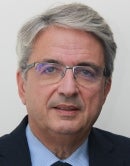
Riccardo Dalla-Favera is best known for his studies on the genetic alterations involved in the pathogenesis of human cancer, in particular, human B cell lymphoma. Dr. Dalla-Favera and his research team have contributed significantly to the understanding of normal B cell function, directly impacting the diagnostics and therapeutic targeting of B cell malignancies including Burkitt Lymphoma, Diffuse Large B Cell Lymphoma, and Chronic Lymphocytic Leukemia.
He co-discovered the MYC oncogene involvement in chromosomal translocations associated with Burkitt lymphoma. Subsequently, his laboratory identified several mutated genes involved in lymphomagenesis, including BCL6, a key transcription factor in B cell development, and an important oncogene in B cell lymphoma. More recently, using genome-wide gene sequencing and gene expression analysis, the Dalla-Favera laboratory elucidated a more complete landscape of the genome of these malignancies. They have identified the normal function, as well as the contribution to B-cell transformation of recurrently altered genes, by using in vitro studies and conditional mouse models reproducing the lesions in B cells.
Dr. Dalla-Favera’s work is widely recognized with numerous National and International prizes and awards, including two NIH MERIT Awards, the 2006 William Dameshek Prize for Outstanding Contribution to Hematology from The American Society of Hematology, the 2012 Alfred Knudson Award from the National Cancer Institute, and in 2014, the OncLive Giants of Cancer Care Award. Dr. Dalla-Favera is a member of the National Academy of Medicine and the National Academy of Sciences.
March 12th, 2026
Katy Rezvani, M.D., Ph.D.
MD Anderson
“Optimizing NK Cell Engineering for Therapeutic Efficacy”
Sponsor: Dr. Louis Weiner

Katy Rezvani, MD, PhD is a professor of medicine at the University of Texas MD Anderson Cancer Center, where she serves as the Vice President & Head, Cell Therapy Institute for Discovery and Innovation, Sally Cooper Murray Chair in Cancer Research, and medical director of the GMP Facility. She leads a research lab with a focus on NK cell biology and developing novel NK cell engineering strategies for cancer, with the aim of translating these discoveries to the clinic. Dr. Rezvani completed her medical training at University College London, England and her PhD at Imperial College London. She completed her training in immunology and transplantation biology at the National Institutes of Health, Bethesda, MD. In addition, she has co-authored over 250 peer-reviewed publications and received multiple prizes and awards, including the American Society of Hematology E. Donnall Thomas award.
Past Speaker Profiles
January 8th, 2026
Matthew Schabath, PhD
Moffitt
“Artificial Intelligence and Medical Imaging Analysis in Population Science Research”
Sponsor: Dr. Laura Rozek
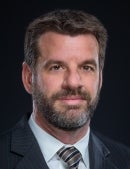
Matthew Schabath, PhD is a Moffitt Distinguished Scholar, Co-Leader of the Cancer Epidemiology Program, and Senior Member in the Department of Cancer Epidemiology and Department of Thoracic Oncology at the Moffitt Cancer Center. He has published over 230 peer-reviewed papers (Pubmed, IEEE, SPIE) and has research expertise in quantitative imaging/radiomics, molecular epidemiology, and cancer care disparities and health equity.
His career started in molecular epidemiology studying germline genetic variations on lung cancer risk and he has been continuously publishing in this area for over 24 years.
He is one of the first epidemiologists to conduct research utilizing artificial intelligence (AI) approaches to analyze medical images to identify image-based biomarkers (e.g., radiomics/quantitative imaging) across the cancer care continuum including risk prediction, early detection, diagnosis, and patient outcomes. He has been publishing and funded in this area for over 14 years with a successful funding history from National Cancer Institute (NCI) Early Detection Research Network (EDRN), NCI Quantitative Imaging Network (QIN), NCI Consortium for Molecular and Cellular Characterization of Screen-Detected Lesions (MCL), and multiple R01-equivalent awards from the Florida Biomedical Research Program (FBRP). He has co-led several multi-institutional studies building large data and medical image repositories to conduct biomarker development studies.
With respect to health equity research, he has conducted numerous studies measuring oncology care providers’ attitudes, knowledge, and affirming practices of SGM/LGBTQ+ patients. He is PI of a research protocol at the Moffitt Cancer Center focused on characterizing patient outcomes regarding SGM patients with cancer and he serves as co-chair of the SGM working group in the ECOG-ACRIN Cancer Research Group.
December 11th, 2025
Naomi Taylor, M.D., Ph.D.
NIH
“Harnessing CAR/TCR immunotherapeutic precision: Metabolic Constraints, Hinges, and Fuzzy Logic”
Sponsor: Dr. Yi Zhang

Naomi Taylor is a Deputy Director of the Center for Cancer Research and Senior Investigator in the Pediatric Oncology Branch (NCI, NIH). She studied at Princeton University and the Weizmann Institute before earning her MD/PhD at Yale University School of Medicine with Dr. George Miller. Following pediatrics training at Yale and the Children’s Hospital of Los Angeles as a Howard Hughes Fellow, Dr. Taylor launched her own lab at the Institut de Génétique Moléculaire in Montpellier, France. She currently holds an adjunct professorship at the Université de Montpellier.
Dr. Taylor leads a research group internationally recognized for its work on T cell-based gene and cell therapies, metabolic regulation of normal and malignant hematopoiesis, and thymus differentiation. Recently, the group has pioneered studies exploring how metabolite transporters and cellular fuel choices shape immune and hematopoietic function. These efforts have identified novel metabolic programs regulating physiological and pathological hematopoietic lineage commitment, including erythropoiesis. Their discoveries have also directly informed the development of more effective T-cell immunotherapy protocols—advancing the design and performance of chimeric antigen receptor (CAR) T-cell therapies.
For Naomi Taylor, scientific research is a powerful platform that has the unique ability to bring together individuals from different backgrounds––it is a field that breaks down walls and fosters international cooperation. In this context, Dr. Taylor has promoted the careers of students, clinicians, and scientists from >30 different countries, spanning 6 continents. She has received numerous awards for her research and training including the French National Inserm Research Award (2010), the 2021 NCI Women in Science Mentoring and Leadership Award, election to the Association of American Physicians (2023), and the NCI Director’s Award for Making an Impact-NCI Champions (2024).
November 13th, 2025
Robert Gatenby, M.D.
Moffitt
“Integrating Evolutionary Dynamics into Cancer Therapy”
Sponsor: Dr. Louis Weiner

Robert A. Gatenby, MD is the Chairman of the departments of Radiology and co-director of the Integrated Mathematical Oncology at H. Lee Moffitt Cancer Center. He joined Moffitt in 2008 from the University of Arizona where he was Professor, Department Radiology and Professor, Department of Applied Mathematics since 2000. He received a B.S.E. in Bioengineering and Mechanical Sciences from Princeton University and an M.D. from the University of Pennsylvania in 1977. He completed his residency in radiology at the University of Pennsylvania where he served as chief resident. Bob remains an active clinical radiologist specializing in body imaging. While working at the Fox Chase Cancer Center after residency, Bob perceived that cancer biology and oncology were awash in data but lacked coherent frameworks of understanding to organize this information and integrate new results. Since 1990, most of Bob’s research has focused on exploring mathematical methods to generate theoretical models for cancer biology and oncology. His current modeling interests include: 1. the tumor microenvironment and its role in tumor biology. 2. evolutionary dynamics in carcinogenesis, tumor progression and therapy. 3. information flow in living systems and its role in maintaining thermodynamic stability.
October 9th, 2025
María E. Fernández, Ph.D.
University of Texas Health
“Implementation Science in Cancer Control: From Research to Real-World Impact.”
Sponsors: Dr. Randi Williams & Dr Alejandra Hurtado de Mendoza

Dr. María Fernández is Vice President of Population Health and Implementation Science at the University of Texas Health Science Center at Houston (UTHealth Houston) and the founding Co-Director of the UTHealth Houston Institute for Implementation Science. Dr. Fernández is also the Lorne Bain Chair of Public Health and Medicine, Professor of Health Promotion and Behavioral Sciences, and Director of the UTHealth Houston Center for Health Promotion and Prevention Research (CHPPR) at the UTHealth Houston School of Public Health. As a researcher and a leader, Dr. Fernández has spent her career conducting participatory community-engaged research and practice to develop, evaluate, implement, and disseminate interventions to improve health and health equity. Her research focuses on cancer and chronic disease prevention and control among underserved populations in the U.S. and globally. Dr. Fernández is an expert in dissemination and implementation (D&I) research, having served as a member of the National Institutes of Health (NIH) Dissemination and Implementation Research in Health Study Section and as faculty for several national and international D&I training programs. Dr. Fernández has an extensive portfolio of global, federal, and state-funded research developing and improving evidence-based interventions and guidelines for the prevention and control of cancer, diabetes, and cardiovascular disease (among others) in clinical and public health settings. Dr. Fernández has over 235 peer-reviewed publications and has co-authored several books, including the 4th edition of Planning Health Promotion Programs: An Intervention Mapping Approach (2016) and the Handbook of Community-based Participatory Research (2017). Her awards include the Association for Schools and Programs of Public Health Research Excellence Award and the UTHealth President’s Scholar Award for Research Excellence.
September 11th, 2025
Melissa Troester, Ph.D.
Chapel Hill
“Multilevel Analyses of Breast Cancer Outcomes: From Molecules to Communities.”
Sponsor: Dr. Laura Rozek

Dr. Melissa Troester, Professor of Epidemiology jointly appointment in Pathology & Laboratory Medicine, leads the Carolina Breast Cancer Study for Lineberger Comprehensive Cancer Center. Dr. Troester is Associate Director for Population Sciences in Lineberger and is Director of the UNC Center for Environmental Health and Susceptibility. Her research focuses on biomarker development and validation, genomic methods, epidemiologic methods, and breast cancer. Her long-term goal is to support multi-level approaches that integrate tumor biology with individual, community, and health services data to improve breast cancer outcomes.
May 2nd, 2025
Ji-Yeon Shin, Ph.D.
Hackensack Meridian Health (CDI)
“TorsinA and Its Activators in Hepatic Steatosis and Neoplasia.”
Sponsor: Dr. Ben Tycko

Ji-Yeon Shin, PhD is an Assistant Member of the Hackensack Meridian Health Center for Discovery and Innovation. Her main research direction is to elucidate molecular mechanisms by which a protein complex in hepatocyte regulates hepatic lipid metabolism and predisposition to liver cancer. She developed an interest in this fundamental research addressing important medical problems after research training in diverse areas. For her doctoral degree, she studied neurogenetics, focusing on the non-cell autonomous contribution of glial cells to the selective neuropathology in Huntington’s disease. She then obtained an additional year of training in neurogenetics as a postdoctoral UCSF. After she moved to New York, she worked as a postdoctoral fellow with Dr. William Dauer and collaborated with Dr. Howard Worman at Columbia University to understand the role of nuclear envelope proteins in normal development and various human diseases.
More recently, Dr. Shin made the unexpected discovery that depletion of LAP1 or torsinA from hepatocytes causes abnormal hepatic lipid metabolism and steatohepatitis. This pioneering work was published in the Journal of Clinical Investigation. Her more recent senior author publications as an assistant professor were published in the Journal of Lipid Research and JCI insight. Her research on liver disease has led to my receiving a Pinnacle Research Award from the American Association for the Study of Liver Diseases and a Gilead Science Research Scholar Award, and an R01 research grant (2023-2028) from NIH/NCI to study the causal roles of nuclear envelope defects induced by LAP1 in hepatic neoplasia. After moving from Columbia University to Hackensack Meridian Health Center for Discovery and Innovation in 2024, Dr. Shin has continued my research on liver disease, specifically focusing on the roles of torsinA and its activators in hepatic steatosis and hepatocellular carcinoma development.
April 11th, 2025
Kenneth Anderson, M.D.
Harvard
“The Road to Cure for Myeloma.”
Sponsor: Dr. Michael Atkins
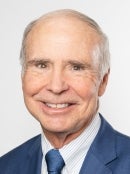
Dr. Ken Anderson is the Kraft Family Professor of Medicine at Harvard Medical School, as well as Director of the Jerome Lipper Multiple Myeloma Center at Dana-Farber Cancer Institute. He trained in internal medicine at Johns Hopkins Hospital, and then completed hematology, medical oncology, and tumor immunology training at the Dana-Farber Cancer Institute. He is a Doris Duke Distinguished Clinical Research Scientist and American Cancer Society Clinical Research Professor. Over the last four decades, he has developed laboratory and animal models of multiple myeloma in its microenvironment which have allowed for both identification of novel targets and validation of novel targeted and immune therapies. He has then led efforts to rapidly translate these studies to clinical trials culminating in FDA approval of multiple novel targeted therapies, which have transformed the treatment paradigm and markedly improved patient outcome. He has also trained generations of researchers and caregivers who are now leading myeloma centers internationally. He has received the American Society of Hematology William Dameshek Prize, the American Association for Cancer Research Joseph H. Burchenal Award, the American Society of Clinical Oncology David A. Karnofsky Award, and the Harvard Medical School Warren Alpert Prize. He is also recipient of the Robert A. Kyle Lifetime Achievement Award from the International Myeloma Foundation and the Waldenstrom Award at the International Myeloma Workshop. He is a Fellow of the American Association for Cancer Research Academy and the American Society of Clinical Oncology, a member of the National Academy of Medicine as well as Royal College of Physicians and Pathologists, and past President of the International Myeloma Society and American Society of Hematology.
April 4th, 2025
Ze’ev Ronai, Ph.D.
Cedars Sinai
“Epigenetic regulators of intrinsic and extrinsic pathways in melanoma.”
Sponsor: Dr. Michael Atkins
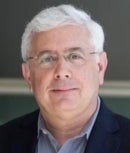
Ze’ev A. Ronai is an expert in cancer biology, holding a Ph.D. in Tumor Immunology from the Hebrew University in Jerusalem, Israel. Following postdoctoral research at Columbia University was tenured at Mount Sinai School of Medicine in New York. Subsequently, he joined Sanford Burnham Prebys Medical Discovery Institute in Ja Jolla, CA (SBP) where he served as Program Director and the Associate, Deputy and later as the Director of the NCI-designated basic Cancer Center, and Scientific Director of the SBP La Jolla site.
Research interests include studies on the stress response, focusing on epigenetic regulators, including ubiquitin ligases, as they pertain to cancer development, progression, and therapy resistance. Recent studies led to clinical trials and set new paradigms in understanding cancer biology.
Dr. Ronai has over 300 peer-reviewed publications, including reviews and book chapters, which received ~30,000 citations. Supported by federal grants, including the Outstanding Investigator Award, Dr. Ronai has served on advisory committees, including institutional SABs and grant review panels at the NCI, DOD, and worldwide. Led the SAC for the Melanoma Research Foundation and chaired the vision committee for melanoma at the DOD (CDMRP). Dr. Ronai has served on editorial boards of several journals and was the Editor in Chief of the melanoma journal, PCMR. Received the Life-Time Achievement Award from the Society of Melanoma Research and obtained several prestigious invitations as Dean and Keynote lecturer and invited to the Karolinska Noble Conferences.
Concurrently with his research activities in La Jolla, Dr. Ronai established the TICC – Technion Integrated Cancer Center at the Israel Institute of Technology (Technion) in Haifa, Israel, which was set to empower computational and biological sciences with integrated advanced engineering principles to develop innovative solutions to unmet needs in cancer research, understanding, prevention, and treatment.
Dr. Ronai is currently the Director of the Translational Research Institute at Cedars Sinai Medical Center in Los Angeles CA, USA.
March 28th, 2025
Leah Cook, Ph.D.
NCI
“Deciphering the role of neutrophils in Bone Metastatic Prostate Cancer.”
Sponsor: Dr. Rebecca Riggins

Dr. Cook is a Senior Investigator at the National Cancer Institute in the Center for Cancer Research (CCR). Dr. Cook earned an MS in Biology from the University of Alabama at Birmingham (UAB) in 2007, focused on the use of dietary agents for chemoprevention of prostate cancer. She went on to earn her PhD in Molecular & Cellular Pathology at the University of Alabama at Birmingham (UAB), where she focused on functions of breast cancer metastasis suppressor proteins in metastasis mouse models in 2011. Dr. Cook completed her postdoctoral training at Moffitt Cancer Center (2012-2017) and expanded her metastasis expertise to examining mechanisms associated with progression of bone metastatic prostate cancer. Dr. Cook’s lab, in the NCI Cancer Innovation Laboratory Branch, is investigating novel immune cell interactions, particularly neutrophils, that contribute to metastatic prostate cancer growth in bone and cancer-induced bone disease. Her goal is to identify novel immunotherapeutic targets for treating and curing metastatic cancer.
March 21st, 2025
Vijay Kuchroo, DVM, Ph.D.
Harvard
“Checkpoint Molecules, Tregs and Induction of anti-tumor Immunity.”
Sponsor: Dr. Michael Atkins
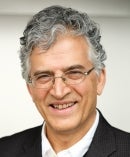
Dr. Vijay Kuchroo is the Samuel L. Wasserstrom Professor of Neurology at Harvard Medical School and Senior Scientist at Brigham and Women’s Hospital. Vijay Kuchroo is also an Institute member of the Broad Institute of Harvard and MIT, a senior investigator at Klarman Cell Observatory project and Food Allergy Scientific Initiative (FASI) project. He is the founding Director of the Gene Lay Institute of Immunology and Inflammation at Harvard Medical School, Brigham and Women’s Hospital and Mass General Hospital, Boston.
His major research interests include autoimmune diseases – particularly the role of co-stimulation – the genetic basis of experimental autoimmune encephalomyelitis and multiple sclerosis, and cell surface molecules and regulatory factors that regulate induction of T cell tolerance and dysfunction. His laboratory has made several transgenic mice that serve as animal models for human multiple sclerosis. His laboratory also first described TIM family of genes and identified Tim-3 as an inhibitory receptor expressed on T cells, which is now being exploited for cancer immunotherapy. He was first to describe the development of a highly pathogenic Th17 cells which has been shown to induce multiple different autoimmune diseases in humans. A paper describing development of Th17 authored by Dr. Kuchroo has been one of the highest cited papers in Immunology. More recently, he has begun to study the impact of neuroimmune interactions at the barrier surfaces in the induction and regulation of tissue inflammation.
Dr. Kuchroo came to the United States in 1985 and was at the National Institutes of Health, Bethesda as Fogarty International Fellow for a year before joining the department of pathology at Harvard Medical School as a research fellow. He later joined the Center for Neurologic Diseases at Brigham and Women’s Hospital as a junior faculty member in 1992. He obtained his degree in Veterinary Medicine from the College of veterinary medicine, Hisar, India. Subsequently, he specialized in pathology at the University of Queensland, Brisbane (Australia) where he obtained a Ph.D. in 1985. He received the Fred Z. Eager Research prize and medal for his Ph.D. research work at the University of Queensland. Based on his contributions, he was awarded the Javits Neuroscience Award by the National Institutes of Health in 2002 and the Ranbaxy prize in Medical Research from the Ranbaxy Science Foundation in 2011. He was named Distinguished Eberly lecturer in 2014 and obtained Nobel Laureate Peter Doherty lecture/prize in 2014. He received William E. Paul prize for excellence in cytokine research from the International cytokine and interferon society (ICIS), in 2020. Dr. Kuchroo was inducted as the Distinguished fellow of American Association of Immunologists (AAI) in 2021 and he also received John Dystel prize from the National MS society and American Association of Neurology in 2021. For his outstanding research contributions to the field of immunology, he has been chosen as the recipient of the 2025 AAI-Thermo Fisher Meritorious Career Award.
March 14th, 2025
Margarida Barroso, Ph.D.
Albany Medical College
“Multiscale imaging of receptor transport and inter-organelle contacts in breast cancer and metastasis”
Sponsor: Dr. Rebecca Riggins
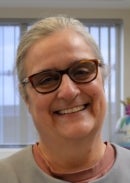
Margarida Barroso is a Professor at the Department of Molecular and Cellular Physiology, Albany Medical College (AMC) in Albany, New York. Dr. Barroso is also the Director of the AMC Imaging Core Facility and an Adjunct Professor at the Department of Biomedical Engineering, Rensselaer Polytechnic Institute, Troy, NY. She received her Ph.D. in Genetics from the University of Lisbon/Gulbenkian Institute of Sciences in Portugal and was a post-doctoral fellow at the Department of Molecular Biology, Princeton University. Dr. Barroso is an expert in Forster Resonance Energy Transfer (FRET) imaging with two issued patents on FRET imaging technology. She is a former President of the Histochemical Society and currently serves as a council member of the International Federation of Societies for Histochemistry and Cytochemistry.
Dr. Barroso’s diverse expertise integrates basic cell biology with methodological advances in imaging technology to position her research group as a major force in the visualization, quantitation, and optimization of drug delivery into cancer cells using receptor-targeted approaches. She is currently funded by a NY state Rowley breast cancer research grant and several NIH grants, including a National Cancer Institute (NCI) Informatics Technology Cancer Research (ITCR) to study the application of artificial intelligence to classify metastatic cancer cells using subcellular features. Recently, she has been nominated as an associated member of the NCI Cancer Cell Biology Imaging Research network.
February 28th, 2025
Haydn Kissick, Ph.D.
Emory
“Kidney Cancer Cell Oxidative Metabolism Suppresses the Anti-Tumor T cell Response.”
Sponsor: Dr. Michael Atkins
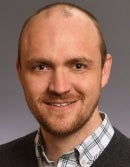
Haydn T. Kissick, PhD, is an assistant professor in the Department of Urology with a joint appointment in the Department of Microbiology and Immunology at Emory University School of Medicine. Dr. Kissick is a member of the Cancer Immunology Research Program at Winship Cancer Institute and a member of the Emory Vaccine Center. Dr. Kissick’s research focuses on understanding the basic mechanisms involved in the T-cell response to cancer, and work from his lab has defined several new ideas relating to this process. His lab works closely with several members of Winship coordinating ongoing immunotherapy clinical trials and biomarker studies in patients with genitourinary cancers.
February 21st, 2025
Heather M. Brandt, Ph.D.
St Jude
“Our Opportunity to Prevent HPV Cancers”
Sponsor: Dr. Laura Rozek

Heather M. Brandt, PhD directs the HPV Cancer Prevention Program at St. Jude Children’s Research Hospital. She is co-associate director for outreach in the St. Jude Comprehensive Cancer Center and full member in the department of epidemiology and cancer control. She is a faculty affiliate in the University of Memphis School of Public Health and University of South Carolina Arnold School of Public Health. As a social and behavioral scientist, her research interests address disparities in cancer prevention and control and specifically working with partners and thought leaders to effectively use what we know works to increase HPV vaccination coverage.
February 14th, 2025
Hannah Arem, Ph.D.
MHRI
“Implementation Science at MedStar Health”
Sponsor: Dr. Kenneth Tercyak

Dr. Hannah Arem is the scientific director of Implementation Science at MedStar Health Research Institute, and an associate professor of Oncology at Georgetown University Medical Center. Dr. Arem’s research portfolio focuses on bringing implementation science methods to various topics, including cancer survivorship and quality of life, mHealth, and maternal and infant mortality. Examples of her current or recent projects include delivery of social risk factor screening to cancer patients across three healthcare systems in Washington DC, scaling patient navigation for colorectal cancer to 15 primary care clinics across MedStar Health, and testing efficacy of smart speaker delivery of cognitive behavioral therapy for insomnia among breast cancer survivors. Much of her work utilizes multi-level approaches to address health disparities. Dr. Arem’s team includes other doctoral researchers, community health workers, and research assistants, and partnerships with physicians and other healthcare system stakeholders to ensure alignment with clinical priorities.
February 7th, 2025
Frank McCormick, Ph.D.
UCSF
“New ways of treating KRAS cancers.”
Sponsor: Dr. Louis Weiner
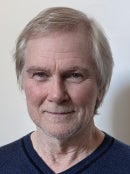
Frank McCormick, PhD, is a Professor at the UCSF Helen Diller Family Comprehensive Cancer Center and holds the David A. Wood Chair of Tumor Biology and Cancer Research. Prior to joining the UCSF faculty, Dr. McCormick pursued cancer-related work with several Bay Area biotechnology firms and held positions with Cetus Corporation (Director of Molecular Biology, 1981-1990; Vice President of Research, 1990-1991) and Chiron Corporation, where he was Vice President of Research. In 1992 he founded Onyx Pharmaceuticals, a company dedicated to developing new cancer therapies, and served as its Chief Scientific Officer until 1996. At Onyx Pharmaceuticals, he initiated drug discovery efforts that led to the approval of Sorafenib in 2005 for treatment of renal cell cancer, and for liver cancer in 2007, and the approval of ONYX-015 in 2006 in China for treatment of nasopharyngeal cancer. In addition, Dr. McCormick’s group led to the identification of the CDK4 kinase inhibitor, Palbociclib, approved for treating advanced breast cancer. Dr. McCormick’s current research interests center on ways of targeting Ras proteins and their regulators, including the NF1 protein neurofibromin.
Dr. McCormick was Director of the Helen Diller Family Comprehensive Cancer Center from 1997 to 2014 and he served as President, 2012-2013, for the American Association for Cancer Research. Since 2013, Dr. McCormick has led the National Cancer Institute’s Ras Initiative at the Frederick National Laboratories for Cancer Research overseeing the national effort to develop therapies against Ras-driven cancers.
Dr. McCormick is the author of over 400 scientific publications and holds more than 20 issued patents and is a Fellow of the Royal Society and a member of the National Academy of Sciences.
January 31st, 2025
Leigh Ellis, Ph.D.
Uniformed Services
“Translating Mechanistic Drivers of Phenotypic Plasticity to Actionable Therapeutic Targets.”
Sponsor: Dr. Rebecca Riggins

Leigh Ellis, PhD, is a Professor in the Department of Surgery at Uniformed Services University, Walter Reed National Military Medical Center, and the Scientific Director at the Center for Prostate Disease Research (CPDR) and Murtha Cancer Center Research Program (MCCRP). Work within his laboratory focuses on dissecting underlying genetic/epigenetic mechanisms of aggressive prostate cancer. For this work, he utilizes in vitro genetically modified human and mouse cell lines and 3D organoid cultures as well as in vivo genetically engineered mouse models coupled with innovative technology including next generation single cell sequencing approaches. His overall goal is to identify novel mechanisms which will lead to discovery of biomarkers and therapeutic targets for clinical testing, with a specific focus on tumor and immune cell lineage plasticity in prostate cancer.
January 17th, 2025
Patricia M LoRusso, D.O., Ph.D.
Yale
“Bridging the “Valley of Death” with Modern Clinical Drug Development”
Sponsor: Dr. Louis Weiner
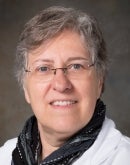
Dr. Patricia LoRusso has been a practicing academic medical oncologist performing clinical/translational research in early phase clinical trials for 30 years, spending the first 25 years at Wayne State University/Karmanos Cancer Institute in Detroit, MI and transitioning to Yale University/Yale Cancer Center in 2014. Both institutions have NCI comprehensive designation status. She has had continuous NIH/NCI peer review funding for 28 years, having held a U-grant for early phase clinical trials through the NCI Cancer Therapy Evaluation Program (CTEP) for 26 years. She has also collaborated on numerous other grants and have been an investigator in P01 and P30 funding mechanisms. Understanding the need for team science, she has participated in P50 mechanisms and has been awarded team science grants through such organizations as Stand Up to Cancer (Co-Leader: Melanoma Dream Team), the Department of Defense (DOD) and the Komen Foundation (Co-leader, KG111063:Targeting Stem Cells in Triple-Negative Breast Cancer (TNBC) in Different Racial Populations).
Dr. LoRusso has also been involved in many service disciplines at the NCI. She has reviewed grants for many study sections and has either been an ad hoc (e.g. CCSG, NeXT study sections) or permanent study section member (e.g. Program Project Subcommittee D and Clinical Oncology study sections). She has served on the Investigational Drug Steering Committee (IDSC) since inception (2005-present) and served as its chair from 2011-2013. She was a member of the steering committee that convened after the Blue- Ribbon Panel to execute on their recommendations. She served a 4-year term (2015-2019) on the Board of Scientific Council (BSC), reviewing the intramural programs for quality, content, productivity and funding.
In addition to serving in NCI positions, Dr. LoRusso has served in leadership positions of several other organizations. She has served on the Board of Directors and numerous scientific and education committees of the American Association for Cancer Research (AACR) and is currently serving as President of AACR, the education and scientific committees of the American Society of Clinical Oncology (ASCO), and the steering committee for the Food and Drug Administration (FDA) Accelerating Anticancer Agent Development and Validation Workshop, as examples. Internationally, she has taught several clinical trials educational workshops, educating many physicians and scientists across the globe. She understands how critically important it is to train the next generation of early career investigators to be knowledgeable and proficient in clinical and translational research by providing them leadership opportunities and mentoring. She has worked closely with Cancer Research United Kingdom (CRUK), a UK Welcome Trust which is the second largest funding agency for cancer research. She is currently serving a 3-year term as the chair of their New Agents Committee (NAC), reviewing international proposals relative to drug development of novel agents.
Working closely over the past 3 decades with patients suffering from advanced malignancies, Dr. LoRusso has become an advocate, not only for cancer researchers and clinicians, but more importantly for the patients and their caregivers. Having experienced at a young age the death of her own parents from cancer, she understands the urgent need for new cancer discoveries and the potential for longevity and quality of life.
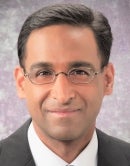
December 13th, 2024
Udai Kammula, M.D.
University of Pittsburgh
“Personalized Cellular Immunotherapy for Metastatic Cancer.”
Sponsor: Dr. Michael Atkins
Dr. Kammula is a surgical oncologist and tumor immunologist who conducts clinical and translational research focused on developing effective immunotherapies for patients with advanced cancer. Dr. Kammula received his B.A. from Johns Hopkins University and his M.D. from the University of Maryland. He completed his general surgery residency at the University of Chicago Hospitals and fellowships in surgical oncology in the Surgery Branch of the National Cancer Institute (NCI) and at Memorial Sloan-Kettering Cancer Center (MSKCC) in New York. Additional post-doctoral training in tumor immunology and cancer immunotherapy was completed in the Surgery Branch, NCI with Dr. Steven Rosenberg. Dr. Kammula was a senior investigator in the Surgery Branch, NCI between 2004 and 2017 and studied a variety of cancer immunotherapy approaches including vaccines, cytokine therapy, checkpoint blockade, gene therapy, and adoptive cell therapy. He is currently the director of the Solid Tumor Cellular Immunotherapy Program at the University of Pittsburgh and oversees both clinical and research studies aimed at developing effective adoptive cell therapy for advanced cancer. Dr. Kammula has been involved in immunotherapy since 1996 and currently has a focused laboratory and clinical trial effort in developing next generation tumor infiltrating lymphocyte (TIL) therapies for metastatic uveal melanoma, pancreatic cancer, and other poorly responsive solid cancers.
December 6th, 2024
Angela DeMichele, M.D.
University of Pennsylvania
“Targeting Molecular Residual Disease (MRD) in Breast Cancer: Strategies and Challenges.”
Sponsor: Dr. Claudine Isaacs
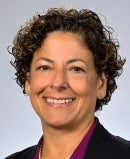
Dr. DeMichele is a Professor of Medicine in medical oncology at the University of Pennsylvania where she holds the Mariann T. and Robert J. MacDonald Chair in Breast Cancer Research. Dr DeMichele completed her M.D. at the Washington University School of Medicine and MSCE at The University of Pennsylvania. Her area of focus in breast cancer recurrence and minimal residual disease. She has co-led the Breast Cancer Research Program is in the Abramson Cancer Center since 2005, which was rated Exceptional by the NCI in the most recent Cancer Center Core Grant review. In 2024, she assumed the role of Director of Clinical/Translational Research in Solid Oncology in the Division of Hematology/Oncology at the University of Pennsylvania.
She also Co-Directs the 2-PREVENT Breast Cancer Translational Center of Excellence, leading a multidisciplinary group of investigators focused on preventing breast cancer recurrence through studies focused on the detection and eradication of molecular residual disease after primary breast cancer treatment. As well as serves as the 2024 ASCO Scientific Program Chair and the Chair of the ECOG/ACRIN Cooperative Group Breast Committee. Her work has been recognized with the 2022 Potamkin Prize for Breast Cancer Research from the Pennsylvania Breast Cancer Coalition and the 2023 Gianni Bonadonna Breast Cancer Award from the American Society of Clinical Oncology.
November 15th, 2024
David Teachey, M.D.
University of Pennsylvania
“New Insights into the Biology and Treatment of T-cell Acute Lymphoblastic Leukemia and Lymphoma.”
Sponsor: Dr. Nina Kadan-Lottick
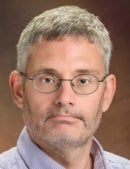
David T. Teachey, MD is a Professor of Pediatrics and the Distinguished Endowed Chair in the Department of Pediatrics at the Perelman School of Medicine at the University of Pennsylvania. He is an attending physician in the Division of Oncology at the Children’s Hospital of Philadelphia. He is an R01-funded physician-scientist with clinical and research expertise focused on improving the understanding of disease biology and the translation of novel therapies for children with acute lymphoblastic leukemia (ALL) and rare inherited autoimmune diseases. He is the PI on multiple local, national, and international clinical trials and often performs the correlative studies for those trials in his lab. He is the Chair of the ALL Disease Committee for the Children’s Oncology Group (COG) and Co-Leader of the Immune Dysregulation Frontier Program at CHOP.
November 8th, 2024
Mark Robson, M.D.
Memorial Sloan Kettering
“Integration of Germline Genetics into Cancer Care.”
Sponsor: Dr. Mark Schwartz

Dr. Robson graduated from the University of Virginia School of Medicine in Charlottesville, Virginia, and did his internal medicine residency and hematology-oncology fellowship training at Walter Reed Army Medical Center in Washington DC. He is currently Chief of the Breast Medicine Service in the Department of Medicine at Memorial Hospital in New York, Attending Physician on the Breast Medicine and Clinical Genetics Services, and a Member of the Memorial Sloan Kettering Cancer Center. He is also a Professor of Medicine at Weill Cornell Medical College. His clinical research has concentrated on the optimal application of germline information to the management of cancer patients, particularly those with breast cancer. He has been a lead investigator for a number of trials of PARP inhibitors in patients with BRCA mutation – associated breast cancer. In addition to studying PARP inhibition as a therapeutic strategy, he is has worked on developing newer models for the acquisition of germline information, including “mainstreaming” through test ordering by primary oncology providers and broad genomic screening in the context of somatic mutational profiling. He has led the writing of several ASCO statements on genetic and genomic testing and has also participated in the development of ESMO opinions on the same topics. He is an associate editor for the Journal of the National Cancer Institute. He is also a Fellow of the American Society of Clinical Oncology, past Chair of the Ethics Committee of that organization and has served several terms on the ASCO Cancer Prevention Committee and its Cancer Genetics subcommittee.
November 1st, 2024
David Scadden, M.D.
Harvard
“The adult thymus and cancer risk.”
Sponsor: Dr. Michael Atkins

David Scadden is the Gerald and Darlene Jordan Professor of Medicine and Professor of the Department of Stem Cell and Regenerative Biology at Harvard. He co-founded and co-directs the Harvard Stem Cell Institute. He is a hematologist/oncologist at the Massachusetts General Hospital where he founded and directs the Center for Regenerative Medicine. He is a member of the National Academy of Medicine and the American Academy of Arts and Sciences. He focuses on hematopoiesis and developing therapies for blood diseases.
October 4th, 2024
Laura Rozek, Ph.D. and Christopher Loffredo, Ph.D.
LCCC
Sponsor: Office for Global Oncology
“Overview of Research on Cancer in Thailand.”

Dr. Rozek is a Professor of Oncology at Georgetown University Medical Center and co-Leader of the Cancer Prevention and Control program for Georgetown-Lombardi Comprehensive Cancer Center. She has a MS in Epidemiology from the University of Washington School of Public Health and a PhD in Epidemiology and MA in Statistics from the University of Michigan, where she was on faculty in the School of Public Health until moving to Georgetown in August 2022. Her work integrates molecular and epidemiology data from studies of head and neck and colorectal cancer to identify avenues for prevention and improved survival. She also has several global cancer projects in Southeast Asia and Africa, in particular studies that address cervical cancer screening and treatment.
“Epidemiological Study of Two Types of Liver Cancer in Thailand”

Dr. Loffredo is a cancer epidemiologist with a background in toxicology and environmental sciences. At Georgetown University’s Lombardi Cancer Center, he directs the Office of Global Oncology, as a tenured Professor in the Department of Oncology. His global cancer research program spans over two decades of epidemiological studies in Egypt on liver and bladder cancers, and on tobacco control and prevention. More recent work includes ongoing research in Thailand on liver cancers and their environmental risk factors, and formative research in nations of southern Africa on cancer screening interventions in communities of persons living with HIV. In collaboration with local medical centers, Dr. Loffredo is leading studies on biomarkers for the early detection of liver cancer, and on the knowledge, attitudes and practices of patients and care providers with respect to chronic liver disease and prevention.
September 27th, 2024
David Braun, M.D., Ph.D.
Yale
“Understanding and improving immunotherapies for kidney cancer.”
Sponsor: Dr. Michael Atkins
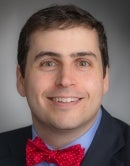
David Braun, MD, PhD is the Goodman and Gilman Yale Scholar and an Assistant Professor at the Yale School of Medicine. He is a physician-scientist focused on understanding the immunobiology of kidney cancer, and translating these findings into the clinic. His laboratory integrates computational and experimental immunology approaches to understand the interaction between somatic alterations and anti-tumor immunity, the role of the tumor microenvironment, and the tumor antigens that are recognized by anti-tumor T cells.
September 20th, 2024
Michael Scheurer, M.D.
Baylor College of Medicine
“Childhood Cancer Survivorship among Latinos: What can we do to close the gap in outcomes?”
Sponsor: Dr. Laura Rozek

Dr. Michael Scheurer is a molecular epidemiologist at Texas Children’s Cancer Center and in the Cancer Prevention and Population Sciences Program of the Dan L. Duncan Comprehensive Cancer Center at Baylor College of Medicine. Dr. Scheurer’s research focuses on viruses and immune function as risk factors for cancer development and progression. His laboratory looks for novel ways to identify and catalog molecular markers of viral infection, including host-virus interactions, as risk factors for the development of cancer. His current work includes a state-wide study to examine risk factors for childhood brain tumors and examining the HPV vaccine and its effects on cervical cancer incidence.
September 13th, 2024
Piero Dalerba, M.D.
CDI/LCCC
“The role of CDX2 as a prognostic and predictive biomarker to guide the clinical management of colon cancer.”
Sponsor: CCB

Dr. Dalerba directs a research laboratory whose main interest is to use modern “single-cell genomics” technologies to identify novel biomarkers of “cancer stem cells”, and to explore their potential as: 1) novel predictive biomarkers to improve treatment algorithms for cancer patients; 2) novel pharmacological targets to develop innovative anti-tumor treatments. Dr. Dalerba has a long-standing expertise in the biology and medical treatment of human colon cancer. His principal research contributions include: a) the discovery of robust and reliable surface markers for the ex vivo purification of human colon “cancer stem cells” (Dalerba et al., PNAS, 100:3983-3988, 2007); b) the first use of “single-cell genomics” to analyze the cell composition of human colorectal malignancies, and formally prove that tumor tissues behave as stem-cell systems by undergoing multi-lineage differentiation processes (Dalerba et al., Nature Biotechnology, 29:1120-1127, 2011); c) the identification of CDX2 as a candidate biomarker for the prediction of benefit from adjuvant chemotherapy in Stage-II and Stage-III colon cancer patients (Dalerba et al., NEJM, 374:211-222, 2016); and d) the discovery of inverse agonists of RAR/RXR signaling as novel class of anti-tumor agents with activity against human adenoid cystic carcinomas (Viragova et al., JNCI, 115:838-852, 2023).
May 3rd, 2024
Jamie Ostroff, PhD
Memorial Sloan Kettering
“Implementation of Tobacco Use Assessment and Treatment in Cancer Care.”
Sponsor: Dr. Marc Schwartz & Dr. Kathryn Taylor

Dr. Jamie Ostroff is the Chief of Behavioral Sciences Service, Director of the Tobacco Treatment, Training and Research Lab in the Department of Psychiatry & Behavioral Sciences and Co-Leader of the Population Sciences Research Program at Memorial Sloan Kettering Cancer Center (MSKCC). Her clinical, research and training activities focus on addressing barriers and facilitators of high-quality implementation of tobacco treatment in cancer care and lung cancer screening settings, with particular attention to equity in access, utilization and cessation outcomes. She holds several national leadership positions including service to National Lung Cancer Roundtable, Commission on Cancer Just ASK Task Force and the NCI-funded Cancer Centers Cessation Initiative (C3I).
April 26th, 2024
Teresa Zimmers, PhD
Oregon Health and Science University
“Mechanisms Driving Physiological Cachexia in Regeneration and Pathological Cachexia in Pancreatic Cancer.”
Sponsor: Dr. David Robbins
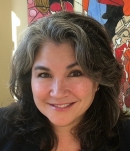
Dr. Zimmers is Professor of Cell, Developmental & Cancer Biology at Oregon Health & Science University, Co-Leader of the Cancer Biology Program at the Knight Cancer Institute, and Co-Leader of the Patient Resiliency Program of the Brenden Colson Center for Pancreatic Care. She is jointly appointed as a Research Scientist at the Portland Veterans Administration Medical Center and Adjunct Professor at Indiana University School of Medicine. Dr. Zimmers’ basic, translational, and clinical research focuses on understanding the systemic response to disease, particularly from the perspective of tissue wasting in cancer, known as cancer cachexia. Her laboratory seeks to identify pathways leading to progressive loss of adipose, muscle, and bone in cancer for the purpose of identifying novel, effective therapies to mitigate cachexia and improve quality of life, length of life, and chance of cure.
April 19th, 2024
Patrick Sung, PhD
University of Texas San Antonio
“DNA Damage and Tumor Suppression via the BRCA Axis”
Sponsor: Dr. Gary Kupfer
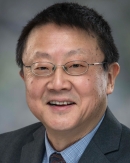
As a doctoral student at Oxford University, Dr Sung received training in protein biochemistry and enzymology while focusing on the role of the vitamin K-dependent carboxylase in blood coagulation. When a postdoctoral fellow at the University of Rochester, he identified the biochemical properties of several factors that function in nucleotide excision repair (NER), some of which play a dual role in RNA polymerase II transcription. Since establishing his own laboratory in 1993, he has focused on understanding how cells engage homologous recombination (HR) as tool in eliminating DNA breaks and crosslinks. The efficiency of HR catalyzed by the RAD51 recombinase is regulated by the tumor suppressors BRCA1, BARD1, BRCA2, PALB2, NBS1, and BLM and by components of the Fanconi anemia (FA) pathway of DNA damage response/repair in humans, providing compelling evidence for a key role of HR in cancer avoidance. His studies have led to many original findings. To date, he has published 311 articles, with 259 of them being original research papers. According to Scopus, his h-index is 85 with >25,400 citations, while Google Scholar reports an h-index of 105 with >37,550 citations. He has accrued extensive leadership experience, having served as journal editor or associate editor (Molecular & Cellular Biology and the Journal of Biological Chemistry), NCI Training Grant Co-director, NIH study section chair (Cancer Etiology), Department Chair (Yale University and University of Texas), and as the current Director of the Greehey Children’s Cancer Research Institute, and Director (ad interim) of our NCI-designated Mays Cancer Center. He has also played a leading role in teaching, advising, and mentoring undergraduate and graduate students, postdoctoral fellows, and junior faculty at Yale University and the University of Texas. To date, he has successfully mentored 25 postdoctoral fellows and 14 PhD students, all of whom have remained in academic science or are gainfully employed in industry. A significant number of his former trainees are now productive faculty at excellent institutions in the United States or abroad. He is the recipient of the Master Research Award as a Distinguished Mentor in the Long School of Medicine at University of Texas Health San Antonio.
April 12th, 2024
Greg Delgoffe, PhD
University of Pittsburgh
“Leveraging Immune Metabolism to Improve Cancer Therapy.”
Sponsor: Dr. Michael Atkins
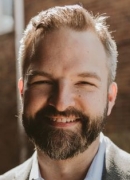
Greg M. Delgoffe is an Associate Professor of Immunology at the University of Pittsburgh, and Director of the Tumor Microenvironment Center at the UPMC Hillman Cancer Center. Dr. Delgoffe obtained his Ph.D at Johns Hopkins School of Medicine in 2010, and completed postdoctoral training at St. Jude Children’s Research Hospital. Since its inception in 2014, Delgoffe’s lab has worked to both understand the metabolic deficiencies experienced by T cells as they infiltrate tumors and leverage that insight into metabolic strategies to bolster antitumor immunity. His group has shown metabolic defects are central to T cell dysfunction in cancer, suggesting all forms of immune-based therapy may be improved by metabolic modulation. He has received multiple awards for innovation and contributions to science, including the Cancer Research Institute’s Lloyd J. Old STAR award, the Mark Foundation’s Emerging Leader award, the AACR NextGen Star Award, and the NIH Director’s New Innovator Award. Further, he has translated many of his observations at the bench into immunometabolic-based therapies for cancer.
March 15th, 2024
Andrew Ewald, PhD
Johns Hopkins
“Cancer Cell State and the Tumor Microenvironment Coordinately Regulate Breast Cancer Metastasis.”
Sponsor: Dr. Joyce Slingerland

Dr. Ewald earned his B.S. in Physics from Haverford College and his Ph.D. in Biochemistry and Molecular Biophysics from Caltech, then completed postdoctoral training at UCSF. He started his own lab at Johns Hopkins in 2008. He is now the Virginia DeAcetis Professor of Basic Cancer Research and Director of Cell Biology in the Johns Hopkins University, School of Medicine and Professor of Oncology and Co-Leader of the Cancer Invasion and Metastasis Program in the Sidney Kimmel Comprehensive Cancer Center. He is also the founding Director of the Giovanis Institute for Translational Cell Biology. Dr. Ewald is internationally recognized for his research on the molecular mechanisms of cancer invasion and metastasis, has given over 100 invited talks and received awards from diverse societies and foundations. His research has been funded by the National Cancer Institute, the National Science Foundation, the Department of Defense, the JKTG Foundation, the METAvivor Foundation, and the Breast Cancer Research Foundation.
February 23rd, 2024
Patrick Hanley, PhD
George Washington
“Developing antigen-specific T cells for the treatment of viral infections and cancer.”
Sponsor: Dr. Michael Atkins
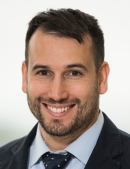
Dr. Hanley is the Chief and Director of the Cellular Therapy Program and an associate professor of pediatrics at Children’s National Hospital and the George Washington University, respectively. He oversees processing for standard of care stem cell transplantation as well as the development, manufacture, quality, and testing of novel cellular therapies Over the past 16 years he has helped to translate more than 550 products on over 25 cell therapy protocols – ranging from mesenchymal stromal cells to cord blood virus-specific T cells and tumor-associated antigen specific T cells – into the clinic.
Dr. Hanley was elected VP-North America of the International Society for Cell and Gene Therapy (ISCT) where he also serves on the board of directors, co-founded and served as the inaugural co-chair of the Early Stage Professionals committee which focuses on workforce development, and is the commissioning editor of the society’s journal, Cytotherapy. He also serves on the board of directors of the Foundation for the Accreditation of Cellular Therapy (FACT). Dr Hanley also serves as an advisor for a number of cell and gene therapy biotech companies. In his free time he enjoys tweeting with fellow scientists and Bills fans, playing soccer, cycling, cooking, and traveling.
February 16th, 2024
Mary Beth Terry, PhD
Columbia
“Confronting the Global Increase in Early Onset Breast Cancer.”
Sponsor: Dr. Marc Schwartz
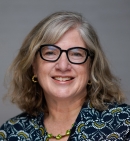
Dr. Terry is a Professor of Epidemiology and Associate Director of Population Sciences at the Herbert Irving Comprehensive Cancer Center at Columbia University. Her research focuses on the role of the environment in modifying cancer risk particularly for early onset breast cancer. She is the PI of multiple multi-institutional grants related to reducing cancer health inequities in New York City communities. She also leads large family-based cohorts and serves as the Contact PI of the Breast Cancer Family Registry. In addition to her Phd in Epidemiology, she has a Masters Degree in Economics. Dr. Terry is a committed educator of the next generation and runs several training programs including an R25 NCI grant focused on training high school and undergraduate students in cancer research.
February 9th, 2024
Maryam Fouladi, MD
Nationwide Children’s
“Precision Medicine for Pediatric Glial Tumors.”
Sponsor: Dr. Nina Kaden-Lottick
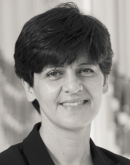
Dr. Fouladi is the co-executive director of neuro-oncology at Nationwide Children’s Hospital, Columbus, Ohio. She has extensive experience in the development and execution of clinical trials, translational research and helping guide the agenda for pediatric neuro-oncology clinical trials internationally. She has chaired multiple national and institutional phase I, II and III clinical trials of new agents for pediatric malignancies through the Children’s Oncology Group (COG), the Pediatric Brain Tumor Consortium (PBTC), the Collaborative Ependymoma Research Network (CERN) as well as the Collaborative Network of Neuro- Oncology Clinical Trials (CONNECT). She chaired the NCI-funded PBTC between 2012-2016 and was the Founder and Chair of the DIPG/DMG Registry from 2012-2021. Since 2016, she has also chaired the CNS Committee of the NCI-funded COG. In 2018, she became the founder and Chair of CONNECT, an international consortium that focuses on feasibility/phase I/II studies in high-risk pediatric brain tumors.
February 2nd, 2024
Rong Li, PhD
George Washington
“A Novel Regulator of Antitumor Immunity and Immunotherapy.”
Sponsor: Dr. Gary Kupfer
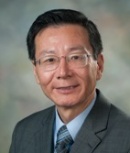
Dr. Li received his B.S. degree from Fudan University in China. He did his Ph.D. thesis work at the University of California Berkeley, and his postdoctoral work at the Cold Spring Harbor Laboratory. He established his independent research lab at the University of Virginia in 1996. In 2007 Dr. Li was recruited to the University of Texas Health at San Antonio, where he was a Professor at the Department of Molecular Medicine and Co-Leader of the Cancer Development Program at the NCI-designated Cancer Center. In November 2018, Dr. Li became chair of the Department of Biochemistry and Molecular Medicine, the George Washington University School of Medicine & Health Sciences. He holds the endowed Ross Professor of Basic Science Research.
Dr. Li is a prominent laboratory scientist in the field of gene regulation, breast cancer biology, and tumor microenvironment. His research has been continuously funded by NIH for more than two decades. His laboratory has also received funding from Department of Defense and various state and private funding agencies. His current work focuses on interactions among tumor cells, adipocytes, immune cells, and extracellular matrix (ECM) in the tumor microenvironment. His laboratory was the first to clone the gene encoding RNA polymerase II-pausing factor NELFB and to demonstrate its physiological functions via mouse genetic models. His laboratory recently identified DDR1 as a key instigator of tumor defense line against antitumor immune infiltration. Other active research projects in Dr. Li’s laboratory include BRCA1 tumor suppressor functions and the role of adipocyte PD-L1 in tumor progression and metabolic homeostasis. Dr. Li has published over 100 scientific papers, many in high-impact journals including Nature, Cell, Genes & Development, Nature Communications, PNAS, and Journal of Clinical Investigation. He has served chair of the NIH tumor microenvironment study section. He has also served on the Program Committee of the San Antonio Breast Cancer Symposium, the world’s largest breast cancer symposium. He leads a basic science department at the George Washington University, which has the dual goals of elucidating mechanisms underlying disease-related biological processes and developing therapeutic agents in precision medicine.
January 26th, 2024
Elizabeth Platz, ScD, MPH.
Hopkins
“Collaborating across disciplines for cancer discovery and translation.”
Sponsor: Dr. Marc Schwartz

Elizabeth A. Platz, ScD, MPH is a Professor and the Martin D. Abeloff, MD Scholar in Cancer Prevention in the Department of Epidemiology at the Johns Hopkins Bloomberg School of Public Health, where she directs the NCI-funded (T32) training program in Cancer Epidemiology, Prevention, and Control. She also co-leads the Cancer Prevention and Control Program at the Sidney Kimmel Comprehensive Cancer Center at Johns Hopkins and holds joint appointments in the Department of Oncology, and the Department of Urology and the James Buchanan Brady Urological Institute at the Johns Hopkins University School of Medicine. A major focus of her work is the use of molecular epidemiology approaches to understand the mechanisms underlying the incidence and progression of cancer, especially prostate cancer. She is the editor-in-chief of AACR’s Cancer Epidemiology, Biomarkers, and Prevention.
January 19th, 2024
Barbara Burtness, M.D.
Yale
“Synthetic Lethal Therapy for HPV-Negative Head and Neck Cancer.”
Sponsor: Dr. Gary Kupfer

Dr. Barbara Burtness is Anthony N. Brady Professor of Medicine at the Yale University School of Medicine and Chief Translational Research Officer, Associate Director of Translational Research, Co-Leader of the Developmental Therapeutics Program and Division Chief, Head and Neck/Sarcoma Oncology at Yale Cancer Center. She is Director of the Yale Head and Neck SPORE. As chair of the ECOG-ACRIN Head and Neck Cancer Therapeutics Committee, she has led a program of multicenter trials studying novel treatment paradigms to improve the survival and functional outcomes of patients with head and neck cancer. She has conducted numerous phase I–III investigator-initiated trials. Dr. Burtness’ laboratory studies aurora kinase targeting in head and neck and lung cancers.
December 15th, 2023
Anil Rustgi, M.D.
Columbia
“Hereditary GI Cancer Syndromes.”
Sponsor: Dr. David Robbins

Anil K. Rustgi, MD, is the director of Herbert Irving Comprehensive Cancer Center at Columbia University Irving Medical Center (CUIMC).
He graduated from Yale College with a BS in molecular biophysics and biochemistry and earned an MD at Duke University SOM. He completed an internal medicine residency at Beth Israel Hospital and a gastroenterology fellowship at Massachusetts General Hospital (MGH), both at Harvard Medical School. He rose to associate professor of medicine at MGH before joining the University of Pennsylvania (UPenn) in 1998, where he served as chief of gastroenterology until 2018.
In 2019, Dr. Rustgi was recruited to direct the Herbert Irving Comprehensive Cancer Center at NewYork-Presbyterian (NYP)/ CUIMC. He maintains a clinical practice and serves as chief of cancer services, associate dean of oncology, and an Irving Professor of Medicine.
Dr. Rustgi’s research focuses on tumor initiation, microenvironment, and metastasis in gastrointestinal cancers, including esophagus, pancreas, and colon cancers. His lab translates discoveries to improve molecular diagnostics and find new experimental therapeutics for patients. His funding includes grants from the NCI: P01 (esophageal cancer), U54 (Barrett’s esophagus); two NIH R01 grants (pancreatic and colon cancer), and an American Cancer Society research professorship. He has more than 350 publications, and manuscripts in the journals Nature; Nature Genetics; Nature Medicine; Cancer Cell; and New England Journal of Medicine.
An AAAS fellow and an American Cancer Society Professor, Dr. Rustgi has been elected to the American Society of Clinical Investigation, the Association of American Physicians, and the National Academy of Medicine. Previously, he was president of the American Gastroenterological Association (AGA), editor-in-chief of Gastroenterology, and president of the International Society of Gastroenterological Carcinogenesis.
Dr. Rustgi is a past president of the American Pancreatic Association. He has received the AGA Friedenwald Medal for Lifetime Achievement in Gastroenterology Medal, AGA Distinguished Mentor Award, the Brufsky Award for Excellence in Research in Pancreatic Cancer, and the Distinguished Achievement Award from the South Asian American Society for Cancer Research. He also received top mentorship awards during his tenure at UPenn.
December 8th, 2023
Vito Rebecca, PhD
Hopkins
“Dissecting the therapy resistance landscape of acral lentiginous melanoma.”
Sponsor: Dr. Rebecca Riggins
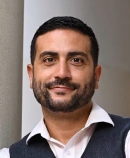
Vito Rebecca earned a Biology degree at Lafayette College (PA, USA) in 2009. He moved to the University of South Florida (FL, USA) to the laboratory of Dr. Keiran Smalley where he earned a PhD in 2014 in Cancer Biology for work in proteomics and therapy resistance mechanisms utilized by BRAF wild type cutaneous melanomas, a patient cohort with no currently approved targeted therapies. He completed a postdoctoral fellowship at the University of Pennsylvania (PA, USA) in the laboratory of Dr. Ravi Amaravadi in 2017 on optimizing lysosomal inhibitors for the treatment of advanced cancers including colorectal and pancreatic. He next served as a Staff Scientist at The Wistar Institute in the laboratory of Dr. Meenhard Herlyn until 2020 where he studied mechanisms of acquired resistance to combination BRAF and MEK inhibitor therapy in cutaneous melanomas by extensively using patient-derived xenograft (PDX) models. He joined the faculty of the Department of Biochemistry and Molecular Biology at Johns Hopkins Bloomberg School of Public Health in 2020 and leads a group focused on rare melanomas including acral lentiginous melanomas where new therapeutic approaches are urgently needed.
December 1st, 2023
Melissa B. Davis, PhD
Morehouse School of Medicine
“Resolving race vs ancestry in breast cancer disparities.”
Sponsor: Dr. Laura Rozek

Melissa B. Davis, PhD is the newly appointed Director of the Institute of Translational Genomic Medicine at Morehouse School of Medicine, and Distinguished Investigator with the Georgia Research Alliance. She also serves as Scientific Director of the International Center for the Study of Breast Cancer Subtypes (ICSBCS), (Interim) Director of Health Equity for the Englander Institute of Precision Medicine and Associate Professor of Cell and Developmental Biology in the Department of Surgery and at Weill Cornell Medicine in New York, NY. She is also a Cancer Ethnicity Scholar, co leading the PolyEthnic-1000 project at New York Genome Center.
Dr. Davis received her Ph.D. in Molecular Genetics at the University of Georgia (Athens, GA, USA) where she completed groundbreaking work on developmental functions of steroid signaling in model organisms. She completed postdoctoral training in Functional Genomics and Systems Biology at Yale School of Medicine (Human Genetics) and the University of Chicago (Human Genetics and Institute for Genomics and Systems Biology). Here work involved key elements of the ModENCODE project, showing the genome-wide and tissue-specific dynamics of hormone receptor binding, establishing the dynamics of these functions on a cellular level. Her postdoctoral training in Cancer Health Disparities at University of Chicago at the Interdisciplinary Center for Health Disparities, led the current trajectory of her work to uncover the biological determinants of cancer health disparities and how they intersect with marginalization of minoritized population.
Dr. Davis’s has published groundbreaking findings that established a new lens to study associations of biological factors in cancer outcomes as related to genetic ancestry. Specifically, she has discovered links between African ancestry and tumor burdens that have a disproportionate burden in people across the African diaspora. Dr. Davis is a pioneer in the field of “disparities genomics,” with specific focus in breast cancer expanding into prostate and gynecological cancers in recent years. Her current findings involve utilizing quantified ancestry to unravel genetic vs environmental influences in tumor biology among race/ethnic groups, including epigenetic cell signaling and immunological responses in the tumor microenvironment and systemic immune regulation. These novel opportunities to develop precision medicine applications in minority populations, are part of a concerted effort to increase knowledge of genomic profiles of underrepresented minoritized and under-represented cancer patients. Her work is a prime example of how inclusion of diverse ethnic groups can empower research designs for discovery of novel or unique tumor biology.
November 3rd, 2023
Susan Schembre, PhD
LCCC
“Addressing the obesity epidemic: time for a paradigm shift.”
Sponsor: Dr. Marc Schwartz and Dr Ken Tercyak
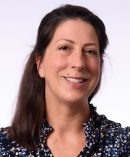
Dr. Schembre is a trained Behavioral Scientist and Research Dietitian, and full member of the LCCC. She has advanced degrees in human nutrition and metabolism and expertise in the cognitive and psychological determinants of eating behaviors that promote obesity, dietary assessment, and health behavior change. Prior to coming to Georgetown, she was the lead PI and founder of the UT MD Anderson Bionutrition Research Core, which continues to provide state-of-the-art nutrition science support to investigators examining the role of diet in cancer. Her NCI-funded research portfolio focuses predominantly on the primary prevention of chronic diseases and cancer and includes clinical trials and dietary assessment methods work. In her clinical trials, she uses mobile health platforms and biosensor technology (e.g., glucose monitors) to implement just-in-time precision health behavior change interventions aimed to deliver the right support, to the right individual, at the right time. Her methods research is focused on developing a mobile dietary surveillance tool that captures dietary intake data in real-time using an ecological momentary assessment approach. She often collaborates with investigators as a dietary assessment and clinical trials expert. Her work has targeted underserved communities, cancer patients, cancer survivors, and people at risk for obesity-related chronic diseases and cancer, in particular, postmenopausal breast cancer.
October 13th, 2023
Ben Stanton, Ph.D.
Ohio State
“Systems Epigenetics of Childhood Cancer”
Sponsor: Dr. Jeffrey Toretsky
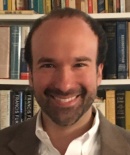
Benjamin Stanton is a principal investigator in the Center for Childhood Cancer Research at the Abigail Wexner Research Institute at Nationwide Children’s Hospital and assistant professor in the Department of Pediatrics at OSU College of Medicine. He leads his lab, the Systems Epigenetics Group, at Nationwide Children’s and The Ohio State University College of Medicine. Ben received a BA in chemistry from Northwestern University and a PhD from Harvard University, in the Department of Chemistry and Chemical Biology. He completed postdoctoral training at Stanford University School of Medicine in the Department of Pathology. The Systems Epigenetics Group is highly collaborative, focusing on pediatric cancer epigenetics and genomics. The lab’s main interests relate to (1) understanding chromatin activation in rhabdomyosarcoma, (2) understanding how epigenetic repression influences genome organization and (3) interdisciplinary approaches for new methods in systems epigenetics. Ben’s laboratory has a special interest in understanding the central determinants for 3D genome organization in cancer, and a strong focus on mentoring the next generation of scientists.
October 6th, 2023
James Brugarolas, MD, PhD
UT Southwestern
“From gene discovery to a first in class FDA approval.”
Sponsor: Dr. Michael Atkins
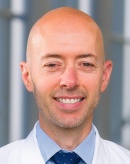
James Brugarolas, MD, PhD, is a practicing oncologist and a tenured Professor of Internal Medicine at UT Southwestern Medical Center (UTSW). He is the Sherry Wigley Crow Endowed Chair in Cancer Research and the founding Director of the Kidney Cancer Program, one of two recognized by NCI with a Specialized Program of Research Excellence (SPORE) award (Brugarolas, PI). Spanning the spectrum from fundamental to clinical research, discoveries from his laboratory identified several kidney cancer driver genes setting a foundation for the first molecularly-based classification of the most common type, the development of the first mouse models reproducing the human disease, and the identification of the first core dependency. His team is credited with advancing a first-in-class HIF-2 inhibitor developed at UTSW by validating HIF-2 as a target in kidney cancer and through the identification of putative biomarkers and mechanisms of resistance. A member of the American Society for Clinical Investigation and the NCI Renal Cancer Task Force, Dr. Brugarolas serves as chair of the scientific advisory board of the Academy of Kidney Cancer Investigators. Following a residency in internal medicine at Duke University Medical Center, he completed a fellowship in oncology at the Dana-Farber Cancer Institute, where he trained with Nobel Laureate William G. Kaelin, Jr, MD. He holds an M.D. from the University of Navarra and a Ph.D. from MIT, where he trained with Tyler Jacks, PhD.
September 29th, 2023
William Dahut, M.D.
ACS
“American Cancer Society: Funding and Creating Scientific Breakthroughs for Everyone Affected by Cancer.”
Sponsor: Dr. Michael Atkins and Dr Rebecca Riggins

William L. Dahut, MD, is chief scientific officer of the American Cancer Society. In this role, he oversees the strategic direction of both intramural and extramural research for the largest nonprofit funder of cancer research. Dr. Dahut manages all pieces of ACS’ Discovery Pillar, including surveillance and health equity science, population science, cancer screening guidelines, and extramural discovery science. He serves as the scientific voice of the organization, advises key discovery positions, and manages more than $400 million in research funding. Dr. Dahut guides efforts to enhance and focus the American Cancer Society’s research program, concentrating priorities where they will be most effective and working with key partners and supporters to further progress.
At ACS, Dr. Dahut is leading the Discovery Pillar’s contribution to the organization’s mission to Improve the lives of people with cancer and their families, ensuring everyone has an opportunity to prevent, detect, treat, and survive cancer. That includes work such as: the launch of a new ACS Center for Diversity in Research Training, which seeks to increase efforts to recruit and nurture people of color within scientific and clinical training environments; a groundbreaking new cohort focused on Black women that will launch in pilot markets in 2023; and a new IMPACT initiative focusing on reducing disparities in prostate cancer mortality in Black men.
Across the board, Dr. Dahut puts words into action, leading a team of some of the world’s most talented and highly cited researchers as they seek to “end cancer as we know it, for everyone.” His team is working to fund exceptionally impactful cancer research, particularly in areas often overlooked by other organizations. They are increasing their focus on screening, early detection, prevention, and detection of cancer recurrence. They are looking into research on health care implementation; emphasizing the scientific importance of diversity, equity, and inclusion in every aspect of Discovery-funded research; and providing opportunities to accelerate bench-to-bedside work.
An internationally recognized physician-investigator, Dr. Dahut held leading roles at the National Cancer Institute before joining ACS. He was scientific director for clinical research at the NCI’s Center for Cancer Research, head of the prostate cancer clinical research section, and NCI clinical director. Dr. Dahut has been laser-focused on helping cancer patients throughout his career, striking just the right balance between bench and bedside. Known as a tireless champion of clinical science, he has pioneered treatment regimens in prostate cancer and is a recognized expert in clinical trials and immunotherapy.
He received his MD from Georgetown University and completed clinical training in internal medicine at the National Naval Medical Center, followed by training in hematology and medical oncology at the Bethesda Naval Hospital and the Medicine Branch of the NCI.
Dr. Dahut sits on numerous boards and committees related to his work, has won distinguished honors and awards throughout his career, and is a prolifically published author, with nearly 250 pieces in peer-reviewed journals. He is chair-elect of the Department of Defense Prostate Cancer Research Program Integration Panel, has spoken to audiences across the country and around the world, and trained dozens of medical oncology fellows.
He is also professor of medicine at Uniformed Services University of the Health Sciences in Bethesda, Maryland, and continues to see patients in the prostate cancer clinic at Walter Reed National Medical Military Center.
Dr. Dahut lives in Bethesda, Maryland, with his family.
September 22nd, 2023
Lisa Carter-Bawa, Ph.D.
LCCC
“Lung Cancer Screening Ten Years Post-USPSTF Recommendation: Thinking Outside the Clinic to Address Screening Disparities and Low Uptake.”
Sponsor: Dr. Marc Schwartz

Dr. Lisa Carter-Bawa (formerly Carter-Harris) is a behavioral scientist with nearly 2 decades of clinical experience as an adult nurse practitioner. She completed her PhD at the University of Louisville in 2013, a 2-year postdoctoral fellowship at Indiana University in Behavioral Oncology in 2015, and 2 additional years of training through the National Cancer Institute’s Cancer Research Network Scholars Program in 2017. Finally, she completed her Master’s in Public Health at Yale University in May 2023. Dr. Carter-Bawa was inducted as a Fellow in the American Academy of Nursing for her work in patient-clinician communication in complex cancer screening decisions in 2018. She is currently the Director of the Cancer Prevention Precision Control Institute at the Center for Discovery & Innovation (CDI) at Hackensack Meridian Health in New Jersey. She is also a Co-Leader of the Cancer Prevention & Control Program and Co-Director of Community Outreach & Engagement for the Georgetown Lombardi Comprehensive Cancer Center consortium. She also holds an Affiliate Investigator appointment at Kaiser Permanente Washington Health Research Institute in Seattle. Prior to joining CDI, she was an Associate Attending Behavioral Scientist and the Associate Research Director of Tobacco Research at Memorial Sloan Kettering Cancer Center with a parallel appointment as Associate Professor of Population Health at Weill Cornell Medical College. Dr. Carter-Bawa’s research focuses on understanding the many factors that influence the decision-making process in lung cancer screening decisions as well as actual screening behavior. She has a particular passion for understanding how stigma influences the decision to screen, or not, for lung cancer, and has been funded by multiple organizations including the National Cancer Institute and the American Lung Association. She has been a strong advocate of understanding the patient perspective in lung cancer screening and credits the many wonderful individuals who have been involved in her studies for shaping her perspective on research and care in lung cancer. Dr. Carter-Bawa serves as the Chair of the Stigma & Nihilism Task Group of the American Cancer Society’s National Lung Cancer Roundtable. She is an appointed member of the Editorial Board of Nursing Research, the scientific journal of the American Academy of Nursing. She also serves as an executive board member of the Cancer Prevention and Control Board of the Centralized Institutional Review Board of the National Cancer Institute as well as many academic and national committees aimed at improving cancer prevention, early detection and decreasing inequities in care.
April 28th, 2023
David Mankoff, M.D., Ph.D.
University of Pennsylvania
“Molecular Imaging in Clinical Trials: Biomarker Imaging to Drive Precision Oncology”
Sponsor: Dr. Rebecca Riggins and Dr. Nina Kadan-Lottick
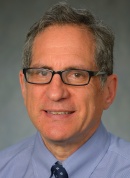
Dr. David Mankoff is the Matthew J. Wilson Professor and Vice-Chair for Research in Radiology at the Perelman School of Medicine at the University of Pennsylvania. He also serves as the Associate Director for Education and Training for Penn’s Abramson Cancer Center. Dr. Mankoff is board-certified in Nuclear Medicine and holds a PhD in Bioengineering focusing on PET instrumentation. He practices Nuclear Medicine at the University of Pennsylvania, with a special interest in oncologic applications of molecular imaging and radionuclide treatment of endocrine and other cancers. Dr. Mankoff’s research focuses on molecular imaging of cancer, primarily on breast cancer, and emphasizes therapeutic monitoring, identifying factors mediating therapeutic resistance, and the translation of new methods to clinical trials. He also works on imaging methodology and quantitative imaging methods related to molecular cancer imaging. Dr. Mankoff is an Emeritus Komen Scholar for the Susan G. Komen Foundation. Dr. Mankoff is a past member and President of the American Board of Nuclear Medicine and is on the editorial boards of Nuclear Medicine and Biology, Breast Cancer Research, Journal of Nuclear Medicine, The Breast Journal, and Clinical Cancer Research and serves as an Associate Editor for the Journal of Nuclear Medicine and Deputy Editor for Breast Cancer Research.
March 31st, 2023
Michelle Janelsins, Ph.D.
University of Rochester
“Advances in our understanding of cancer-related cognitive impairment”
Sponsor: Dr. Jeanne Mandelblatt
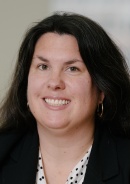
Dr. Michelle Janelsins is a tenured Associate Professor of Surgery, Radiation Oncology, and Neuroscience, and Chief of the Division of Supportive Care in Cancer within the Department of Surgery at University of Rochester. She is PI and Director of the Cancer Control and Psychoneuroimmunology Lab and Directs the Human Biophysiology Shared Resource at Wilmot Cancer Institute. Dr. Janelsins is Chair of Cancer Control Research for the URCC NCORP Research Base as well as Director of the URCC NCORP Biobank. Dr. Janelsins received her PhD from University of Rochester with training in neuroimmunology and neuroscience and then completed fellowship with training in clinical cancer control research, neuropsychology methods, and cognitive science at University of Rochester and Wilmot Cancer Institute. Her research primarily focuses on understanding clinical, psychological, and biological contributors of cancer-related cognitive decline and on interventions to alleviate cancer-related cognitive decline involving clinical trials, longitudinal studies, and animal modeling. Several of her research projects in this area has been funded by NIH/NCI including an NIH Director’s New Innovator Award. Dr. Janelsins also co-directs an NCI T32 Clinical and Translational Cancer Control Research Training Program at University of Rochester, which is in its 19th year. She is a passionate mentor to numerous scientists and clinician-scientist junior investigators from multiple disciplines. To date, she has mentored over 40 students, fellows, and junior faculty and have helped many of them establish independent funding. Lastly, Dr. Janelsins currently serves as Co-Chair of the NCI Symptom Management and Quality of Life Steering Committee and is a member of the NIH Center for Scientific Review Advisory Council.
March 24th, 2023
Adrian Lee, Ph.D.
University of Pittsburgh
“Precision medicine applied to metastatic breast cancer”
Sponsor: Dr. Marc Lippman

Dr. Adrian Lee is Professor of Pharmacology & Chemical Biology and Human Genetics at the University of Pittsburgh and UPMC Hillman Cancer Center. Dr Lee is the Pittsburgh Foundation Chair and Director of the Institute for Precision Medicine (IPM), a joint effort by the University of Pittsburgh and UPMC to move biomedical research into personalized well-being and clinical care. Dr. Lee received B.Sc. and Ph.D. degrees in England, and came to San Antonio, Texas for his postdoctoral studies. He was subsequently recruited to Baylor College of Medicine and to the University of Pittsburgh in 2010. Dr Lee has published over 200 peer reviewed research articles (google scholar H-index 76, >15,000 citations). Dr. Lee serves on numerous national peer-review committees and is on the Editorial Board of several journals. In 2018, Dr. Lee was awarded the Terri L Chapman award from Susan G. Komen, the PNC Elsie Hillman Distinguished Scholar award, and the University of Pittsburgh Biomedical Graduate Scholar Association (BGSA) Distinguished Mentor Award.
The Lee/Oesterreich lab is supported by funding from the NIH, Department of Defense, Susan G. Komen for the Cure, Breast Cancer Research Foundation, and other sources. The lab studies the molecular basis of breast cancer development and resistance to therapy, with the goal to improve precision medicine and outcomes for breast cancer patients. The laboratory employs a systems biology approach, utilizing a combination of single cell and bulk sequencing, computational methods, and biological models to identify and validate new drivers and therapeutic targets. Hypotheses are tested in vitro and in vivo and then moved to clinical trials. The majority of studies incorporate analysis of human specimens, in collaboration with a large network of clinicians and nurses. This includes computational analysis and modeling of large biomedical and genomic datasets including electronic health record data.
A major focus of the laboratory is identifying mechanisms of resistance to endocrine therapy, and new approaches to blocking breast cancer metastasis through precision medicine. This includes the study of estrogen receptor (ESR1) mutations and fusions and synergism with growth factor pathways. A special focus is on the understanding of invasive lobular cancer (ILC), the second most common but understudied histological subtype of breast cancer.
The laboratory has a very strong training environment, with attention to diversity and inclusion and each individuals’ successful career development. One of the top priorities is to maintain a healthy lab environment, ensuring high productivity and rigor.
March 17th, 2023
Carlos Mendes de Leon, Ph.D.
LCCC
“Population Research of Aging and Dementia: An International Perspective”
Sponsor: Dr. Kenneth Tercyak

Dr. Carlos Mendes de Leon is a Research Professor in the Department of Oncology at Georgetown University School of Medicine. He completed his undergraduate and Master’s degree at the Radboud University in Nijmegen, the Netherlands, with a major in clinical psychology. In 1983, he began his graduate training in Preventive Medicine and Community Health at the University of Texas Medical Branch in Galveston, TX, where he completed his doctoral degree in 1989. From there he went to Yale University for his post-doctoral training in the epidemiology of aging, followed by a faculty position as Assistant Professor of Chronic Disease Epidemiology at the Yale University School of Public Health. He accepted a position as Associate Professor of Internal Medicine (Epidemiology) and Preventive Medicine at Rush University Medical School in Chicago in 1996, and became full Professor in 2005. From 2008 to 2011, he also served as the Director of the Rush Institute for Healthy Aging. In 2011, he moved to the University of Michigan in Ann Arbor, MI to become Professor of Epidemiology in the School of Public Health. He also served as Director of the Center of Social Epidemiology and Population Health, and the Center for Integrative Approaches to Health Disparities while at the University of Michigan School of Public Health.
Dr. Mendes de Leon is a social epidemiologist with a primary interest in the major health problems and health disparities of older adult populations. His work focuses on a broad array of social and psychological determinants that affect the development and progression of cognitive decline, late-life disability, and other common, age-associated changes in physical and mental health. His current work includes the development of two new international cohort studies of dementia and aging, one in Lebanon and one in Nepal. Both studies have a primary focus on the role of stressful life conditions throughout adulthood in dementia risk in later life. Another area of primary interest involves the effect of mid-life social and work experiences on retirement transitions and health outcomes in later life. He has served on multiple NIH grant and program review panels, and he is an active member in professional organizations in the fields of gerontology, epidemiology, and population health sciences, having served on the editorial board of several scientific journals in these disciplines.
March 3rd, 2023
Dario Vignali, PhD
University of Pittsburgh
“LAG3: The third checkpoint inhibitor”
Sponsor: Dr. Michael Atkins
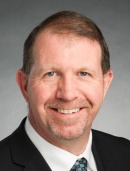
Dario AA Vignali, PhD is the Frank Dixon Chair in Cancer Immunology, a Distinguished Professor and Interim Chair of the Immunology Department at the University of Pittsburgh School of Medicine. He is also Associate Director for Scientific Strategy and co-leader of the Cancer Immunology and Immunotherapy Program in the UPMC Hillman Cancer Center. His research focuses on molecular and cellular aspects of negative regulatory immune mechanisms including regulatory T cells, inhibitory receptors, and inhibitory cytokines. His lab was instrumental in uncovering the role of LAG3 in mouse models of cancer, tolerance, autoimmunity and immune regulation. His lab discovered the inhibitory cytokine IL35 and the NRP1:SEMA4A axis, which are key regulators of intratumoral Treg stability and function. His current research extensively uses systems immunology approaches to understand transcriptional regulation of effector T cell exhaustion and regulatory T cell function and fate in murine models of cancer and autoimmunity, and numerous human tumors. He has been a Highly Cited Researcher (top 1% by citations; Clarivate Analytics) for the last five years (2016-2021) and has published over 210 papers with over 40 as senior or co-author in high impact journals (IF>10). He has a strong record of extramural funding, which currently includes an NIH P01, R35 and three R01 grants. His innovative, discovery-based research has led to 15 patent awards (11 in the US) and 11 pending patent applications worldwide, and he is a co-founding scientist of several companies (Potenza Therapeutics [sold to Astellas], Tizona Therapeutics [sold to Gilead], Novasenta). Lastly, he is co-Director of the Cancer Immunology Training Program (NCI T32), and has trained, or currently training, 50 postdoctoral research or clinical fellows and 14 graduate students, with several successfully obtaining extramural fellowships (14 total), emphasizing his commitment to train the next generation of immunologists.
February 24th, 2023
Charles Craik, M.D.
UCSF
“Targeting an Intracellular Oncoprotein in MHC 1 for Immunotherapy”
Sponsor: Dr. Michael Atkins

Charles Craik is a Professor in the Department of Pharmaceutical Chemistry at the University of California at San Francisco. He is the founder and former director of the Chemistry and Chemical Biology Graduate Program and is Associate Director of Translational Research and co-director of the Molecular Oncology Program in the Helen Diller Family Comprehensive Cancer Center. He received his education and training in Chemistry at Allegheny College (BS), Columbia University (Ph.D.) and UCSF (Postdoctoral). Since joining the UCSF faculty his research interests have focused on defining the roles and the mechanisms of enzymes, protein degradation machinery, receptors, membrane transporters and other challenging proteins in complex biological processes and on developing technologies to facilitate these studies. These studies coupled with his global substrate profiling, antibody engineering and noninvasive imaging efforts are providing a better understanding of both the chemical make-up and the biological importance of these critical proteins to aid in the rapid detection, monitoring and control of infectious disease, neurological disorders and cancer. Craik is a council member of the American Association of Biochemistry and Molecular Biology (ASBMB), a Fellow of the American Association for the Advancement of Science (AAAS) and the National Academy of Inventors (NAI) and a member of the American Academy of Arts and Sciences.
February 17rd, 2023
Yuan Zhu, Ph.D.
George Washington
“Investigating MEK inhibition and resistance in the treatment of nervous system tumors”
Sponsor: Dr. Nagi Ayad
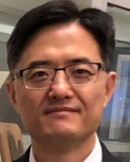
Dr. Yuan Zhu is a Gilbert Family Endowed Professor and Scientific Director at the Children’s National Hospital at Washington D.C. Dr. Zhu is Professor in the Department of Pediatrics, George Washington University School of Medicine. Dr. Zhu obtained his Ph.D. in Neuroscience at the University of Texas Southwestern Medical Center at Dallas in 2000, was Assistant Professor from 2003 to 2010, and Associate Professor with tenure from 2010 to 2013 in the Departments of Internal Medicine and Cell & Developmental Biology at the University of Michigan Medical School. Dr. Zhu has contributed significantly to the understanding of the cellular and mechanism underlying the pathogenesis of neurofibromatosis type 1 (NF1)-associated diseases, the role of tumor suppressor genes in normal development and brain tumorigenesis. Dr. Zhu has developed a series of genetically engineered mouse (GEM) models for a variety of NF1-associated diseases, including plexiform neurofibroma, malignant peripheral nerve sheath tumor (MPNST), low- and high-grade gliomas. Some or derivatives of these GEM models were used for the preclinical studies, serving the basis for the success of clinical trials using MEK inhibitors for plexiform neurofibroma. Further, Dr. Zhu’s group is one of the researcher groups that showed therapeutic efficacy of MEKi in preventing NF1-associated diseases in preclinical models, including optic pathway glioma. Dr. Zhu received academic and research awards, including Biological Sciences Scholars Program (BSSP) Scholar from the University of Michigan, General Motors Cancer Research Scholars Program Scholar, Paul Daniel Bogart Leadership Chair of Research from Brain Tumor Society, American Cancer Society (ACS) Research Scholar, and Gilbert Family Endowed Professorship. Dr. Zhu co-chaired 2014 Children’s Tumor Foundation-sponsored NF conference at Washington DC. Dr. Zhu was elected as a Fellow of the American Association for the Advancement of Science (AAAS) in 2019. Dr. Zhu was selected as the first recipient of the George Washington University Cancer Center Outstanding Scientist Award for his contributions to the understanding of the mechanisms underlying the development of tumors and altered brain development arising in the setting of the inherited condition neurofibromatosis type 1 (NF1) in 2021.
February 10th, 2023
Alan D’Andrea, M.D.
Harvard
“Targeting DNA Repair in Cancer Therapy”
Sponsor: Dr. Gary Kupfer
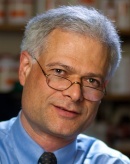
Dr. D’Andrea received his Doctor of Medicine from Harvard Medical School in 1983. He completed his residency at the Children’s Hospital of Philadelphia, and a fellowship in pediatric hematology-oncology at Dana-Farber Cancer Institute and Boston Children’s Hospital. He also completed a research fellowship at the Whitehead Institute of Biomedical Research at Massachusetts Institute of Technology, where he cloned the receptor for erythropoietin, the major hormone for blood production. Dr. D’Andrea joined the Dana-Farber faculty in 1990. He is currently the Fuller-American Cancer Society Professor of Radiation Oncology at Harvard Medical School, the Director of the Center for DNA Damage and Repair, and the Director of the Susan F. Smith Center for Women’s Cancers at Dana-Farber Cancer Institute.
Dr. D’Andrea is internationally known for his research in the area of DNA damage and DNA repair. His laboratory also investigates the pathogenesis of Fanconi Anemia, a human genetic disease characterized by a DNA repair defect, bone marrow failure, and cancer predisposition.
A recipient of numerous academic awards, Dr. D’Andrea is a former Stohlman Scholar of the Leukemia and Lymphoma Society, a Distinguished Clinical Investigator of the Doris Duke Charitable Trust, a recipient of the E. Mead Johnson Award from the Society for Pediatric Research, a recipient of the G.H.A. Clowes Memorial Award from the American Association for Cancer Research, a Fellow of the American Association for the Advancement of Science, a member of the American Association for Cancer Research Academy, the National Academy of Medicine, and the National Academy of Sciences.
February 3rd, 2023
Steven Leach, M.D.
Dartmouth
“Toward Biomarker-based Therapy for Pancreatic Cancer”
Sponsor: Dr. Stephen Byers

Steven D. Leach is Professor of Molecular and Systems Biology, Surgery and Medicine, the Preston T. and Virginia R. Kelsey Distinguished Chair in Cancer, and Director of Dartmouth’s Cancer Center. Prior to this, he directed Memorial Sloan Kettering’s Rubenstein Center for Pancreatic Cancer Research, and also served as Professor of Surgery, Oncology and Cell Biology at Johns Hopkins. Dr. Leach received his bachelor’s degree with high honors in Biology from Princeton University. He then completed medical school at Emory University, where he was a Robert Woodruff Fellow, followed by additional clinical and scientific training at Yale, where he completed his Residency and Chief Residency in General Surgery and an additional postdoctoral research fellowship studying pancreatic acinar cell biology with Dr. Fred Gorelick. Following an additional fellowship in surgical oncology at M.D. Anderson, his first faculty position was at Vanderbilt University, where he was a busy cancer surgeon specializing in the care of pancreatic cancer patients. In 2000, he moved to Johns Hopkins University, where he was Professor of Surgery, Oncology and Cell Biology, the Paul K. Neumann Professor in Pancreatic Cancer, Chief of the Division of Surgical Oncology, and Vice Chair of Academic Affairs in the Department of Surgery. He moved to Memorial Sloan Kettering in 2014, and on to Dartmouth in 2017. After several decades as a busy pancreatic cancer surgeon, Dr. Leach shifted his efforts towards directing a large research team focused on the biology, genetics and treatment of pancreatic cancer. Dr. Leach’s lab has a long track record of groundbreaking discoveries, including the identification of several genes and pathways that are now being targeted in clinical trials for pancreatic cancer patients. He has been the principal investigator for multiple NIH R01, P01, P30, U01 and T32 grants, and has received multiple awards honoring his work, including induction as a Fellow of the American Academy for the Advancement of Science. In addition to his research activities, Dr. Leach has also served as Chair of the Pancreatic Cancer Action Network’s Scientific and Medical Advisory Board, as co-Editor-in-Chief of Current Opinion in Genetics and Development, and as a member of the Princeton University Board of Trustees.
January 27th, 2023
Ed Reznik, Ph.D.
Sloan Kettering
“Recurrence, Selection, and Function of Somatic Mitochondrial DNA Alterations in Cancer”
Sponsor: Dr. Michael Atkins
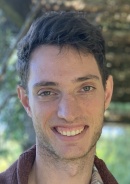
Dr. Reznik is an Assistant Member in the Computational Oncology Service at Memorial Sloan Kettering Cancer Center (MSKCC). He completed his undergraduate studies in biological and biomedical engineering at Cornell University. Dr. Reznik completed a Ph.D. with Daniel Segre at Boston University, studying genome-scale models of bacterial metabolism. He has worked at MSKCC since 2013, first as a postdoctoral fellow with Chris Sander and subsequently since 2017 as a faculty member. His lab uses computational and quantitative approaches to study tumor metabolism.
December 16th, 2022
Elizabeth Repasky, Ph.D.
Roswell Park
“Making the best of a cold situation: Using the housing temperature of laboratory mice to understand the impact of chronic stress on anti-tumor immunity”
Sponsor: Dr. Marc Lippman
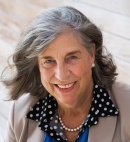
Dr. Elizabeth A. Repasky is a Distinguished Member of Roswell Park Comprehensive Cancer Center, the Lawrence J. Minet Endowed Chair in Immunology and Program Leader for the Cancer Stress Biology Program. She is a native of Western Pennsylvania, graduating from Seton Hill University with a BA in Biology. She received her PhD from SUNY Buffalo and did a postdoctoral fellowship in cell biology at the California Institute of Technology. Dr. Repasky’s research program focuses on exploration of stress and its immunological consequences with the goal of using this information to improve efficacy of cancer therapies. A longstanding passion for her has been her research on the physiological role of temperature, thermal stress and the impact of thermoregulation on the anti-tumor immune response. Dr. Repasky has over 225 research publications and is the recipient of the Dr. Thomas B. Tomasi “Hope Award” at Roswell Park and the “Distinguished Biomedical Alumna Award” from the University at Buffalo, and both the J. Eugene Robinson and William C. Dewey Awards from the Society for Thermal Medicine. She has served as major advisor to 24 PhD and MD/PhD students and 12 Postdoctoral Fellows, nearly all of whom have gone on to become successful members of the research, academia, or bio-tech communities. Her outstanding teaching and mentorship skills have been recognized by several awards.
December 9th, 2022
Laura Rozek, Ph.D.
LCCC
“Molecular Epidemiology and Head and Neck Cancer: Integrating Data from a Large Clinical Cohort”
Sponsor: Dr. Michael Atkins

Dr. Rozek is a Professor of Oncology at Georgetown University Medical Center and co-Leader of the Cancer Prevention and Control program for Georgetown-Lombardi Comprehensive Cancer Center. She has a MS in Epidemiology from the University of Washington School of Public Health and a PhD in Epidemiology and MA in Statistics from the University of Michigan, where she was on faculty in the School of Public Health until moving to Georgetown in August 2022. Her work integrates molecular and epidemiology data from studies of head and neck and colorectal cancer to identify avenues for prevention and improved survival. She also has several global cancer projects in Southeast Asia and Africa, in particular studies that address cervical cancer screening and treatment.
December 2nd, 2022
Lee Grimes, Ph.D.
University of Cincinnati
“Discrete hematopoietic cell states and marrow failure syndromes”
Sponsor: Dr. Gary Kupfer
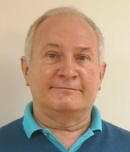
Dr. Grimes has a broad background in hematopoiesis, molecular biology, and molecular oncology including mouse modeling of hematopoiesis, myelopoiesis, marrow failure syndromes and leukemia. He received a PhD in Molecular Pathology and Immunology studying gene regulation with Maureen Goodenow (then at University of Florida), and then joined Philip Tsichlis (then at Fox Chase Cancer Center) whose lab was at that time cloning novel genes activated by Moloney murine leukemia virus insertion mutagenesis (e.g. Akt, Tpl2). He participated in the identification of the Growth factor independent-1 (Gfi1) transcription factor, its DNA binding specificity, named the “SNAG” transcription repressor domain, and genetically linked this domain to Gfi1-directed biology. His laboratory continues to focus on transcriptional integration of normal and malignant hematopoiesis. With Marshall Horwitz (U. Wash) they identified humans with mutations in GFI1, who display severe congenital neutropenia (SCN) and non-immune chronic idiopathic neutropenia of adults (NI-CINA). His laboratory has established multiple mouse models of human disease, including acute myeloid leukemia (AML), and more recently SCN. His work has spanned both small molecule and RNA therapeutics. In Cancer Discovery 2016, they proved that Dnmt3a haplo-insufficiency could facilitate AML genesis. In Nature 2016, they were one of the first labs to utilize scRNA Seq profiling to dissect homeostatic myeloid development and provide deep molecular insight into the process of differentiation. In Blood 2018, they showed (for the first time) that scRNA Seq data can be analyzed for RNA splicing, and showed that TGFbeta-induced destruction of SKI impacted splicing independent of splicing factor mutations in early-stage myelodysplasia (MDS). In Nature June 2020, they generated the first mouse models of human severe congenital neutropenia (SCN) using patient-derived mutations in the GFI1 transcription factor. To determine the effects of SCN mutations, they generated single-cell references for granulopoietic genomic states with linked epitopes, aligned mutant cells to their wild-type equivalents and identified differentially expressed genes and epigenetic loci. These insights facilitated the genetic rescue of granulocytic specification but not post-commitment defects in innate-immune effector function and underscore the importance of evaluating the effects of mutations and therapy within each relevant cell state. They are actively harnessing both established and cutting-edge single cell technologies to dissect the transcriptional and epigenetic programming of normal and malignant hematopoiesis. In collaboration with Nathan Salomonis (CCHMC) he develops biologically-centric informatics algorithms to process single cell data, web portals to disseminate the work flows, and web browsers to make the data easily accessible to biologists.
November 11th, 2022
William A. Weiss, M.D., Ph.D.
UCSF
“New models and vulnerabilities for neural tumors”
Sponsor: Dr. David Robbins

Dr. William Weiss is a Professor of Neurology, Pediatrics, and Neurological Surgery, at the University of California, San Francisco CA. He is an expert on developmental therapeutics, focusing on kinase biology, MYC, and in vivo models of cancer. Dr. Weiss co-leads the Pediatric Malignancies Program within UCSF’s Helen Diller Family Comprehensive Cancer Center, is a senior editor at Cancer Research, and is associate editor of Neuro-Oncology and of Molecular and Cellular Biology. Dr. Weiss received his M.D. and Ph.D. degrees from the Stanford University School of Medicine, and performed postdoctoral training at UCSF. He completed his clinical training in pediatrics at Boston Children’s Hospital, and in neurology at UCSF.
November 4th, 2022
Eric T. Rosenthal and Donald “Skip” Trump, M.D.
“Centers of the Cancer Universe: A Half-Century of Progress Against Cancer”
Sponsor: Dr. Rebecca Riggins
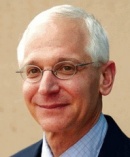
Eric T. Rosenthal is an award-winning independent journalist who has covered issues, controversies, and trends in oncology for more than three decades for MedPage Today, Oncology Times, Onco’Zine, the Journal of the National Cancer Institute, and the Group Room nationally syndicated cancer talk-radio show.
Coauthor of Centers of the Cancer Universe: A Half-Century of Progress Against Cancer with Donald L. “Skip” Trump, MD, he has written numerous op-eds for The Hill with Nancy G. Brinker, founder of Susan G. Komen and co-founder of the Promise Fund of Florida and was a guest blogger for PBS/WETA-TV’s cancerfilms.org “Producers’ Blog” in 2015, which was associated with Ken Burns’ Cancer: Emperor of All Maladies PBS documentary.
Born in Brooklyn, N.Y., Rosenthal started his career at the Trenton Times and has 50-years’ experience in journalism and academic public affairs, including positions at the Franklin Institute, Drexel University, the American College of Physicians, and Fox Chase Cancer Center, where he served as director of public affairs and founded the NCI-Designated Cancer Centers Public Affairs Network in 1990. He helped organize two national conferences on medicine and the media at Mayo Clinic and Cold Spring Harbor Laboratory, has co-chaired several national conferences dealing with cancer, and was a member of the NCI Director’s Consumer Liaison Group, as well as several other cancer-related national committees.
Rosenthal is founder of EvocaTalk® Research & Reports, a media service that identifies or helps resolve issues, and enhances insights through interactive interviews and analysis. He received his BA in English from Penn State University, attended graduate school in literature at the University of Rochester, and lives in Audubon, Pa.
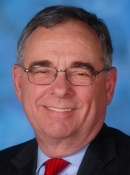
Donald L. Trump, MD, FACP, has been a leader of comprehensive cancer center science, clinical, and education programs for more than 2 decades. He has served as director of experimental therapeutics at Duke Comprehensive Cancer Center, deputy director for clinical investigations at the University of Pittsburgh Cancer Institute, and he was the president and CEO of Roswell Park Cancer Institute (RPCI) from 2007 to 2014, in which he led the successful competitive renewal of the RPCI National Cancer Institute Comprehensive Cancer Center Support Grant (CCSG) twice. From 2002 to 2007, he was co-PI of the Roswell Park CCSG, associate institute director, and senior vice president for clinical investigation. He has been co-PI or PI on numerous peer-reviewed National Institutes of Health, Department of Defense, and American Cancer Society grants.
In 2015, Dr. Trump moved to Northern Virginia as founding director of the newly established Inova Schar Cancer Institute (ISCI), a part of the Inova Health System, and was appointed professor of medicine at the University of Virginia. In early 2019, Dr. Trump retired from his ISCI leadership position. Since retirement Dr. Trump continues to act as a senior advisor to several cancer centers and drug development companies. He and his colleague, Eric Rosenthal have written a book, Centers of the Cancer Universe: 50 Years of Progress Against Cancer.(https://rowman.com/ISBN/9781538144909/Centers-of-the-Cancer-Universe-A-Half-Century-of-Progress-Against-Cancer ) which recounts the history of cancer centers in the US after the National Cancer Act of 1971 and the influences of these centers on the remarkable progress that has occurred in cancer research and cancer care in the past half century. Centers of the Cancer Universe: 50 Years of Progress Against Cancer will be published by Rowan and Littlefield in October, 2021.
Dr. Trump’s clinical and research program has focused on developing new approaches in genitourinary (GU) cancer treatment, especially in prostate cancer, with a particular emphasis on the evaluation of the biological and clinical roles of vitamin D and vitamin D analogues in GU cancer etiology and therapeutics. He has led institutional and cooperative group trials in new treatment approaches to GU malignancies, and has developed several vitamin D-based clinical studies. He has carried out detailed pharmacokinetic/ pharmacodynamic assessments of calcitriol (the most active vitamin D compound), given by several schedules and routes of administration and collaborated in preclinical assessments of vitamin D-based therapeutics and translational studies emanating from these clinical trials.
October 28th, 2022
Beth Jones, Ph.D.
Yale
“Translating Cancer Disparities Research into Community Impact”
Sponsor: Dr. Kenneth Tercyak

Beth A. Jones, PhD, MPH has been integral to implementation of the Community Outreach Engagement (COE) initiatives within the Yale Comprehensive Cancer Center. As Assistant Director for Diversity and Health Equity for the Yale Comprehensive Cancer Center (YCC) (2015-2020), she co-led this program culminating in Yale School of Medicine / YCC’s establishment of the Center for Engagement and Health Equity (CEHE) in 2020. Within CEHE, Dr. Jones was named Associate Director for Community Engagement, and currently leads the community outreach activities under CAPE (Cancer Action Prevention Engagement). She was the inaugural Director of the Smilow (Cancer Hospital) Cancer Screening and Prevention Program (2015-2020), the Director of the Yale-CURE program, Cancer Research Opportunities for Youth, and with Co-PI, Roy Herbst, MD, PHD, she leads the Bristol Myers Squibb Foundation-funded Yale Cancer Disparities Firewall Program.
Dr. Jones is a cancer epidemiologist who focuses on health disparities. With 20 years of research and teaching experience on the faculty of the Yale School of Public Health, she has been the PI on large multi-year investigations that have systematically evaluated factors that contribute to relatively poor cancer outcomes in African American and Hispanic/Latinos living in Connecticut. Her research has focused on racial/ethnic differences in cancer screening and cancer outcomes, particularly breast cancer. Using a multidisciplinary approach, she has evaluated the role(s) of tumor characteristics, selected genetic alterations and genetic polymorphisms, as well as social class, medical care, and psychosocial factors, in explaining differences in cancer stage at diagnosis and survival between African Americans and Whites. Her work has also focused on the on the screening mammography process in African Americans and Whites, followed by an investigation that evaluated cancer screening in the increasing Hispanic / Latine population living in the Northeast, US. More recently, she collaborates with the Yale Center for Methods in Implementation Science to better understand translation of research into real-world impact.
October 21st, 2022
Huadong Pei, Ph.D.
LCCC
“Regulation of Lipid De Novo Synthesis in Breast Cancer”
Sponsor: Dr. Gary Kupfer
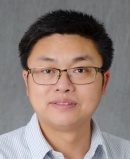
Dr. Pei’s laboratory focuses on understanding DNA damage response pathway, which is critical for maintaining genomic stability. DNA damage agents, such as ubiquitous UV and ionizing radiation, activate a signaling cascade called DNA damage response pathway that initiates DNA repair and cell cycle checkpoint activation. Understanding this pathway will help us understand the cause of genomic instability, a driving force of tumorigenesis. In addition, we could explore the information gained to effectively kill cancer cells, since cancer cells often are defective in some aspect of DNA damage response.
Dr. Pei’s laboratory is also interested in glycobiology, cell metabolism, and human diseases. Nutrient flux into the cell triggers protein modification by the amino sugar called N-acetylglucosamine (O-GlcNAc). This dynamic and reversible posttranslational modification is emerging as a key regulator of diverse cellular processes. His lab is interested in elucidating how dysregulation in this posttranslational modification contributes to human diseases including cancer, neurodegenerative diseases, obesity and aging.
His lab is employing a combination of experimental approaches, including biochemistry, cellular biology, mouse genetics, proteomics and metabolomics, to accomplish our research goals.
October 14th, 2022
Eytan Ruppin, M.D., Ph.D.
NIH
“Next Generation transcriptomics-based precision”
Sponsor: Dr. Michael Atkins
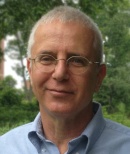
Eytan Ruppin received his M.D. and Ph.D. (Computer Science) from Tel-Aviv University where he has served as a professor of Computer Science & Medicine since 1995, conducting computational multi-disciplinary research spanning a wide variety of topics, including neuroscience, evolutionary computation, natural language processing, machine learning and systems biology. He joined the University of Maryland in July 2014 as a Computer Science professor and director of its center for bioinformatics and computational biology (CBCB), before joining the NCI in January 2018, where he co-founded and is Chief of its Cancer Data Science department. Studying cancer metabolism, his lab has been involved in identifying the first metabolic synthetic lethal cancer drug target and in the discovery of the link between urea cycle dysregulation and response to immunotherapy, among others. His recent research focus is on developing new approaches for synthetic lethal based precision oncology, which are now moving into clinical prospective testing. Eytan is a member of the editorial board of EMBO Reports and Molecular Systems Biology and a fellow of the International Society for Computational Biology (ISCB). He has recently received the NCI Director award (2022) and the Delano Award for Computational Biosciences (2023) for his contributions for advancing transcriptomics-based precision oncology. Dr. Ruppin is also a co-founder of a few startup companies involved in precision medicine and cancer drug discovery.
October 7th, 2022
Carolyn Fang, Ph.D.
Fox Chase
“Achieving Cancer Health Equity in Asian Americans: Dispelling the Myth of the “Model Minority””
Sponsor: Dr. Kenneth Tercyak

Carolyn Fang, PhD is Associate Director of Population Science and Professor in the Cancer Prevention and Control Program at Fox Chase Cancer Center, and an Adjunct Professor at Temple University Lewis Katz School of Medicine. Dr. Fang’s research has focused on how psychosocial, biobehavioral, and healthcare access factors influence cancer risk and outcomes, particularly in diverse and medically underserved populations. As a behavioral scientist, Dr. Fang has led a number of community-based initiatives targeting cancer screening and risk reduction behaviors among Asian Americans. In recognition of her efforts to address health disparities among underserved populations, Dr. Fang received the Health Equity Leadership & Social Justice Award from Temple University Health System and the Cancer Control Award from the PA American Cancer Society.
Dr. Fang obtained her undergraduate degree from Colgate University and a PhD in Psychology from the University of California, Los Angeles (UCLA). She completed a 2-year postdoctoral fellowship in Cancer Prevention and Control at Fox Chase Cancer Center, prior to joining the faculty. Dr. Fang is a member of the NCI Cancer Prevention Steering Committee, the NRG Oncology Cancer Prevention and Control (CPC) Committee, and a member of the Pennsylvania Cancer Coalition. She is an elected Fellow in the Society of Behavioral Medicine (SBM) and the Academy of Behavioral Medicine Research (ABMR).
September 30th, 2022
Katherine Nathanson, M.D.
University of Pennsylvania
“The constantly evolving landscape of inherited breast cancer”
Sponsor: Dr. Marc Schwartz
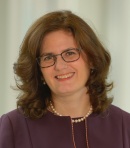
Dr. Nathanson is a cancer geneticist, boarded in Internal Medicine and Clinical Genetics; she runs a research laboratory and has a busy clinical practice. Currently she is Professor at the Perelman School of Medicine at the University of Pennsylvania, and at the Abramson Cancer Center is the co-Leader of the Cancer Control Program and Chief Oncogenomics Physician. Dr. Nathanson has had extensive experience with molecular genotyping and analysis of genetic variants in relationship to cancer susceptibility and somatic genetics of cancer. She runs a translational research laboratory and has had a long term interest and published extensively on breast cancer genetics on topics including the identification of novel breast cancer susceptibility genes, characterization of cohorts that carry mutations in BRCA1/2 and genetic modifiers of breast cancer penetrance in BRCA1/2 mutation carriers, among others. Dr. Nathanson is a key contributor to the development of a large collection of DNA and tissue samples from high-risk family breast cancer cohorts, participating in several national and international consortium, including the Consortium of Identifiers of Modifiers of BRCA1/2 (CIMBA) and Evidence-based Network for the Interpretation of Germline Mutant Alleles (ENIGMA). She has had a longstanding interest in the identification and characterization of moderate to high penetrance breast cancer susceptibility genes, which is the focus of her BCRF funded project.
September 23rd, 2022
Augusto Ochoa, M.D.
LSU
“Expanding access to clinical trials in Louisiana: lessons from cooking gumbo”
Sponsor: Dr. Lucile Adams-Campbell

Dr. Augusto Ochoa is the Chair of the Dept of Interdisciplinary Oncology and Deputy Director of the LSU-LCMC Cancer Center in New Orleans. He is the Principal Investigator for the Gulf South Minority/Underserved NCORP (NCI Community Oncology Research Program) a state-wide cancer clinical trials program in Louisiana. Dr. Ochoa also is a board certified pediatric immunologist who practices at Children’s Hospital in New Orleans. Dr. Ochoa was trained in medicine in his native Colombia, followed by training in immunology and immunotherapy at the University of Minnesota where he began his work in cancer research. He was recruited to the Frederick Cancer Center of the National Cancer Institute where he led the Tumor Immunology and Immunotherapy Laboratory. His team has worked on understanding the role of immunosuppressive mechanisms in tumors that block protective anti-tumor T cell responses. A major initiative at LSU has been to increase access to clinical trials to cancer patients in Louisiana especially minority and underserved populations who have a higher incidence and mortality from the disease. The Gulf South NCORP is a joint effort between LSU – New Orleans, LSU – Shreveport, Ocshnser Medical Center and Mary Bird Perkins Cancer Center aimed at bringing clinical trials to patients closer to their homes, and increase the participation of minority/underserved patients in clinical studies. Dr. Ochoa has served in president Biden’s Cancer Moonshot committee, and on the Board of Scientific Counselors and the Clinical Trials and Translational Research Committee of the NCI. He was recognized with the 2022 Harry Hynes Award by the National Cancer Institute for his contributions and leadership in Cancer Clinical Trials and Community Outreach.
September 16th, 2022
Judith E. Carroll, Ph.D.
UCLA
“Cancer related accelerated aging and biobehavioral modifiers”
Sponsor: Dr. Jeanne Mandelblatt
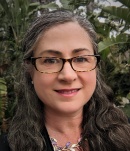
Dr. Carroll is an Associate Professor of Psychiatry and Biobehavioral Science at UCLA, a faculty member of the Cousins Center for Psychoneuroimmunology and the Jonsson Comprehensive Cancer Center, and leads the UCLA Aging Biology and Behavior Laboratory. She holds the George F. Solomon Endowed Professorship in Psychobiology. Dr. Carroll received her PhD in Biological and Health Psychology at the University of Pittsburgh in 2010, and completed a NRSA postdoctoral training program in Psychoneuroimmunology at UCLA before accepting her current faculty appointment at UCLA in the department of Psychiatry in 2013. Her research is focused on factors that influence biological aging, the role of cancer treatments and behavioral modifiers. Dr. Carroll will discuss her work in cancer and aging, including work in TLC with Jeanne Mandelblatt. She receives research support from the American Cancer Society, STOP Cancer, the National Institute on Aging, and the National Cancer Institute.
September 9th, 2022
Binfeng Lu, Ph.D.
LCCC
“Tissue alarmin cytokines as a novel cancer immunotherapy”
Sponsor: Dr. Michael Atkins
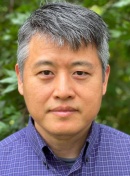
Binfeng Lu graduated from Tsinghua University in China with BS in Biological Sciences. He then obtained Ph.D. in immunology under his graduate advisor Dr. Paul Rothman at Columbia University. He continued with a postdoctoral research with Dr. Richard Flavell at Yale University. He started his independent lab at University of Pittsburgh in 2003 and was ultimately promoted to a full professor. He recently moved to Center for Innovation and Discovery as a member and director.
During his Ph.D. and postdoctoral training, he focused on the cytokine signaling in T cell-mediated immune responses during infection and autoimmunity. Since he started his independent lab at University of Pittsburgh in 2003, he has developed a distinctive research program aimed at understanding T cell signaling in the context of tumor immunity and designing new therapeutic approaches leveraging basic research findings. He has published many impactful papers demonstrating the role of many signaling molecules and transcription factors such as IFN-γR2, Stra13, Gadd45g, Gadd45b, and Eomes in type 1 immunity. In addition, Lu lab has also been interested in understanding how T cells respond to nutrient deprivation and made original contributions to the understanding of the role of autophagy and amino acid metabolism in T cell immunobiology. Besides investigating the basic mechanism of T cell immunobiology, Binfeng’s lab has been keen on understanding the role of signals in the tumor microenvironment in shaping tumor immune surveillance and tumor immune tolerance. In a series of impactful publications, Binfeng’s lab has established a crucial role of alarmin cytokines IL-33 and IL-36 in enhancing antitumor immune responses. His team also discovered a novel role of Tim-3 in establishing tumor immune tolerance through driving the function of Treg cells in the tumor tissues.
He has consistently produced high quality publications in solid journals such as Cancer Cell, Nature Immunology, Immunity, Journal of Experimental Medicine, Nature Communication, Cell Report, Cell Death and Differentiation, Cancer Immunology Research, Clinical Cancer Research, and the Journal of Immunology. He has also been invited to present his work in conferences and universities world-wide. In addition, Dr. Lu participates in grant review for scientific funding agencies such as NIH, DOD, MS society, American Cancer Society.
In summary, Binfeng has a strong track record of conducting innovative research in the field of T cell immunobiology and cancer immunology.
May 6th, 2022
Alejandro Villagra, Ph.D.
LCCC
“Reprogramming macrophages in health and disease”
Sponsor: Dr. Michael Atkins
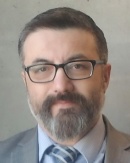
Dr Villagra’s areas of expertise are tumor immunology and epigenetics. During his scientific career, he has explored the role of epigenetic modifiers in the modulation of signaling pathways controlling the phenotype and function of immune and cancer cells. His study models have been diverse and have included multiple solid tumors and hematological malignancies. Overall, his current research areas are focused on the identification and characterization of the immunomodulatory roles of HDACs and other epigenetic modifiers in myeloid and lymphoid cells. A special emphasis in his research is to discover and evaluate new selective small-molecule inhibitors able to selectively control the activity of epigenetic modifiers in immune and cancer cells with the final goal of improving antitumor immune responses. His experimental approaches have essential translational components, including syngeneic animal and patient-derived xenograft models, which give him the possibility of extending his investigations into the clinical area. These particular characteristics allow his research to maintain continuous feedback and keep goals focused on the relevant biomedical aspects of my scientific endeavors. Additionally, he has received funding from diverse sources during his scientific career, including government (NIH), foundations (MRF), and private industry (multiple pharmaceuticals). Ongoing funding research includes a recently granted R01, National Science Foundation, and intramural funds.
April 29th, 2022
Ellen Puré, Ph.D.
University of Pennsylvania
“Implications of spatiotemporal heterogeneity of stromal cells and matrix remodeling for progression and treatment of solid tumors”
Sponsor: Dr. Marc Lippman

Ellen Puré, Ph.D. is Grace Lansing Lambert Professor and Chair of Biomedical Sciences and Professor of Systems Pharmacology and Translational Therapeutics at the University of Pennsylvania. Dr. Puré received her Baccalaureate degree from Washington University in St. Louis, and her doctorate at the University of Texas-Southwestern Medical School. She trained as a Damon Runyon-Walter Winchell Postdoctoral Fellow and Leukemia Society Special Fellow and then joined the Faculty at the Rockefeller University. In 1992 Dr. Puré moved to Philadelphia where she was on the Faculty of the Wistar Institute until moving to the University of Pennsylvania in 2013. Dr. Puré is an Associate Director of the Cancer Research Institute and serves on the editorial boards of the Journal of Clinical Investigation and Matrix Biology and is a Founding Senior Editor of Cancer Immunology Research. Dr. Puré’s research focuses on the cellular and molecular basis of inflammation and fibrosis. She studies basic mechanisms involved in these processes and the contribution of these processes to fibrotic diseases and cancer. Her laboratory has made seminal contributions to our understanding of the roles of stromal cells and extracellular matrix remodeling in tissue fibrosis and in cancer risk, initiation, progression and metastasis. Her lab is developing novel therapeutic approaches to target stroma to treat fibrosis and cancer.
In 2019, Dr. Puré was named a Fellow in the American Association for the Advancement of Science (AAAS).
April 22nd, 2022
Anita Kinney, Ph.D.
Rutgers University
“Approaching Precision Cancer Prevention and Treatment with an Equity Lens”
Sponsor: Dr. Marc Schwartz

Anita Y. Kinney, PhD, RN, FAAN, joined Rutgers University School of Public Health in 2018 as professor of Biostatistics and Epidemiology, and director, Center for Cancer Health Equity. Kinney also serves as the Associate Director for Cancer Health Equity and Engagement with the Rutgers Cancer Institute of New Jersey. She is an actively funded investigator in the area of cancer prevention and control for more than 25 years with a focus on behavioral, social and care delivery genetics research. Her research brings a combination of behavioral science, clinical, and epidemiologic perspectives to address unsolved cancer prevention and control problems in diverse populations and settings. In her role at the Rutgers Cancer Institute, Kinney seeks to advance cancer health equity in prevention and care delivery through community partnerships, outreach and a team science approach. Her vision is to develop and sustain strong community partnerships that work alongside cancer center faculty members’ efforts, and ensure that New Jersey’s most vulnerable people are integrated into population science, clinical and translational research efforts.
Since 1986, Kinney has authored or co-authored more than 150 peer-reviewed publications. She serves on a number of External Scientific Advisory Boards for major cancer centers across the country and is a member of the National Cancer Institute Cancer Care Delivery Steering Committee and a National Institutes of Health Study Section. She also is a Senior Editor for Cancer Epidemiology, Biomarkers and Prevention, is a fellow of the American Academy of Nursing, and serves on the Board of Trustees for the Society of Integrative Oncology.
Back to her home state of New Jersey after 30 years away, Kinney never misses a trip back the ski slopes of Utah. She also enjoys dancing, playing tennis, spending time with her family and her dog Scooter.
April 1st, 2022
David L, Ph.D.
LCCC
“A Public Health Model of a Menthol Cigarette Ban and Implications for a Flavor Ban on e-Cigarettes”
Sponsor: Dr. Christopher Loffredo
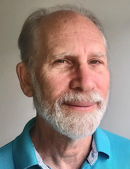
David Levy is a professor of oncology at Georgetown University in the Lombardi Comprehensive Cancer Center. He has published more than 300 papers in a variety of professional publications and more than 15,000 citations..
Much of this work involves modeling the effects of use behaviors, public policies and cost effectiveness analysis on substance abuse rates and related deaths, including on issues related to tobacco, alcohol control policy, obesity and traffic safety. Earlier in his career, he published on topics in the field of competition and industrial organization
Dr. Levy has been principal investigator of grants from the U.S. Centers for Disease Control and Prevention, the World Health Organization, the National Cancer Institute, the National Institute on Drug Abuse, the Bloomberg/Gates Foundation, the EU and the Robert Wood Johnson Foundation. Among his current grants and contracts, he is currently one of the principal investigators of an FDA/NIH Tobacco Center for Regulatory Science (TCORS), and NIH grants to the ITC on Modeling Tobacco Control policies in 6 countries and to NCI CISNET on modeling the impact of smoking and vaping on cancer deaths.
Dr. Levy currently oversees the design and development of the SimSmoke tobacco control policy simulation model. He has developed models for 20 U.S. states and more than 60 countries. He has also developed models incorporating smokeless tobacco and models incorporating e-cigarettes, and has developed a new simplified model (SAVM) to consider e-cigarette and smoking trends and implications.
March 18th, 2022
Crystal Mackall, M.D.
Stanford University
“CAR T cells for Solid Cancers: Charting a Path Forward”
Sponsor: Dr. Michael Atkins
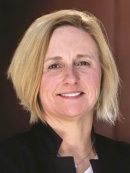
Crystal Mackall is the Ernest and Amelia Gallo Family Professor of Pediatrics and Medicine at Stanford University. She serves as Founding Director of the Stanford Center for Cancer Cell Therapy, Associate Director of Stanford Cancer Institute, Leader of the Cancer Immunology and Immunotherapy Program and Director of the Parker Institute for Cancer Immunotherapy at Stanford. During a 27 yr tenure at NCI culminating as Head of the Immunology Section and Chief of the Pediatric Oncology Branch, and now at Stanford, she has led an internationally recognized translational research program spanning basic tumor immunology, translational science and early clinical trials of immune based therapies for cancer. Her group was among the first to demonstrate impressive activity of CD19-CAR in pediatric leukemia (Lancet 2015), developed a novel, clinically active CD22-CAR that has been awarded Breakthrough Designation based upon impressive activity in leukemia and more recently in lymphoma (Nat Med 2018, J Clin Onc 2021, Blood 2022). Her group has identified T cell exhaustion as a major feature limiting the activity of CAR T cells (Nat Med 2015), and developed the first exhaustion resistance (Nature 2019) and exhaustion reversal platforms (Science 2021). Recently, her group demonstrated preclinical efficacy of CARs for pediatric diffuse intrinsic pontine glioma (Nat Med 2018) and impressive clinical activity of GD2-CAR T cells in this disease (Nature 2022). Her work has both advanced understanding of fundamental immunology and has translated this understanding for the treatment of human disease. She is the co-inventor on dozens of patents filed and pending and has founded three biotechnology companies focused on cellular immunotherapies (Lyell Immunopharma, Syncopation Life Sciences and Link Cell Therapies). She serves in numerous national leadership positions, including co-Leader of the NCI U54 Pediatric Immunotherapy Discovery and Development Network, and is the recipient of numerous awards, including the Richard V Smalley Award from the Society for Immunotherapy of Cancer, the AACR-St. Baldrick’s Award for Outstanding Achievement in Pediatric Cancer Research, and several NIH Director’s awards. She is a member of the American Society of Clinical Investigation and the American Academy of Physicians and is Board Certified in Pediatrics, Pediatric Hematology-Oncology and Internal Medicine.
March 11th, 2022
Daniel Belsky, Ph.D.
Columbia University
“Quantification of Biological Aging”
Sponsor: Dr. Jeanne Mandelblatt
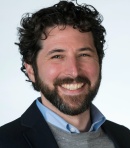
Dan Belsky is an assistant professor at the Butler Columbia Aging Center and Department of Epidemiology at the Columbia University Mailman School of Public Health. He was an Early-Career Fellow of the Jacobs Foundation and is a current Fellow of the Canadian Institute for Advanced Research (CIFAR) Child Brain Development Network and the University of Oslo PROMENTA Center. Dan works at the intersection of the social and behavioral sciences, genomics, and public health. His focus for the past several years has been on development and evaluation of methods to quantify the biological process of aging in young, mid-life, and older-adult humans and the application of these methods to study (1) how life-history and social factors contribute to individual differences in healthy aging; and (2) whether and how aging processes can be modified by intervention. With collaborators Terrie Moffitt and Avshalom Caspi he originated the Pace of Aging method to quantify the aging process from longitudinal analysis of human physiology and recently translated this method into a DNA-methylation blood test that can be implemented from a single time point of data collection. He is principal investigator of NIH-funded projects to generate multi-omics databases for the CALERIE randomized trial and the Dutch Hunger Winter Family Study to test how caloric restriction and early developmental insult may affect biological aging. His foundation- and Columbia-supported projects include investigations of how social determinants of health affect biological aging and the potential geroprotective effects of social policy interventions. Since 2020, he has been named an ISI highly-cited researcher.
March 4th, 2022
Alexander Gusev, Ph.D.
Dana Farber
“Harnessing off-target reads from thousands of sequenced tumors to identify germline- somatic interactions that influence patient outcomes”
Sponsor: Dr. Michael Atkins
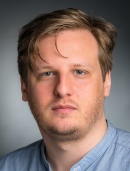
Dr. Gusev’s research is focused on developing statistical methods to understand the genetic architecture of cancer, uncover biological risk mechanisms, and identify clinically actionable treatment biomarkers. He has authored multiple papers focusing on the integration of cancer Genome-Wide Association Studies (GWAS) with population-scale gene expression and alternative splicing to identify susceptibility genes, including the development of methods to conduct transcriptome-wide association studies (TWAS; Gusev et al. 2016 Nature Genetics). His lab has lead the integration of large-scale germline and somatic sequencing data with clinical outcomes at Dana-Farber, to identify novel germline-somatic interactions and predictors of therapy response and toxicities.
February 25th, 2022
Elana Fertig, Ph.D.
Johns Hopkins
“Pattern detection for precision cancer immunotherapy from spatial profiling and single-cell data”
Sponsor: Dr. Michael Atkins
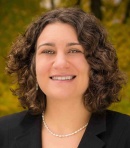
Dr. Fertig runs an NCI funded hybrid computational and experimental lab in the systems biology of cancer and therapeutic response. Her wet lab develops time course models of therapeutic resistance and performs single cell technology development. Her computational methods blend mathematical modeling and artificial intelligence to determine the biomarkers and molecular mechanisms of therapeutic resistance from multi-platform genomics data. These techniques have broad applicability beyond her resistance models, including notably to the analysis of clinical biospecimens, developmental biology, and neuroscience.
Dr. Fertig is an Associate Professor of Oncology and Director of the Division / Research Program in Quantitative Sciences, co-Director of the Convergence Institute, and Associate Director of Quantitative Sciences at the Sidney Kimmel Comprehensive Cancer Center at Johns Hopkins University Sidney Kimmel Comprehensive Cancer Center. She has secondary appointments in Biomedical Engineering and Applied Mathematics and Statistics, affiliations in the Institute of Computational Medicine, Center for Computational Genomics, Machine Learning, Mathematical Institute for Data Science, and the Center for Computational Biology and is a Daniel Nathans Scientific Innovator. Prior to entering the field of computational cancer biology, Dr Fertig was a NASA research fellow in numerical weather prediction. Dr. Fertig’s research is featured in over eighty peer-reviewed publications, R/Bioconductor packages, and competitive funding portfolio as PI and co-I. Notably, she led the team that won the HPN-DREAM8 algorithm to predict phospho-proteomic trajectories from therapeutic response in cancer cells. She serves on the editorial boards of the pre-eminent computational biology journals PLoS Computational Biology, Cell Systems, ImmunoInformatics, and as a study section member for the NCI Systems Biology, NCI Informatics Technology for Cancer Research, and Israel Cancer Research Fund Study Sections.
February 18th, 2022
Matthew Ellis, M.D., Ph.D.
Baylor
“Progress with Precision Oncology in Breast Cancer”
Sponsor: Dr. Marc Lippman
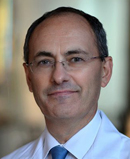
As the Director for the Lester and Sue Smith Breast Center Dr. Ellis coordinates an interdisciplinary team of oncologists, pathologists, epidemiologists, basic scientists and statisticians focused on improving our ability to prevent, detect and treat breast cancer. He brings to this position considerable experience in the oversight and execution of large projects and protocols of a collaborative nature on a nationwide basis. He has a strong background in molecular cell biology, molecular pharmacology, genomics and proteomics. He has been an active member of The Breast Cancer Intergroup of North America (TCBI) since 1998 (now NCTN) and is Co-Chair of the translational medicine committee for the NRG cooperative group. He was also Co-leader for The Cancer Genome Atlas (TCGA) Breast Project where he established collaborations with several Genome Centers on massive parallel sequencing of breast cancer (Nature 2010, 2012). He served as a Co-PI for the second phase Clinical Proteomic Tumor Analysis Consortium (CPTAC2) grant when he was at Washington University in St Louis. During CPTAC2 he established collaborative interactions with the Broad Institute that led to several publications on the proteogenomic analysis of breast cancer (Nature2016, Cell 2020 in press). He is also a U01 funded principal investigator in CPTAC3 where he continue to translate proteogenomic findings to improve the diagnosis and treatment of breast and other cancers. Finally, he is principal investigator of the Baylor College of Medicine Breast Cancer SPORE.
February 4th, 2022
Nina Kadan-Lottick, M.D.
LCCC
“Childhood Cancer Survivors across the Lifespan”
Sponsor: Dr. Kenneth Tercyak

Nina Kadan-Lottick, MD, MSPH, is a professor of oncology and pediatrics, member of the Georgetown Lombardi Comprehensive Cancer Center Cancer Prevention and Control Program, Director of the Survivorship Research Initiative, and Georgetown/Medstar PI of Children’s Oncology Group clinical trials. Dr. Kadan-Lottick is a pediatric hematologist-oncologist and research scientist who has focused her work on improving medical, cognitive, and psychosocial long-term outcomes in children, adolescents, and young adults with cancer across the lifespan. She is presently the PI of two randomized control trials funded by the National Cancer Institute Moonshot Initiative to improve physical activity and adherence to recommended surveillance for late complications of therapy in childhood, adolescent and young adult childhood cancer survivors. Dr. Kadan-Lottick is currently elected to the Children’s Oncology Group Executive Council and serves on the Survivorship Steering Committee and the Acute Lymphoblastic Leukemia Steering Committee. She is a co-author of the Children’s Oncology Group Long-Term Follow-up Guidelines and the International Harmonization of Long-Term Follow-up Guidelines.
January 28th, 2022
Ralph J. DeBerardins, M.D., Ph.D.
UT Southwestern
“Metabolic Reprogramming in Human Cancer”
Sponsor: Dr. Louis Weiner

Dr. Ralph DeBerardinis joined the faculty of UT Southwestern Medical Center in 2008 and joined the Children’s Medical Center Research Institute at UTSW (CRI) shortly after its founding in 2012. He is Chief of Pediatric Genetics and Metabolism at UTSW and Director of the Genetic and Metabolic Disease Program at CRI. Dr. DeBerardinis is a Howard Hughes Medical Institute Investigator and has received numerous awards including the William K. Bowes, Jr. Award in Medical Genetics, the National Cancer Institute’s Outstanding Investigator Award, The Academy of Medicine, Engineering & Science of Texas’s Edith and Peter O’Donnell Award in Medicine, and the Paul Marks Prize for Cancer Research from Memorial Sloan Kettering Cancer Center. He has been elected to the National Academy of Medicine and the Association of American Physicians.
Dr. DeBerardinis’ laboratory studies the role of altered metabolic pathways in human diseases, including cancer and pediatric inborn errors of metabolism. The lab has pioneered the use of metabolomics and isotope tracing to characterize disease-associated metabolic states directly in patients, and to use disease-relevant model systems to explore how metabolic perturbations contributes to tissue dysfunction. Work from the DeBerardinis laboratory has produced new insights into disease mechanisms in numerous metabolic diseases, including by defining unexpected fuel preferences in human cancer and uncovering new metabolic vulnerabilities in cancer cells.
Dr. DeBerardinis received a Bachelor of Science in Biology from St. Joseph’s University in Philadelphia before earning M.D. and Ph.D. degrees from the University of Pennsylvania’s School of Medicine. He completed his post-graduate clinical training at The Children’s Hospital of Philadelphia (CHOP) in Pediatrics, Medical Genetics and Clinical Biochemical Genetics. Before coming to UT Southwestern, he performed postdoctoral research at the Penn Cancer Center.
January 21st, 2022
David J. Robbins, Ph.D.
LCCC
“Targeting colorectal cancer with Wnt inhibitors”
Sponsor: Dr. Louis Weiner
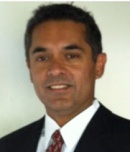
Dr. Robbins’ graduate work was performed in the Department of Pharmacology at UT-Southwestern medical school, with Dr. Melanie Cobb. During this time his work focused on the role MAP kinases play in growth regulation, eventually identifying these kinases as effectors of the Ras family of oncogenes. He then moved to UCSF to work with the Nobelist Dr. J. Michael Bishop on the emerging role of developmental signaling pathways in cancer biology. This work developed into a research program focused on elucidating the signaling pathway of the morphogen Hedgehog (Hh). This new focus, combined his expertise in biochemistry and his new interest in genetics, resulted in the discovery of a new paradigm in signal transduction in which a molecular motor regulates a signaling pathway. He was awarded a Burroughs-Welcome Foundation Career Development Award in recognition of this work. Currently, his lab is focused on elucidating the role Sonic Hedgehog and Wnt signaling networks play in cancer, as they affect the mortality and morbidity of a large number of people diagnosed with this most deadly of diseases. His laboratory is focused on understanding the role Wnt signaling plays in colorectal cancer and the role Sonic Hedgehog signaling plays in medulloblastoma, identifying rate limiting components in these networks and trying to drug them. He has been an independent investigator for over 20 years and has published one-hundred and seventeen manuscripts on various aspects of cancer related signaling pathways. He has served as PI on numerous NIH and foundation grants, successfully renewing many of them. He also has a track record as a collaborator- serving as Co-Investigator or significant personnel on more team-based approaches. He is currently a Professor (pending) in the Department of Oncology and serves as a Co-leader of the Molecular and Translational Oncology Program in the Lombardi Comprehensive Cancer Center.
December 17th, 2021
Kornelia Polyak, M.D.
Harvard
“Breast Tumor Evolution”
Sponsors: Dr. Joyce Slingerland, Dr. Marc Lippman
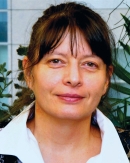
Kornelia Polyak, MD, PhD, is a Professor of Medicine at Dana-Farber Cancer Institute, Harvard Medical School and is an internationally recognized leader of the breast cancer research field. Dr. Polyak’s laboratory is dedicated to the molecular analysis of human breast cancer with the goal improving the clinical management of breast cancer patients. Her lab has devoted much effort to develop new ways to study tumors as a whole and to apply interdisciplinary approaches. Using these methods Dr. Polyak’s lab has been at the forefront of studies analyzing purified cell populations from normal and neoplastic human breast tissue at genomic scale and in situ at single cell level and to apply mathematical and ecological models for the better understanding of breast tumor evolution. She has also been successful with the clinical translation of her findings including the testing of efficacy of JAK2 and BET bromodomain inhibitors for the treatment of triple-negative breast cancer in clinical trials. Dr. Polyak have received numerous awards including the Paul Marks Prize for Cancer Research in 2011, the 2012 AACR Outstanding Investigator Award for Breast Cancer Research, and the Rosalind Franklin Award in 2016. She was elected as a Fellow to the AAAS in 2019 and to the AACR Academy of Fellows in 2020. She is also a 2015 recipient of the NCI Outstanding Investigator award and is a recipient of the 2020 Distinguished Alumna Award from Weil-Cornell.
December 10th, 2021
Richard Kriwacki, Ph.D.
St Jude
“Roles of phase separation in biology and disease”
Sponsor: Dr. Jeffrey Toretsky

Richard William Kriwacki obtained a B.S. degree in Chemistry and M.S. degree in Pharmaceutical Sciences/Medicinal Chemistry from the University of Connecticut. Following this, he worked as an NMR spectroscopist at Boehringer Ingelheim Pharmaceuticals in Ridgefield, Connecticut. During the latter years of this employment, he concurrently was appointed as a Research Affiliate in the Chemistry Department at Yale University in the laboratory of Professor James Prestegard; the research area was protein NMR spectroscopy. This experience inspired Mr. Kriwacki to enter the graduate program in Chemistry/Biophysics at Yale, completing his Ph. D. degree in 1993. His Ph. D. studies addressed the structure and function of the transcription factor, Sp1. He then performed postdoctoral studies with Dr. Peter E. Wright at the Scripps Research Institute (1994-1997) addressing proteins in the p53 tumor suppressor pathway. During these studies, he discovered that the p53-regulated cell cycle inhibitor, p21, was a disordered protein that folded upon binding to cyclin-dependent kinase/cyclin complexes, inhibiting cell division. These findings introduced the concept of functional, intrinsically disordered proteins (IDPs) and paved the way for Dr. Kriwacki’s future studies. In fall, 1997, he joined the Structural Biology Department at St. Jude. Since then, he has studied the roles of IDPs in diverse biological processes and disease, and more recently, in liquid-liquid phase separation associated with nucleolar function and aberrant transcription driven by fusion oncoproteins.
December 3rd, 2021
Katherine Crew, MD
Columbia University
“Addressing Barriers to Breast Cancer Chemoprevention: Opportunities for Implementation into Clinical Practice”
Sponsor: Dr. Kenneth Tercyak

Dr. Katherine Crew is Associate Professor of Medicine and Epidemiology at Columbia University Irving Medical Center and Director of the Clinical Breast Cancer Prevention Program for the Herbert Irving Comprehensive Cancer Center. She did all of her medical training at Columbia University and currently works as a medical oncologist in the Division of Hematology and Oncology with expertise in breast cancer. She is also a physician-scientist with funding from the National Cancer Institute, American Cancer Society, and the American Society of Clinical Oncology. Dr. Crew is conducting research on breast cancer chemoprevention among high-risk women and identifying modifiable risk biomarkers, which can predict breast cancer risk and response to chemopreventive agents. She has been the PI or co-investigator of several early phase breast cancer chemoprevention trials, including a multicenter randomized controlled trial of high-dose vitamin D in premenopausal women at high-risk for breast cancer, SWOG 0812, with change in mammographic density as the primary outcome. She currently leads two multi-PI R01 grants to increase breast cancer chemoprevention using health information technology, including SWOG 1904, Making Informed Choices On Incorporating Chemoprevention into Care (MiCHOICE). She currently serves as Executive Officer for the SWOG Prevention, Survivorship, and Palliative Care Committees, Chair of the NCI Cancer Prevention and Control Central IRB, and a standing member of the NCI Cancer Prevention Study Section.
November 12th, 2021
Caryn Lerman, PhD
University of Southern California
“Precision Therapy for Nicotine Dependence”
Sponsor: Dr. Marc Schwartz
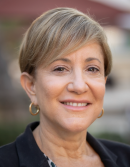
Dr. Caryn Lerman is the Director of the USC Norris Comprehensive Cancer Center, Associate Dean for Cancer Programs, and the H. Leslie and Elaine S. Hoffman Cancer Research Chair at the Keck School of Medicine of USC. She is recognized for her cancer prevention research that bridges the fields of neuroscience, genomics, pharmacology, and population science. A major unifying focus of her research is biology-driven science to reduce cancer risk behaviors. This work has spawned novel lines of investigation, including: the behavioral epidemiology of cancer genetic susceptibility testing; pharmacogenomic approaches to tobacco dependence leading to the first prospective stratified pharmacogenomic trial in this area; and neuroscience-based interventions to reduce tobacco dependence.
An elected member of the National Academy of Medicine, Dr. Lerman has served as a member of the NCI Board of Scientific Advisors, the National Human Genome Research Advisory Council, and the National Institutes on Drug Abuse Advisory Council. She is the current President of the Association of American Cancer Institutes and a past president of the Society for Research on Nicotine and Tobacco. Additional awards and honors include the American Cancer Society Cancer Control Award, the American Society of Preventive Oncology Joseph Cullen Award, the Alton Ochsner Award Relating Smoking and Health, the NIH Matilda White Riley Award, and the Los Angeles Business Journal award for Women Leaders in Healthcare.
Prior to her appointment as Director of the USC Norris Comprehensive Cancer Center, Associate Dean for Cancer Programs, and H. Leslie and Elaine S. Hoffman Cancer Research Chair at USC’s Keck School of Medicine, Dr. Lerman served as Senior Deputy Director of the Abramson Cancer Center and Vice Dean for Strategic Initiatives in the Perelman School of Medicine at the University of Pennsylvania.
October 29th, 2021
Jeffrey Rathmell, PhD
Vanderbilt
“Fueling T cells: Immunometabolic Checkpoints in Cancer and Inflammation”
Sponsor: Dr. Michael Atkins

Dr. Rathmell studies mechanisms that regulate lymphocyte fate and differentiation in inflammatory diseases and cancer. He has an interdisciplinary research program with a focus on genetic and biochemical approaches to discover mechanisms of immunometabolism that drive or influence immune-related diseases. Following a PhD in Immunology at Stanford University and postdoctoral studies at the University of Pennsylvania, his work as faculty at Duke University and Vanderbilt University showed that the metabolism of lymphocytes was dynamically regulated, and that each T cell subset adopts a specific metabolic program that can be targeted to modulate cell function and fate. He joined Vanderbilt in 2015 to direct the Vanderbilt Center for Immunobiology and is Leader for the Vanderbilt Ingram Cancer Center Program in Host-Tumor Interactions. His awards include Scholar of the Leukemia & Lymphoma Society, Bernard Osher Fellow of the American Asthma Foundation, and William Paul Distinguished Innovator of the Lupus Research Alliance.
October 22nd, 2021
Charles Perou, PhD
University of North California
“Quantitative Medicine for Breast Cancer Patients”
Sponsor: Dr. Marc Lippman and Dr. Joyce Slingerland
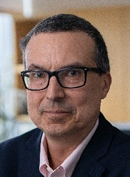
Breast cancer is a prevalent disease with known clinical and molecular diversity. To address these challenges, Dr Perou’s research uses a multidisciplinary approach based upon genomics, genetics, cancer biology, bioinformatics, epidemiology, and clinical research to improve the outcomes of cancer patients. A major contribution of his work has been the discovery of the intrinsic subtypes of breast cancer. He demonstrated that breast cancers can be divided into at least five molecular subtypes using the “PAM50” assay, with his lab focusing experimental attention on the Basal-like subtype, which represents >80% of Triple Negative Breast Cancers. His team has discovered many of the genetic causes of each molecular subtype, modeled these events in Mouse Models, and then used these models to investigate tumor biology, immune system interactions, and the efficacy of novel drug combinations. They have also translated these molecular finding into the human population using a North Carolina population-based study (i.e. Carolina Breast Cancer Study), where they found that African Americans were diagnosed with Basal-like Breast Cancers approximately twice as often as those of European decent. These studies have provided insights into the causes of the racial outcomes disparities differences seen in the USA.
He has authored more than 450 peer-reviewed articles, and has been named an inventor on multiple USA and European patents. He is currently the Co-Director of the Computational Medicine Program, Faculty Director of the Lineberger Comprehensive Cancer Center (LCCC) Bioinformatics Group, and Co-Leader of the LCCC Breast Cancer Research Program at UNC. He is also a member of the ALLIANCE Breast Committee, and Executive Steering Committee Member of the Translational Breast Cancer Research Consortium (TBCRC). He has co-founded 3 biotechnology companies (Bioclassifier, GeneCentric Therapeutics, and Reveal Genomics), all of which are focused on using genomic assays to make improvements for personalized patient care.
His training history includes a Bachelor’s degree in Biology from Bates College, a PhD in Experimental Pathology from the University of Utah, and postdoctoral work in the laboratory of David Botstein (then at Stanford University). He has won a number of awards including the AACR Outstanding Investigator Award for Breast Cancer Research, the Danaher Scientific and Medical Award, the European Institute of Oncology Breast Cancer Therapy Award, the Jill Rose Award for Distinguished Biomedical Research from BCRF, the Brinker Award for Scientific Distinction from Komen, and the Distinguished Scientist Award from the Association of American Cancer Institutes. Lastly, he has been named a Thomson Reuters Most Highly Cited Researcher in 2014-20, where his work has received more than 200,000 total citations according to Google Scholar.
October 15th, 2021
Rachel Rosenstein, MD, PhD
Hackensack
“Pathogenesis of sclerotic chronic graft-versus-host disease.”
Sponsor: Dr. Michael Atkins
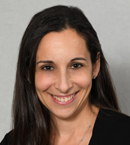
Rachel K. Rosenstein, MD, PhD, is an Assistant Professor of Internal Medicine, in the Dermatology Division, at Hackensack Meridian School of Medicine’s Center for Discovery and Innovation, with a clinical and research interest in oncodermatology, investigating and treating the cutaneous concerns of oncology patients.
She is a graduate of Princeton University, where she majored in Molecular Biology. She completed a PhD in Immunobiology at Yale School of Medicine in the laboratory of Dr. Ruslan Medzhitov and an MD in 2013, cum laude, receiving the MD/PhD Thesis Prize for her work examining innate immune sensing of allergens. She completed an internship in Internal Medicine at the Icahn School of Medicine at Mount Sinai and Dermatology residency at NYU Langone Medical Center. She pursued a clinical and translational research fellowship at the National Institute of Arthritis and Musculoskeletal and Skin Diseases where she developed an interest in cutaneous graft-versus-host disease after allogeneic hematopoietic stem cell transplantation and cutaneous immune-related adverse events from checkpoint inhibitors.
October 1st, 2021
Yi Zhang, MD, PhD
Hackensack CDI
“Alloimmunity, anti-tumor effects, dendritic cells and epigenetic regulation”
Sponsor: Dr. David Perlin
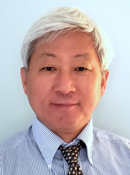
Dr. Yi Zhang is a director, member scientist at Center for Discovery and Innovation (CDI), Hackensack Meridian School of Medicine. Dr. Zhang was awarded his MD and PhD degree from The University of Tokyo (Japan, 1998) and completed his postdoctoral training at The University of Pennsylvania (2003). Dr. Zhang was a professor with tenure at Temple University and very recently joined CDI from September 1, 2021.
Dr. Zhang has long-term interest in understanding of pathophysiology of graft-versus-host disease (GVHD) in the setting of allogeneic hematopoietic stem cell transplantation (allo-HSCT), and epigenetic regulation of alloimmunity and tumor immunity. Specifically, Dr. Zhang has discovered the importance of dendritic cells (DCs) and DC expressing the Notch ligand delta-like ligand 4 (Dll4) in the regulation of alloreactive T cell responses and GVHD. Dr. Zhang also introduced the concept of alloantigen-sensitized stem cell memory T cells (TSCM) in sustaining alloreactive T cell responses and GVHD (Nat Med 2005). This concept of TSCM stimulates many other groups to develop novel strategies for improving the efficacy of cancer immunotherapy, including CAR-T cell therapy. Building on these studies, Dr. Zhang has developed a research program to investigate the epigenetic mechanisms that control the generation, maintenance and function of antigen-driven T cells. For example, Dr. Zhang identified that inhibition of T cell Ezh2, which catalyzes histone H3 lysine 27 trimethylation, reduces GVHD in mice undergoing allo-HSCT. His studies also illuminate the crucial role of Ezh2 in regulating memory T cells and their anti-tumor immunity. Dr. Zhang’s laboratory has made a continuous stream of novel fundamental contributions in GVHD and T cell tumor immunity. Currently, Zhang and his colleagues are developing novel and clinically relevant approaches to modulate alloimmunity and to improve the efficacy of cancer immunotherapy, including: 1) establishment a cellular therapy strategy to program donor T cells that preserve potent anti-leukemia activity without causing severe GVHD using both DLL4+ DCs and plasmacytoid DCs; 2) development of a new approach of destabilizing T cell Ezh2 protein using pharmacological inhibitors to modulate alloimmunity; and 3) discovery of novel epigenetic drugs (e.g., targeting CDK9, CDK7, DOT1L and DNMTs, etc.) that can reduce tumor resistance to CAR-T cell therapy to improve the efficacy of immunotherapy for solid tumor.
September 24th, 2021
John Groopman, PhD
Hopkins
“Transitions of the Etiology of Human Liver Cancer: 3rd Leading Cause of Cancer Death in 2021”
Sponsor: Dr. Christopher Loffredo
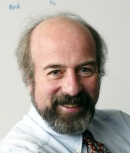
Dr. John Groopman is the Edyth H. Schoenrich Professor of Preventive Medicine at the Johns Hopkins Bloomberg School of Public Health and the Associate Director for Population Sciences at the Sidney Kimmel Comprehensive Cancer Center in the School of Medicine. He received his Ph.D. degree from the Massachusetts Institute of Technology and was also a post-doctoral fellow at MIT. He received further training as a staff fellow at the National Cancer Institute in the Laboratory of Human Carcinogenesis. Prior to coming to Johns Hopkins in 1989, Dr. Groopman was the Associate Dean at the Boston University School of Public Health. Dr. Groopman’s main research interests involve the development and application of molecular biomarkers of exposure, dose and effect from environmental carcinogens. The environmental carcinogens studied include agents that are naturally occurring in the diet. A major emphasis of the research has been in the elucidation of the role of aflatoxins, a common contaminate of the food supply, in the induction of liver cancer in high-risk populations living in Asia and Africa. This work has led to the identification of a very strong chemical-viral interaction between aflatoxin and the human hepatitis B virus in the induction of liver cancer. These biomarkers have also been used in many collaborative molecular epidemiology studies of liver cancer risk and recently employed to assess the efficacy of a number of chemopreventive agents in trials in high-risk aflatoxin-hepatitis B virus exposed populations. This research is now being extended to develop genetic biomarkers of p53 mutations in human samples as early detection of disease biomarkers using a novel mass spectroscopy-based method for genotyping developed in the laboratory. The most cited research publication from this research was the finding from a prospective cohort of over 18,000 people in Shanghai that established for the first time a viral-chemical interaction essential to the etiology of liver cancer, a leading cause of cancer death in the world. This work has led to the collaborative chemoprevention trials in China. Collectively, Dr. Groopman’s expertise involves the biological consequences of exposures to mycotoxins and other environmental contaminates on human health. Thus, the research in our laboratory, resulting in over 320 peer-reviewed publications and chapters, focuses on the translation of mechanistic research to public health-based prevention strategies. Dr. Groopman also served as a member of the National Advisory Council for the NIEHS and numerous other committees at the national and international level. Thus, Dr. Groopman has a long-standing record of commitment to interdisciplinary and translational research in oncology and public health. Finally, in recognition of his contributions to cancer prevention efforts, Dr. Groopman was the recipient of the 2010 American Association for Cancer Research – Prevent Cancer Foundation Award for Excellence in Cancer Prevention Research and the gave the Ronald Herberman Memorial Lecture for National Cancer Prevention Day in 2016. In 2021, Dr. Groopman was appointed to the National Academies of Sciences, Engineering, and Medicine – Committee on Toxicology for a three-year term.
September 17th, 2021
Daniel Hertz, PharmD, Ph.D.
University of Michigan
“Efforts Towards Universal Implementation of DYPD Testing”
Sponsor: Dr. Sandra Swain
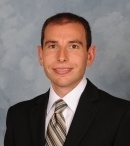
Dr. Hertz is an assistant professor in the Department of Clinical Pharmacy at the University of Michigan College of Pharmacy. Dr. Hertz received his PharmD from Rutgers University and PhD from University of North Carolina for his dissertation research on pharmacogenetic predictors of taxane-induced neuropathy. Dr. Hertz’s current research is interested in developing tools for individualizing treatment in patients with cancer and translating them into clinical practice. He has particular interests in optimal dosing of paclitaxel and using DPYD genotype to optimize fluoropyrimidine chemotherapy. Dr. Hertz has several other ongoing projects to discover and translate genetic variants that affect cancer treatment outcomes, in collaborations with medical oncologists at the University of Michigan Rogel Cancer Center and within SWOG.
September 10th, 2021
Nagi Ayad, Ph.D.
Lombardi Comprehensive Cancer Center
“Defining Efficacy and Resistance Mechanisms of Brain Cancer”
Sponsor: Dr. Louis Weiner
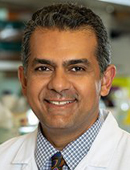
Nagi G. Ayad, Ph.D. is a Professor (pending) in the Department of Oncology of the Lombardi Comprehensive Cancer Center at Georgetown University Medical Center. Dr. Ayad received his undergraduate degree from Rutgers University in 1992, worked for Merck & Co., Inc. as a biochemist and then pursued graduate studies with Dr. Ira Mellman at Yale University. Dr. Ayad completed his Ph.D. in Cell Biology in 1998 and moved to Harvard Medical School in 1999 to perform a postdoctoral fellowship with Dr. Marc Kirschner. Dr. Ayad then joined The Scripps Research Institute in Jupiter, Florida as an Assistant Professor in 2005 and moved to the University of Miami as an Associate Professor in 2011. Dr. Ayad’s research has focused on elucidating novel cell cycle pathways. His graduate studies identified a novel means through which endocytosis is inhibited during mitosis, while his postdoctoral studies identified two novel cell cycle regulators, Tome-1 and sororin. His work in his own laboratory has utilized high-throughput screens to identify regulators of cell cycle transitions, cancer, and neurite outgrowth. These regulators include Wee1, Casein Kinase 1, the Anaphase Promoting Complex (APC/C), and BRD4. His laboratory focuses on identifying therapeutic combinations for medulloblastoma and glioblastoma.
May 7th, 2021
Ligia Pinto, Ph.D.
FNLCR, NIH
“Immunogenicity of HPV vaccines: What have we learned and where are we going?”
Sponsors: Mary Beth Fargo, Dr. Robert Beckman
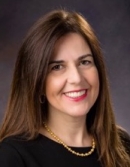
Dr. Ligia Pinto is the Director of the Vaccine, Immunity and Cancer Directorate at the Frederick National Laboratory, which includes the Serology Laboratory and the Cancer Immunoprevention Laboratory. Dr. Pinto received her PhD from the University of Lisbon in Portugal in 1995, after several years of research on cellular immunology of HIV infection at the Experimental Immunology Branch, NIH. She continued her postdoctoral studies at NIH where she focused on investigating immunological alterations induced by HIV, HIV vaccine candidates and host protective immune responses controlling HIV replication and associated pathogenesis. In 2001, she joined the Frederick National Laboratory to establish the HPV Immunology Laboratory. The work from her Laboratory has played a critical role in the understanding of the systemic and mucosal immune responses induced by the licensed HPV vaccines in clinical trials and promoted the development of an International HPV Serology Standardization Initiative. The work done by her Lab gave rise to the establishment of two additional FNL-based laboratories: The HPV Serology Laboratory and the Cancer Immunoprevention Laboratory. The HPV Serology Laboratory was established on 2017, to lead an international standardization initiative on HPV serology, sponsored by NCI and The Bill & Melinda Gates Foundation. The Cancer Immunoprevention Laboratory evaluates and develops new immunoprevention strategies in animal models and novel assays for biomarker research. In March 2020, Dr. Pinto’s Serology Lab started working in the area of SARS-CoV-2 serology, production of standards, and evaluation of commercial serology tests in collaboration with several government agencies including FDA. In addition, she is the FNL Lead for a newly formed network funded by NCI, the Serological Sciences Network. Taken together, Dr. Pinto and her team have had a long history of research excellence at the Frederick National Laboratory and the NIH in the area of immunology of infectious diseases and vaccines for the last 30 years, with over 130 peer-reviewed publications and distinguished awards.
April 30th, 2021
Arlene Sharpe, M.D., Ph.D.
Harvard
“Multifaceted Functions of the PD-1 Pathway”
Sponsor: Dr. Michael Atkins
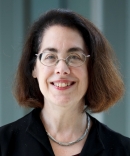
Arlene Sharpe, MD, PhD is the George Fabyan Professor of Comparative Pathology and Chair of the Department of Immunology at Harvard Medical School. She is a member of the Department of Pathology at Brigham and Women’s Hospital, a Member at the Broad Institute of MIT and Harvard, Leader of the Cancer Immunology Program at the Dana-Farber/Harvard Cancer Center, and Co-Director of the Evergrande Center for Immunologic Diseases at Harvard Medical School and Brigham and Women’s Hospital. She is also the Co-Leader of MassCPR (Massachusetts Consortium on Pathogen Readiness) established in March 2020 by Harvard Medical School to respond to the SARS-CoV-2 pandemic and prepare for emerging pathogens of the future.
Dr. Sharpe earned her MD and PhD degrees from Harvard Medical School and completed her residency in Pathology at Brigham and Women’s Hospital. Dr. Sharpe is a leader in the field of T cell costimulation. Her laboratory has discovered and elucidated the functions of T cell costimulatory pathways, including the immunoinhibitory functions of the CTLA-4 and PD-1 pathways, which have become exceptionally promising targets for cancer immunotherapy. Her laboratory currently focuses on the roles of T cell costimulatory pathways in regulating T cell tolerance, effective antimicrobial and antitumor immunity, and translating fundamental understanding of T cell costimulation into new therapies for autoimmune diseases and cancer.
Dr. Sharpe has published over 300 papers and was listed by Thomas Reuters as one of the most Highly Cited Researchers (top 1%) in 2014-2018 and a 2016 Citation Laureate. She received the William B. Coley Award for Distinguished Research in Tumor immunology in 2014, the Warren Alpert Foundation Prize in 2017 for her contributions to the discovery of PD-1 pathway, and the SITC Smalley Award in 2020. Dr. Sharpe is an elected member of the National Academy of Sciences and National Academy of Medicine. She is also a Fellow of the American Association for Cancer Research and the National Academy of Inventors.
April 23rd, 2021
Douglas Kojetin, Ph.D.
Scripps Research, FL
“Nuclear Receptor Function Made Crystal Clear with NMR Spectroscopy”
Sponsor: Dr. Rebecca Riggins
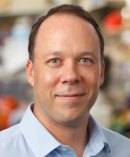
Doug Kojetin is an Associate Professor in the Department of Integrative Structural and Computational Biology at Scripps Research in Jupiter, Florida. In 2000, Doug obtained a B.S. in Chemistry from Purdue University. In 2005, Doug earned a Ph.D. in Biochemistry from North Carolina State University in Prof. John Cavanagh’s lab where he initiated his training in biomolecular NMR spectroscopy, structural biology, and biophysics. Doug completed two postdoctoral research positions—obtaining additional training in biomolecular NMR spectroscopy at the University of Cincinnati College of Medicine with Prof. Mark Rance, and training in molecular and cellular pharmacological methods applied towards nuclear receptors at Scripps Research in Jupiter, Florida with Prof. Thomas Burris. In 2010, Doug began his independent research lab at Scripps Research as an Assistant Professor, and in 2014 he was promoted to Associate Professor. The goal of Doug’s research is to understand how the function of nuclear receptor transcription factors is regulated on the structural and molecular level, including the influence of small molecule ligands—natural/endogenous ligands, synthetic ligands, and FDA-approved drugs that are used clinically. His lab integrates biomolecular NMR spectroscopy as a main structural biology technique with a variety of structural, computational, biophysical, and functional approaches to connect molecular and structural findings on nuclear receptors to cellular functions.
April 16th, 2021
Joan Massagué, Ph.D.
Sloan Kettering
“Metastasis Initiating Cells and Ecosystems”
Sponsor: Dr. Marc Lippman
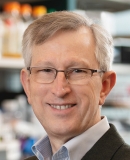
Joan Massagué is Director of the Sloan Kettering Institute (SKI) since 2014. His PhD degree in Biochemistry is from the University of Barcelona. He joined the University of Massachusetts Medical School in 1980. He was appointed Chair of the Cell Biology Program at SKI in 1989 and of the Cancer Biology Program in 2003. He was HHMI Investigator (1980-2013) and currently serves as HHMI Scientific Advisor. Dr. Massagué works on cell phenotype regulation and cancer metastasis. He identified the TGF-β receptors and signal transduction pathway, and defined how this pathway regulates development and regeneration, and how its malfunctions cause fibrosis and cancer. Building on this work, Massagué dissected the mechanistic basis for metastasis, opening avenues for new treatments of cancer. He is a member of the U.S. National Academy of Sciences, National Academy of Medicine, American Academy of Arts and Sciences, and European Molecular Biology Organization.
March 26th, 2021
Thomas Edwards, Ph.D. and Jana Ognjenović, Ph.D.
FNLCR
“National Cryo-EM Program: An Overview”
Sponsors: Mary Beth Fargo and Dr. Robert Beckman
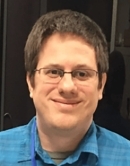
Thomas Edwards earned a BS in chemistry and BA in history at Michigan State University. At Purdue University he earned his Ph.D. in Molecular Virology studying under Dr. Richard Kuhn where he explored problems in alphavirus and flavivirus assembly, in particular, focusing on structural studies of intra-cellular virus-induced membrane structures. It was during these studies where learned techniques in cryo-electron microscopy and tomography. Thomas came to the National Cryo-EM Facility as an electron microscopist in 2017 and has been recently promoted to Senior Microscopist in 2021.
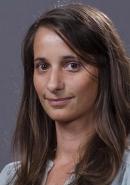
Dr. Jana Ognjenović received her Ph.D. in Biochemistry from the University of Belgrade, Serbia. She then completed postdoctoral training in the lab of Miljan Simonović at the University of Illinois at Chicago, where she studied the structure and function of aminoacyl-tRNA synthetases using X-ray crystallography. Subsequently, Dr. Ognjenović joined the group of Sriram Subramaniam at the National Cancer Institute, where she used cryo-electron microscopy for high-resolution structure determination of various protein complexes.
Dr. Ognjenović is currently head of the Advance Cryo-EM Technology group at the Frederick National Laboratory for Cancer Research. Her team explores emerging platforms and develops methodologies for both single-particle analysis and cryo-electron tomography, with an emphasis on pursuits that have the potential to make cryo-EM a more widely accessible technique. Her group’s research interests include signal transduction and the regulation of gene expression, with the goal of using high-resolution cryo-EM structures to gain mechanistic insights and to inform drug design efforts against intractable targets.
March 19th, 2021
Sreejith Nair, Ph.D.
UCSD
“Gene control by non-coding genomic elements in development and diseases states”
Sponsor: Dr. Jeffrey Toretsky
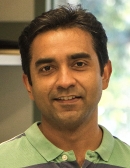
Sreejith Nair is an Assistant Research Scientist in the Department of Medicine, University of California San Diego. His research focuses on the role of non-coding genome in gene regulation and genome organization. He employs multidisciplinary approaches to study the role of non-coding genome and nuclear organization in disease, development and homeostasis. He will join LCCC as tenure line assistant professor in the Department of Oncology and BMCB in the Summer of 2021.
March 12th, 2021
Olivier Delattre, M.D.
Institut Curie, Paris
“Interplay of genetic and non-genetic mechanisms of tumor progression in Ewing sarcoma”
Sponsor: Dr. Aykut Uren
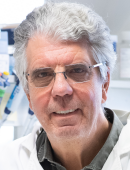
Olivier Delattre, MD, PhD was trained in pediatric oncology and in genetics. His research area mainly investigates the genetic and biology of pediatric cancers. In particular, his laboratory has identified the genetic alterations of a variety of childhood cancers including the EWS-FLI1 rearrangement in Ewing sarcoma, the SMARCB1 inactivation in rhabdoid tumors, the ALK activation mutation in neuroblastoma and the BCOR-CCNB1 fusion in Ewing-like sarcoma. He has also contributed identifying major tumor predisposing mutations or genetic susceptibility factors in neurofibromatosis type II, rhabdoid syndrome predisposition, neuroblastoma and Ewing sarcoma. His lab has also strong interest in deciphering the cellular origin of pediatric cancers and particularly Ewing sarcoma, neuroblastoma and rhabdoid tumors. Globally, the interests of his lab is to further understand the interplay between the genetic abnormalities and the specific background of the cell-of-origin. Olivier Delattre is a member of EMBO since 2011 and of Academia Europea since 2012. He received numerous awards including the Eurocancer award in 2007, Charles Oberlin award in 2009, the Leopold Griffuel award in 2016.
Olivier Delattre is Director of the Cancer Biology and Genetics department Inserm U830 and Director of the SIREDO center, a pediatric center of international stature that was created in 2017 at Institut Curie. SIREDO (French for Care, Innovation and research for children, adolescents and young adults with cancer) gathers researchers and physicians in the oncopaediatrics, adolescent and young adult fields to bring new medications to patients as quickly as possible.
March 5th, 2021
William Muller, Ph.D.
McGill
“Oncogene-mediated Signal transduction in transgenic mouse models of human breast cancer”
Sponsor: Dr. Rebecca Riggins

Dr. Muller’s laboratory focuses on the area of mouse models of breast cancer progression. The progression of the primary mammary epithelial cell to malignant phenotype involves multiple genetic events including the activation of dominant activating oncogenes and inactivation of specific tumour suppressor genes. Dr. Muller’s laboratory focuses on the role of a class of receptor tyrosine kinases known as the epidermal growth factor receptor (EGFR) family in the induction of breast cancer. Elevated expression of the various EGFR family members has been observed in a large proportion of sporadic breast cancers and their derived cell lines. For example, amplification and over-expression of erbB-2/neu proto-oncogene is observed in 20-30% human breast cancer and is inversely correlated with the survival of the patient.
The major focus of Dr. Muller’s team is to determine the relative contribution of the various EGFR family members and their coupled signaling pathways in ErbB-2 induced mammary tumour progression. Given the fact that germline inactivation of these signaling pathways results in either embryonic or perinatal lethality, they have used use the Cre/Lox recombination system to specifically inactivate each of these signaling molecules members in the mammary epithelium of mice expressing activated erbB-2.
The results of these biochemical and genetic analyses will provide important insight in molecular basis for erbB-2 induced tumorigenesis and metastasis.
February 26th, 2021
Rick Kittles, Ph.D.
City of Hope
“Leveraging Genetic Ancestry to Study Health Disparities”
Sponsor: Dr. Lucile Adams-Campbell

Rick Kittles, Ph.D., is Professor and founding director of the Division of Health Equities within the Department of Population Sciences at the City of Hope (COH). He is also Associate Director of Health Equities of COH Comprehensive Cancer Center. Dr. Kittles is well known for his research of prostate cancer and health disparities among African Americans. Dr. Kittles’ research has focused on understanding the complex issues surrounding race, genetic ancestry, and health disparities. Dr. Kittles received a Ph.D. in Biological Sciences from George Washington University in 1998. His first faculty appointment was at Howard University where he helped establish the National Human Genome Center at Howard University.
Over the last twenty years he has been at the forefront of the development of genetic markers for ancestry and how genetic ancestry can be used in genetic studies on disease risk and outcomes. His work has shown the impact of genetic variation across populations in pharmacogenomics, biomarker discovery, and disease gene mapping. Dr. Kittles has NIH-funded projects to study genetic and environmental modifiers of serum 25-hydroxyvitamin D levels in order to improve our understanding of the role serum Vitamin D plays in health disparities. He is leading a multi-site collaboration studying modifiers of serum 25-hydroxyvitamin D [25(OH)D] levels and their role on prostate cancer susceptibility.
In 2010 Dr. Kittles was named in Ebony magazine’s “The Ebony Power 100.” Ebony selected the nation’s top 100 African-American “power players” in sports, academia, religion, business, environment, science & tech, entertainment, arts and letters, fashion, politics, media, activism and health. In March of 2012 Dr. Kittles presented the Keynote Address to the United Nations General Assembly, “International Day of Remembrance of Victims of Slavery and the Transatlantic Slave Trade.” Recently Dr. Kittles was named by The Huffington Post as one of “50 Iconic Black Trailblazers Who Represent Every State In America.”
Dr. Kittles has published over 200 research articles on prostate cancer genetics, Race and Genetics, and health disparities.
February 19th, 2021
Elena Martinez, Ph.D.
UCSD
“Partnership with Community Health Centers to Increase Colorectal Cancer Screening”
Sponsor: Dr. Kenneth Tercyak
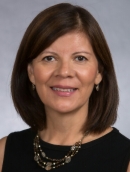
Dr. Martinez is a cancer epidemiologist with expertise in molecular epidemiology as well as cancer disparities research. She is currently Professor in the Herbert Wertheim School of Public Health & Human Longevity Science and Associate Director of Population Sciences, Disparities and Community Engagement at UC San Diego’s Moores Cancer Center. She is Lead Principal Investigator (PI) of the NIH-funded SDSU/UCSD Cancer Center Comprehensive Partnership, whose mission is to address cancer disparities in Hispanic/Latino populations through research, research education, and community outreach. She is lead PI of the Accelerating Colorectal Cancer Screening and Follow-up through Implementation Science Cancer Moonshot grant, which addresses the extremely low colorectal cancer screening and follow-up rates in community health centers in San Diego County. She is MPI of the California Teachers Study, a NCI-funded cohort study. Nationally, she has established strong leadership and commitment to the area of cancer health disparities, particularly in relation to Hispanic/Latino populations in the U.S. She has served on NCI’s Board of Scientific Counselors and Board of Scientific Advisors. Finally, she was one of only 28 members nationally who served on the prestigious Cancer Moonshot Blue Ribbon Panel.
February 12th, 2021
Douglas Hanahan, Ph.D.
EPFL
“Epigenetic signaling pathways controlling invasion and metastasis”
Sponsor: Dr. Michael Atkins
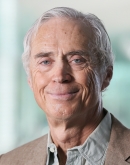
Douglas Hanahan is Director of the Swiss Institute for Experimental Cancer Research (ISREC) in the Swiss Federal Institute of Technology Lausanne (EPFL), and Co-Director of the new multi-institutional Swiss Cancer Center Leman. Hanahan trained at MIT and Harvard University. He worked at Cold Spring Harbor Laboratory for a decade and then spent 21 years as a Professor at the University of California San Francisco before moving to EPFL in 2009. Hanahan is a Fellow of the American Academy of Arts & Sciences, a member of the US National Academies of Medicine and of Science, and of the European Molecular Biology Organization. He received an honorary degree from the University of Dundee (2011). In 2014, he was elected to the Academy of the American Association for Cancer Research (AACR), and honored with the AACR’s Lifetime Achievement Award. In 2020, Hanahan was appointed as a Distinguished Scholar of the Ludwig Institute for Cancer Research (Zurich/New York).
Hanahan’s research is focused on elucidating mechanisms of tumor development and progression in genetically engineered mouse models of human cancer, a field Hanahan has helped pioneer, with a particular focus on functional contributions of the disparate cell types of the tumor microenvironment, and on applying knowledge of mechanisms to guide combinatorial therapeutic strategies with promise to improve the treatment of human cancers.
February 5th, 2021
Joe Gray, Ph.D.
OHSU
“Moving from Precision to Personalized Metastatic Breast Cancer Treatments – promises and problems”
Sponsor: Dr. Marc Lippman

Dr. Joe W. Gray, a physicist and an engineer by training, is the Gordon Moore Professor of Biomedical Engineering and Associate Director for Biophysical Oncology, Knight Cancer Institute at OHSU. His research program applies experimental and mathematical tools to elucidate mechanisms by which genomic, transcriptional and proteomic abnormalities occur including how these abnormalities alter the multiscale architecture of cancers and their microenvironmental pathophysiology and how these changes contribute to cancer progression and response to therapy. Past contributions include development of cytometric techniques for cell and genome analysis including high speed chromosome sorting, BrdUrd/DNA analysis of cell proliferation, fluorescence in situ hybridization (FISH), comparative genomic hybridization (CGH) and End Sequence Profiling (ESP). More recently, Dr. Gray has elucidated mechanisms of cancer progression and developed systems biology approaches for identification of molecular markers that predict and determine response to therapeutic treatment. Currently, he is co-leading a translational research effort to elucidate how genomic and epigenomic events influence the multiscale structures that control progression and therapeutic response in breast cancer. Dr. Gray has published over 500 scientific papers and holds more than 80 US Patents. Major awards include E.O. Lawrence Award, U.S. Department of Energy, 1986; Curt Stern Award, American Society for Human Genetics, 2001; Brinker Award for Scientific Distinction: Basic Science, 2007; Team Science Award, American Association for Cancer Research, 2008 and 2020; McGuire Award, San Antonio Breast Cancer Symposium, 2011; Simon M. Shubitz Award for work in genome science, University of Chicago, 2012; Alfred G. Knudson Award Lecture in Cancer Genetics, NCI, 2014; and election as a Fellow of the American Institute for Medical and Biological Engineering, 2009, the National Academy of Medicine, 2011, and the American Association of Cancer Research Academy Class of 2016.
January 29th, 2021
Yarden Samuels, Ph.D.
The Weizmann Institute
“Deciphering the immune-genomic landscape in melanoma”
Sponsor: Dr. Michael Atkins
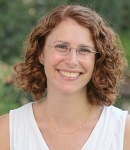
Prof. Yardena Samuels received her BSc from Cambridge University, UK in 1993, and earned an MSc in immunology at the Hebrew University of Jerusalem, in 1997. She completed a PhD at Imperial College, London in 2002. She worked as a postdoctoral fellow at Prof Vogelstein’s laboratory at Johns Hopkins University from 2003 to 2006. She served as an assistant professor at NIH before joining the Weizmann Institute in 2012. Today she is the director of the EKARD Institute for Cancer Diagnosis Research and is the incumbent of the Knell Family Professorial Chair. Prof. Samuels is the recipient of the Pezoller Foundation – EACR Cancer Researcher Award, the Youdim Family Prize for Excellence in Cancer Research and has recently been nominated an EMBO member.
Prof Samuels’ focus involves the identification of gene mutations that play a role in the progression of cutaneous melanoma. Her aim is to delineate ideal protein target combinations in melanoma to achieve lasting disease control. Her lab was part of the TCGA workgroup who published the Genomic Classification of Cutaneous Melanoma. Her lab has developed novel methods to identify melanoma neo-antigens using genetic and proteomic methods. She has further been characterizing the immune response to these neo-antigens and developed relevant mouse models to investigate the role tumor heterogeneity plays in the tumor immune response.
December 11th, 2020
Robert Winn, M.D.
VCU
“Making Impact: Cancer Centers in the 21st Century”
Sponsor: Dr. Louis Weiner
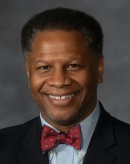
Robert Winn, M.D., was appointed director of VCU Massey Cancer Center on December 2, 2019. In this position, he oversees a cancer center designated by the National Cancer Institute that provides outstanding cancer care, conducts groundbreaking research to discover new treatments for cancer and offers high-quality education, training and community outreach programs.
His current basic science research, which has been supported by multiple National Institutes of Health awards, focuses on the cellular pathways that drive the development and progression of lung cancer and the role of cell division arrest in lung cancer.
Winn is committed to community-engaged research centered on eliminating health disparities. He is a principal investigator on several community-based projects funded by the NIH and National Cancer Institute, including the All of Us Research Program, a NIH precision medicine initiative. He has received national and international acclaim for his efforts to empower underserved patient populations, improve health care delivery and ensure equal access to cancer care.
Winn’s previous faculty appointments include serving as director of the University of Illinois Cancer Center from 2015 to 2019 and as associate vice chancellor of health affairs for community-based practice at the University of Illinois Hospital and Health Science System from 2013 to 2019.
December 4th, 2020
Worta McCaskill-Stevens, M.D.
NCI
“Moving Toward Precision Oncology: A Partnership Between Community and Academic Oncology”
Sponsor: Dr. Sandra Swain
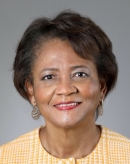
Dr. Worta McCaskill-Stevens is a medical oncologist and Chief of the Community Oncology and Prevention Trials Research Group, which houses the NCI Community Oncology Research Program (NCORP), a community-based clinical trials network launched in 2014. As NCORP Director, she oversees the program supporting community hospitals, physicians and others to participate in NCI-approved cancer treatment, prevention, screening, and control clinical trials, as well as cancer care delivery studies. After arriving at the NCI in 1998, she became the program director for the Study of Tamoxifen and Raloxifene (STAR), and assumed responsibilities for breast cancer prevention with the CCOP. She chaired the 2009 NIH State-of-the Science Conference on ductal carcinoma in situ; is a member of the Early Breast Cancer Clinical Trialist Group (Oxford, UK); and is a member of NCI’s Breast Cancer Steering Committee.
After attending Washington University and the American College of Switzerland, she completed medical school and an internal medicine residency at Georgetown University followed by a medical oncology fellowship at the Mayo Clinic (Rochester, MN). Prior to her current position, she was the Co-Director of the Breast Care and Research Center at the Indiana University Cancer Center. In 2016, she was the recipient of the American Association for Cancer Research Jane Cooke Wright Memorial Lectureship, which recognizes an outstanding scientist who has made meritorious contributions to the field of cancer research and who has, through leadership or by example, furthered the advancement of minority investigators in cancer research. Her other honors and awards include: the Kaiser Family Fund Award for Excellence in Academic Achievement and Leadership in Medicine; Omega Alpha Medical Honor Society; the NIH Director’s Award for Clinical Trials; the NCI Merit Award for breast cancer prevention; and listed on Ebony magazine’s 2013 Power 100 – Most Influential African Americans in Science and Health. Prior to medical school, Dr. McCaskill-Stevens was a medical editor for Marcel Dekker and the Alan Guttamcher Institute.
November 13th, 2020
Wayne Marasco, M.D., Ph.D.
Harvard
“Development of Dual-Targeted, Fine-Tuned, Immune-Restoring CAR T Cell Therapy to Cure Clear Cell Renal Cell Carcinoma”
Sponsor: Dr. Louis Weiner
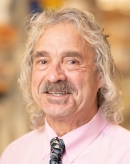
Dr Marasco’s laboratory conducts basic science and translational research in the areas of human antibody engineering and cancer immunotherapies. They have pioneered numerous technological developments in the field of human antibody engineering and cancer immunotherapies. Based on their unique technical expertise, numerous patented discoveries, track record of establishing productive academic collaborations, they formally launched the National Foundation for Cancer Research (NFCR) Center for Therapeutic Antibody Engineering (CTAE) in 2004 (http://research4.dfci.harvard.edu/nfcr-ctae/) where Dr. Marasco served as the founding Scientific Director. He is also the founding director of the humanized mouse program (www.humice.org) that is engaged in developing humanized mice capable of developing strong adaptive immune responses, which are now being used to accelerate the development of anti-cancer therapeutic antibodies and other cellular therapies including chimeric antigen receptor (CAR) T cells. Relevant to this proposal, they have worked in the kidney cancer immunotherapy development arena for more than 10 years and published several manuscripts. Based on their discovery of human antibodies against the clear cell renal cell carcinoma (ccRCC) associated tumor antigens carbonic anhydrase IX (CAIX) and CD70; as well as antibodies against immune checkpoint modulators such as PD1/PDL1, they have successfully established the 1st generation lead anti-CD70/anti-CAIX Dual-targeted Fine-tuned Immune-Restoring CAR T (DFIR-CART) cells that secrete antibody drugs called checkpoint blockade inhibitors (CBIs). This combination approach is designed to change the tumor environment and enhance the ability of CAR-T treatment to kill cancer cells, avoid immune escape and reduce on-target, off-tumor toxicity. They have proven that restoring the tumor environment towards effective T cell anti-tumor immunity leads to significant renal cell carcinoma cell death in complex tumor models.
November 6th, 2020
Howard Xue, M.D., Ph.D.
CDI-Hackensack
“Tcf/Lef nucleated network in immune regulation and leukemia”
Sponsors: Dr. Louis Weiner and Dr. Benjamin Tycko
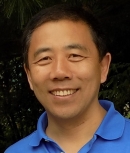
Dr. Xue has been leading his independent laboratory at the University of Iowa since 2006. The Xue lab’s major interest is to elucidate transcriptional and epigenetic regulation in T lymphocytes, hematopoietic and leukemic stem cells. His current focus is on the Tcf/Lef family transcription factors and their associated Wnt-beta-catenin pathway and Groucho/Tle cofactors.
October 30th, 2020
Steffi Oesterreich, Ph.D.
University of Pittsburgh
“Histological Subtypes of Breast Cancer – Why Do They Matter?”
Sponsor: Dr. Rebecca Riggins

Dr. Oesterreich joined University of Pittsburgh in August 2010 as Professor with Tenure in the Department of Pharmacology and Chemical Biology, and as Director of Education in the Women’s Cancer Research Center (WCRC), a collaboration between the UPMC Hillman Cancer Center and Magee-Womens Research Institute. She currently serves as Co-Director of the WCRC, and Co-Leader of the Cancer Biology Program of the UPMC Hillman Cancer Center. Her laboratory focuses on invasive lobular breast cancer, and on resistance to hormonal therapies in patients with estrogen receptor-positive breast cancer and breast cancer metastases. Dr. Oesterreich enjoys working in multi-disciplinary teams and is committed to mentoring the next generation of breast cancer researchers. She is also grateful to and enjoys working with patients advocates, such as the Lobular Breast Cancer Alliance, for which she chairs the Scientific Advisory Board.
She has authored over 150 scientific articles in the area of breast cancer, and her research has continuously been funded by NCI, CDMRP, Susan G Komen, BCRF and other breast cancer foundations for many years. Dr. Oesterreich is a Susan G Komen Scholar, thereby belonging to a selective group of leading national and international breast cancer experts. She has chaired the Tumor Cell Biology Study Section at the NIH, and the 2019 Gordon Research Conference on Hormones and Cancer. She serves as Deputy Editor for Molecular Cancer Research. Dr. Oesterreich and her husband Dr. Adrian Lee have 2 daughters (Paula and Nicola), and enjoy the outdoors in and around in Pittsburgh.
October 23rd, 2020
Kieron Dunleavy, M.D.
George Washington University
“Implementing Molecular Advances to Direct Therapy in Aggressive B-Cell Lymphoma”
Sponsor: Dr. Michael Atkins

Dr. Dunleavy is currently a Professor of Medicine and Director of the Lymphoma Program at George Washington University (GWU) Cancer Center and the Medical Faculty Associates, GWU. He is a graduate of University College Dublin Medical School and completed a Fellowship in Medical Oncology at the National Cancer Institute in Bethesda, Maryland. Subsequently, he worked as an attending physician/investigator with the NCI Lymphoid Malignancies Branch where he was the Clinical Director prior to his move to GW. His work is focused on the biology and treatment of lymphoid diseases. He has worked on Phase I, II and III clinical trials as a Principal Investigator and Co-Investigator on several single and multi-center studies – among his research roles, he is currently a co-PI on an NHLBI study evaluating the efficacy of a novel T-cell specific cellular therapy in patients with relapsed and refractory lymphoma. He serves on the editorial board of several hematological malignancy journals and on the scientific advisory board of the Lymphoma Research Foundation.
October 16th, 2020
Clifford Brangwynne, Ph.D.
Princeton University
“Liquid Phase Condensation in Cell Physiology and Disease”
Sponsor:
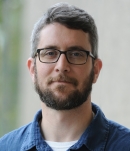
Clifford Brangwynne received a B.S. (2001) in Materials Science & Engineering from Carnegie Mellon University and a Ph.D. (2007) in Applied Physics from Harvard University. He was a postdoctoral researcher at the Max Planck Institute of Molecular Cell Biology and Genetics and the Max Planck Institute for the Physics of Complex Systems from 2007 to 2010, prior to joining the faculty of Princeton University in 2011, where he is currently a Professor in the Department of Chemical and Biological Engineering, and an Investigator at the Howard Hughes Medical Institute. He is the recipient of numerous awards including a Macarthur Fellowship (2018), Blavatnik Award (2020), and Wiley Prize (2020).
October 9th, 2020
Erin Kobetz, Ph.D.
University of Miami
“From Bench to Trench: Moving the Dial on Cancer Disparity in Southern Florida.”
Sponsor: Dr. Marc Lippman

Dr. Erin Kobetz is a Tenured Professor in the Departments of Medicine, Public Health Sciences, and Obstetrics and Gynecology at the University of Miami (UM) Miller School of Medicine. Additionally, she is Associate Director of Population Science and Cancer Disparities at UM’s Sylvester Comprehensive Cancer Center (SCCC), as well as, the Chief of Population Health and Cancer Disparities for UHealth Oncology Service line. Dr. Kobetz also serves as Program Director for the Community Engagement and Multidisciplinary Team Science Components of UM’s Clinical Translational Science Institute (CTSA) and is the University’s co-Vice Provost for Research (VPR).
She earned a Master’s in Public Health from Rollins School of Public Health at Emory University (1999), and joined the University of Miami in September of 2004, after completing her Ph.D. at the University of North Carolina at Chapel Hill, Gillings School of Public Health. Soon after, Dr. Kobetz established Patnè en Aksyon (Partners in Action), Sylvester’s first ever campus community partnership in Little Haiti, the largest enclave of Haitian settlement, and remains committed to integrating diverse stakeholders into the translational research continuum.
Dr. Kobetz currently works as the Principal Investigator of multiple grants from the National Cancer Institute (NCI) and National Institute of Minority Health and Health Disparity (NIHMD,) to support collaborative science with numerous South Florida communities. Collectively, they have garnered over 25 million dollars in extramural funding and serve as the University’s model for stakeholder engagement. Dr. Erin Kobetz has also partnered with South Florida Firefighters – similarly characterized by excess cancer risk – and leads the Firefighter Cancer Initiative (FCI), a University-wide interdisciplinary strategy to address disparity from “bench” to “bedside” to “community.” Such efforts have been locally and nationally recognized and serve as an important approach to develop new community-based models for cancer prevention and achieve sustainable health and social change in underserved communities.
September 25th, 2020
Ashani Weeraratna, Ph.D.
Johns Hopkins
“Age Against The Machine: How Aging Drives Tumor Progression.”
Sponsor: Dr. Michael Atkins

Dr Weeraratna is currently the E.V. McCollum Chair of Biochemistry and Molecular Biology at the Johns Hopkins School of Public Health, a Bloomberg Distinguished Professor, and Co-Program Leader of the Cancer Invasion and Metastasis Program at the Sidney Kimmel Comprehensive Cancer Center, Johns Hopkins School of Medicine. Prior to joining Johns Hopkins, she was the Ira Brind Professor and Co-Program Leader, Immunology, Microenvironment & Metastasis Program Member at the Wistar Institute. Born in Sri Lanka and raised in Southern Africa, Weeraratna first came to the United States in 1988 to study biology at St. Mary’s College of Maryland. She earned a Ph.D. in Molecular and Cellular Oncology at the Department of Pharmacology of George Washington University Medical Center. From 1998 to 2000, she was a post-doctoral fellow at The Sidney Kimmel Comprehensive Cancer Center at Johns Hopkins Oncology Center, before joining the National Human Genome Research Institute as a staff scientist. In 2003, she moved to the National Institute on Aging, where she started her own research program, before joining the Wistar Institute from 2011-2019. Dr. Weeraratna is an expert in melanoma metastasis, Wnt signaling, and aging, and her research focuses heavily on the effects of the tumor microenvironment on metastasis and therapy resistance. She is one of the first to study how the aging microenvironment guides metastasis and therapy resistance in melanoma. Her studies encompass biopohysical changes that affect the ability of both tumor and immune cells to migrate, that affect vasculature integrity thus dictating routes of metastasis, and also secreted changes that drive metastatic signaling and response to therapy. The Weeraratna laboratory has also undertaken a global analysis of how the aged microenvironment promotes metastasis, using a unique resource of normal skin fibroblasts from healthy donors of differing ages, proteomics analysis, and animal models. The clinical implications of these data may also result in a change in clinical practice, as they are finding age-related differences in responses to both targeted and immunotherapy. Dr. Weeraratna is using these proteomics data to guide further studies on how the aging microenvironment affects tumor dormancy and cellular metabolism.
Through speaking engagements and social media, Dr. Weeraratna diligently promotes skin safety, from urging proper sunscreen use to regular mole checks, as well as the dangers of indoor tanning. She is also a fierce champion of and a mentor for junior faculty, women in science and girls pursuing a science, technology, engineering, and math (STEM) education.
September 18th, 2020
Gary Kupfer, M.D.
Lombardi Comprehensive Cancer Center
“Genomic Instability: Rare Diseases and Common Lessons.”
Sponsor: Dr. Jeffrey Toretsky
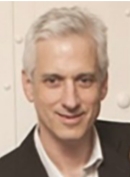
Gary Kupfer is a physician scientist, practicing as a pediatric hematologist-oncologist and operating his laboratory for the past 22 years. His travels have brought in and out of the Metro DC area, having attended medical school at Johns Hopkins University, started as a junior faculty at the University of Virginia, and now joining the faculty of Georgetown this summer, during a pandemic no less, moving from Yale where he created a program in pediatric hematology-oncology the past 13 years. He brings his laboratory in which he focuses on the biology of DNA repair and is leading the hemophilia treatment center along with joining the leadership of the Lombardi Comprehensive Cancer Center.
September 11th, 2020
John Carethers, M.D.
University of Michigan
“The Contribution of DNA Mismatch Repair Defects in Colorectal Cancer”
Sponsor: Dr. Lucile Adams-Campbell

Dr. John M. Carethers is currently the John G. Searle Professor and Chair of the Department of Internal Medicine at the University of Michigan. He received his BS degree in Biological Sciences with a minor in Chemistry from Wayne State University, and his MD with high distinction from the same institution. Dr. Carethers completed his internship and residency in Internal Medicine at Massachusetts General Hospital, followed by a fellowship in gastroenterology at the University of Michigan. He was then recruited to the University of California, San Diego, where he grew his laboratory-based research in the area of DNA mismatch repair and colorectal cancer pathogenesis, saw general medicine and gastroenterology patients. He also served as the main physician for hereditary colon cancer referrals in Southern California. His leadership roles included the gastroenterology fellowship director, the gastroenterology Section Chief for the San Diego VA Hospital, then Division Chief for University of California, San Diego, before being recruited to Michigan.
Dr. Carethers was the founding Director of the NIH-funded UCSD Gastroenterology Center grant, and was the Director of the gastroenterology T32 training grant. His laboratory research continues to be funded by the NIH. Dr. Carethers also has interest in colorectal cancer disparities as it relates to genetics and outcomes. He is the former PI of the SDSU/UCSD Cancer Center Comprehensive Partnership U54 grant, which addresses cancer disparities, and was selected as the 14th Jane Cooke Wright Lecturer for the American Association for Cancer Research. He has published over 200 manuscripts and book chapters. He is a former Senior Associate Editor for Gastroenterology, the official journal for the American Gastroenterological Association. He completed a 2-year appointment on the National Commission for Digestive Diseases, a U.S. Congressional Commission, after his appointment by Elias Zerhouni, MD, then Director of the National Institutes of Health. He was elected a member of the American Society for Clinical Investigation, and elected a member of the American Association of Physicians (AAP), and served as President of AAP for 2018-2019. He was elected a member of the National Academy of Medicine in 2012 and the American Academy of Arts and Sciences in 2016. He received the Robert H. Williams, MD Distinguished Chair of Medicine Award from the Association of Professors of Medicine in 2019. He is currently vice-president of the American Gastroenterological Association, and will be president in 2022.
February 28th, 2020
Nagi Kumar, Ph.D.
Lee Moffitt Cancer Center
“Cancer Interception: A Broad Spectrum Approach To Evaluate Agents for Clinical Chemoprevention”
Sponsor: Dr. Lucile Adams-Campbell

Dr. Nagi B. Kumar is Professor of Department of Epidemiology H. Lee Moffitt Cancer Center & Research Institute at the University of South Florida College of Medicine. She has completed her MA ,PhD from University of South Florida, Tampa, Florida. Dr. Nagi B. Kumar research interests include Cancer Clinical Trials, preclinical and early phase I-II clinical trials with purified isoflavones, curcuminoid complex, green tea catechins, n-3 fatty acids, tannic acid and lycopene.
Dr. Kumar focuses her research on examining the role of botanicals and biologics in the prevention, treatment and survival from cancer. Using a systematic, science-based approach, and working with a multidisciplinary team, Dr. Kumar has initiated and completed several preclinical and early phase I-II clinical trials with purified isoflavones, curcuminoid complex, green tea catechins, n-3 fatty acids, tannic acid and lycopene, laying the foundation to develop a program to accelerate agent development and validation at Moffitt Cancer Center.
February 21st 2020:
Patricia Ganz, M.D.
UCLA
“Cancer and Aging: Implications for Cancer Survivors”
Sponsors: Dr. Claudine Isaacs, Dr Robert Warren
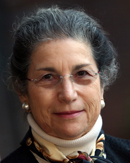
Patricia A. Ganz, M.D., a medical oncologist, has been a member of the faculty of the UCLA School of Medicine since 1978 and the UCLA School of Public Health since 1992. Since 1993 she has been the Associate Director for Population Science at the Jonsson Comprehensive Cancer Center. In 1999 she was awarded an American Cancer Society Clinical Research Professorship for “Enhancing Patient Outcomes across the Cancer Control Continuum.” Dr. Ganz was elected to the Institute of Medicine (IOM) in 2007, now National Academy of Medicine (NAM). She served on the National Cancer Institute Board of Scientific Advisors from 2002-2007 and on the American Society of Clinical Oncology (ASCO) Board of Directors from 2003-2006. She received the American Cancer Society Medal of Honor in 2010. Dr. Ganz has served on three NAM consensus committees: From Cancer Patient to Cancer Survivor, 2005; Cancer Care for the Whole Patient, 2008; and Delivering High-quality Cancer Care, 2013, which she chaired. Dr. Ganz is a pioneer in the assessment of quality of life in cancer patients, and has focused much of her clinical and research efforts in the areas of breast cancer and its prevention. At the Jonsson Comprehensive Cancer Center, she leads Cancer Control and Survivorship Program. Her major areas of research include cancer survivorship and the late effects of cancer treatment, measurement of patient reported outcomes in clinical treatment trials, and quality of care for cancer patients. In July 2017, Dr. Ganz became Editor-in-Chief of the Journal of the National Cancer Institute (JNCI).
February 14th, 2020
Dwight Nissley, Ph.D.
Frederick National Lab (FNLCR)
“Drugging the Undruggable: The RAS Initiative and the Frederick National Library”
Sponsor: Dr. Louis Weiner
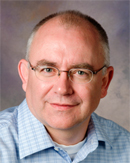
Dr. Nissley is the Director of the Cancer Research Technology Program (CRTP) Directorate at Frederick National Laboratory for Cancer Research (FNLCR). In this role, he is responsible for the efforts of 200 scientists working in a broad range of technology, and basic/translational research including; genomics, proteomics, optical microscopy, SEM and TEM microscopy, cryo-EM, nanotechnology, oncology research and drug discovery as well as the newly established National cryo-EM Facility (https://www.cancer.gov/research/resources/cryoem) . He is also responsible for guiding the NCI RAS Initiative, an NCI-funded program that aims to find therapeutic interventions against oncogenic Ras which is a driver in up to a third of all cancers. In addition he is part of the NCI-DOE Joint Design od Advanced Computing Solutions for Cancer (JDACS4C) collaboration serving as NCI-lead on the Molecular Level Pilot for RAS Structure and Dynamics in Cellular Membranes and a member of the Joint Research Committee for the Accelerating Therapeutics for Opportunities in Medicine (ATOM) consortium which is a public-private partnership with the mission of transforming drug discovery by accelerating the development of more effective therapies for patients.
February 7th, 2020:
Katherine Aird, Ph.D.
Penn State
“The Metabolic-Epigenetic Axis in Ovarian Cancer”
Sponsor: Dr Rebecca Riggins
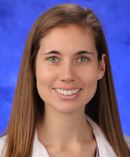
Dr. Aird received her bachelor’s degree in biology from Johns Hopkins University and her PhD from Duke University. She did her postdoctoral training at The Wistar Institute in Philadelphia and was the recipient of an NCI K99/R00 Pathway to Independence Award. She joined the Department of Cellular & Molecular Physiology at Penn State College of Medicine as a tenure-track Assistant Professor in late 2016. The main focus of Dr. Aird’s lab is to investigate the metabolic control of tumor initiation with the ultimate goal of identifying novel therapeutic targets.
January 24th, 2020:
Sandra Demaria, M.D.
Cornell
“In situ vaccination with focal tumor radiotherapy: from mice to patients and back”
Sponsors: Dr Michael Atkins

Sandra Demaria, M.D., a native of Turin, Italy, obtained her M.D. from the University of Turin, and then moved to New York City for her post-doctoral training in immunology as a Damon Runyon-Walter Winchell Cancer Research Fund awardee, followed by a residency in anatomic pathology at NYU School of Medicine (NYU SoM). She remained on the faculty at NYU SoM until 2015, raising to the rank of Professor. She is currently Professor of Radiation Oncology and Pathology and Laboratory Medicine at Weill Cornell Medicine in New York City. Dr. Demaria is internationally known for her studies demonstrating the synergy of radiotherapy with immunotherapy in pre-clinical cancer models. She was the first to show that radiotherapy can convert tumors unresponsive to immune checkpoint inhibitors into responsive ones, a finding being translated in several clinical trials at multiple institutions. Her lab has a central interest in addressing the molecular mechanisms that regulate ionizing radiation’s ability to generate an in situ tumor vaccine in both preclinical models as well as cancer patients. As a breast cancer pathologist Dr. Demaria also studies the immunological microenvironment of breast cancer in patients, and therapeutic strategies to modulate the immune infiltrate in preclinical models and in patients. She has authored more than 100 articles and has received awards from the American Cancer Society, the Department of Defense CDMRP, the US National Cancer Institute, and several private Foundations.
January 10th, 2020:
Jason Locasale, Ph.D.
Duke
“Glucose and amino acid metabolism in cancer.”
Sponsors: Dr Stephen Byers
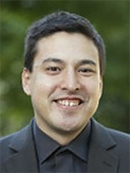
Jason W. Locasale, Ph.D. is a tenured associate professor at Duke University in the School of Medicine. He graduated from Rutgers University, Summa Cum Laude with degrees in Chemistry and Physics. He received his Ph.D. at the Massachusetts Institute of Technology. He then conducted his postdoctoral training at Harvard Medical School under the mentorship of Lewis Cantley as an American Cancer Society postdoctoral fellow and later as an Instructor on the faculty at Harvard in the Department of Medicine. Dr. Locasale has pioneered the use of metabolomics approaches to study cancer biology and metabolism. He has made seminal contributions to our understanding of metabolism and nutrition including the role of serine synthesis in cancers, defining the quantitative, mechanistic principles of the Warburg Effect and altered glucose metabolism in cancer, and the role of metabolism in mediating chromatin status and epigenetics. His research combines quantitative approaches in metabolomics and mathematical modeling with biochemistry, cell biology and genetics. Dr. Locasale is a recipient of the NIH Pathway to Independence Award, the Benjamin Trump Award for Excellence in Cancer Research, and the American Cancer Society Research Scholar Award. As an internationally recognized thought leader in metabolism, Dr. Locasale currently serves on the editorial board of PLoS Biology and has served numerous advisory roles for industry, philanthropic organization, and government including the National Institutes of Health office of the Director, and the National Cancer Institute. His laboratory is funded primarily by NIH. He has authored over 150 publications and numerous textbooks chapters and patents.
December 6th 2019:
Clifford Hudis, M.D.
AACR
“Your Professional Society in Times of Change”
Sponsors: Dr. Louis Weiner, Dr. Sandra Swain
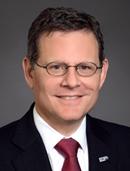
Dr. Hudis is the Chief Executive Officer of the American Society of Clinical Oncology (ASCO). He also serves as the CEO of its Conquer Cancer Foundation and the Chairman of the Board of Governors of ASCO’s CancerLinQ. Dr. Hudis previously served in a variety of roles at ASCO, including as President during the Society’s 50th anniversary year (2013-14). Before transitioning full-time to ASCO, he was the Chief of the Breast Medicine Service at Memorial Sloan Kettering Cancer Center (MSKCC) in New York City, where he was also Professor of Medicine at the Weill Medical College of Cornell University. In this role, he developed more effective treatments for all stages of breast cancer, while also exploring novel prevention opportunities. As CEO of ASCO, Dr. Hudis’ focus is on education, research and promotion of the highest quality of care by the Society’s nearly 45,000 members. Key initiatives include the acceleration of CancerLinQ, ASCO’s focused effort to increase insights and learning from the rapidly accumulating electronic records of routine care provided by clinicians.
November 22nd 2019:
Gordon Mills, M.D., Ph.D.
Oregon Health and Science University
“Systems Approach to Rational Combination Therapy with PARP Inhibitors.”
Sponsor: Dr Marc Lippman

Gordon B. Mills, MD, PhD, is the Director of Precision Oncology, Director of SMMART trials, Associate Director, ad interim, for Clinical Research and holds the Wayne and Julie Drinkward Endowed Chair in Precision Oncology in the Knight Cancer Institute. In these roles, he is responsible for the implementation of an integrated program of tumor analysis, decision-making and implementation of novel precision oncology trials.
Dr. Mills has published more than 1,000 papers and holds more than 20 patents. . Dr. Mills has served as principal investigator or project investigator on many national peer-reviewed grants including NIH/NCI SPOREs and team grants (U01 and U54), Stand Up To Cancer, Breast Cancer Research Foundation, Ovarian Cancer Research Foundation, and Komen Foundation grants. His efforts have been recognized in the Komen Foundation’s Brinker Award for Scientific Excellence and the Finneran Family Prize for Translational Research. The majority of Dr. Mills’ trainees have developed successful research careers rising through the ranks to full professor, department chairs, and institute directors. Based on this role, he has been nominated for and awarded multiple mentoring awards, including the Stand Up 2 Cancer Laura Ziskin Prize for Mentoring and the inaugural Waun Ki Hong award for mentorship.
November 8th 2019:
Benita Katzenellenbogen, Ph.D.
University of Illinois
“Estrogen Receptors, Breast Cancer, and Overcoming Therapy resistance and Aggressiveness Factors.”
Sponsors: Dr Marc Lippman, Dr Robert Clarke

Dr. Benita S. Katzenellenbogen is the Swanlund Professor of Molecular and Integrative Physiology, Cell and Developmental Biology at the University of Illinois and College of Medicine at Urbana-Champaign. She is a world-renowned expert on nuclear hormone receptors, especially estrogen receptors and their actions in breast cancer and reproductive tissues. Her research work constitutes many of the pioneering findings in the area of molecular biology of steroid receptor action that have made her a leading figure in endocrinology and women’s health. She continues to make critical contributions that shape the way we think about these important areas of biology and medicine.
Her seminal work elucidated fundamental aspects of structure-function relationships and mechanisms of action of the estrogen receptors alpha and beta, and demonstrated that estrogens have a remarkably broad spectrum of effects on numerous gene networks and pathways in breast cancer cells. This research has provided a framework for our current understanding of the molecular basis for the action of selective estrogen receptor modulators (SERMs) such as tamoxifen and raloxifene in target cells, and for the development of anti-hormonal treatments that are used in breast cancer treatment and prevention. Her laboratory demonstrated that estrogen receptors regulate and function along with multiple cell signaling pathways involving kinase cascades and growth factors, and that these inputs converge at the level of chromatin to regulate gene expression, work that presaged the current active interest in both the non-genomic actions of estrogens and the cross-talk between nuclear receptors and other cell signaling pathways and their contributions to endocrine resistance. Her laboratory has also identified factors associated with aggressiveness and early time to recurrence and their regulation in different subtypes of breast cancer. She has also characterized the activities of estrogens in menopausal hormone replacement therapies, and diverse ligands for estrogen receptors, including environmental estrogens, phytoestrogens such as genistein, and estrogen receptor subtype-selective ligands in various estrogen target tissues.
Dr. Katzenellenbogen has published over 300 research articles, contributed 30 book chapters, and co-edited a book on hormone-dependent cancers. She is the recipient of numerous awards, honors, and special fellowships from governmental, private, and academic institutions, including the MERIT Award from the National Cancer Institute, NIH, the Brinker Award for Scientific Distinction (2009) from the Susan G. Komen for the Cure Breast Cancer Foundation, the Jill Rose Award from The Breast Cancer Research Foundation, the Ernst Oppenheimer Award and the Roy O. Greep Lecture Award from The Endocrine Society and the Fred Conrad Koch Lifetime Achievement Award from The Endocrine Society in 2016. She is a Fellow of the American Academy of Arts and Sciences and received a Distinguished Alumni Award from The City University of New York and an Honorary Degree from the University of Milan, Italy.
Dr. Benita Katzenellenbogen has been an outstanding and tireless leader in her profession, having served on many important committees and review panels, journal editorial boards, and as President of The Endocrine Society (2000–2001). Prior to her time as Endocrine Society President, she served on numerous committees within the Endocrine Society, including its Council, Publications, Nominating and Annual Program Steering, and its Awards Committees. She served full terms on the NIH Endocrinology and Biochemical Endocrinology Study Sections, was Vice Chair of the American Cancer Society Review Panel on Biochemistry and Endocrinology, and was Chair of the NIDDK Board of Scientific Counselors. She recently ended her term as Chair of the External Advisory Committee for the NIH Nuclear Receptor Signaling Atlas (NURSA) and currently serves on Review Panels for Komen for the Cure, the DOD Breast Cancer Program, and on NIH graduate and postdoctoral fellowship review committees. She Co-chaired the “Hormone Action” Gordon Research Conference in 1988 and the Keystone Symposium on “The Nuclear Receptor Superfamily” in 2002.
She has also been a role model in teaching and mentoring, and has a truly outstanding record of training more than 90 graduate students and postdoctoral scientists, many of whom are leading distinguished careers world-wide in universities and medical centers, governmental agencies, and the pharmaceutical/biotechnology industry. For her outstanding record in mentoring, she was recognized with the Mentor Award from Women in Endocrinology in 2011.
November 1st 2019:
Samie Jaffrey, M.D., Ph.D.
Cornell University
“The role of epitranscriptomic modifications in cellular function and disease.”
Sponsor: Dr Jeffrey Toretsky
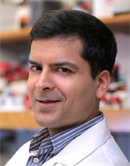
Dr. Samie Jaffrey is the Greenberg-Starr Professor in the Department of Pharmacology at the Weill Cornell Medical College. He received an M.D. and Ph.D. in 1999 from Johns Hopkins School of Medicine where he studied mechanisms of nitric oxide signaling with Dr. Solomon H. Snyder. After brief postdoctoral training with Dr. Snyder, Dr. Jaffrey started his own laboratory at Weill Cornell Medical College in 2001.
Dr. Jaffrey’s work has fundamentally advanced our understanding of RNA biology and gene regulation. Most recently, he launched the field of “epitranscriptomics,” which has revealed that mRNA and long noncoding RNAs are regulated by nucleotide modifications that impact their fate and function in cells. Dr. Jaffrey’s transcriptome-wide mapping of N6-methyladenosine (m6A) in 2012 revealed that m6A is a pervasive modification in the transcriptome, thereby identifying this modification as a fundamentally novel form post-transcriptional mRNA regulation. Since this seminal study, Dr. Jaffrey mapped dimethyladenosine (m6Am) and established functions of m6A and m6Am as well as m6A and m6Am reader, writer, and eraser proteins. As a result of his early studies, epitranscriptomics is a rapidly developing area of molecular biology that is transforming our understanding of gene regulation in normal and disease states.
Dr. Jaffrey’s is an elected member of the American Society for Clinical Investigation, and the recipient of the 2017 John J. Abel Award in Pharmacology, the 2014 American Society for Biochemistry and Molecular Biology, the Young Investigator Award Klingenstein Neuroscience Award, Irma T. Hirschl Scholar Award, the McKnight Foundation Technology Development Award, NIH EUREKA Award, the NIH Director’s Transformative R01 Award, and the 2013 Blavatnik Award for Young Scientists.
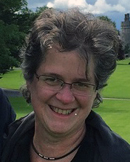
October 25th 2019:
Erica Golemis, Ph.D.
Fox Chase Cancer Center
“Relationship Of Ciliation And Polycystic Kidney Disease To Cancer Risk And Treatment Response: Provocative Connections.”
Sponsor: Dr Louis Weiner
Dr Golemis conducted graduate studies at MIT in the laboratory of Nancy Hopkins that used site-directed mutagenesis and bioinformatics approaches to identify the common enhancer core for a large set of leukemia-inducing retroviruses, which provided groundwork for the discovery of the key RUNX/AML leukemic regulators. As a postdoctoral fellow with Roger Brent at Massachusetts General Hospital/Harvard Medical School, she was lead developer of a LexA-based yeast two-hybrid system that became a major platform for the identification of protein-protein interactions in the 1990s, and led them to develop expertise in high throughput screening and analysis of protein networks. She first joined Fox Chase Cancer Center (FCCC) in Philadelphia in 1993 as an Assistant Professor. At present, she remains at FCCC as Professor, WW Smith Chair in Cancer Research, Deputy Chief Science Officer, and Leader of the Molecular Therapeutics Program, which integrates over 40 researchers with expertise in computational biology, biophysics, analysis of signaling networks, preclinical studies, and early phase clinical trials. In addition, she is Director of the FCCC High Throughput Screening Facility.
Her laboratory at FCCC investigates the signaling networks governing carcinogenesis as fully integrated systems. Building from her research background, initial projects in the laboratory arose from a functional genomics screen to identify human genes that coordinately affected cell cycle and cell polarity cues. Among numerous genes identified, NEDD9/HEF1 emerged as an important focus of future work. This scaffolding protein is now recognized as a major determinant of human tumor metastasis, based on its central role in coordinating integrin and Aurora-A dependent oncogenic signaling cascades. This work has led to fundamental new discoveries as to the mode of action of Aurora-A, and led her to explore unexpected relationships between cancer signaling, ciliation, and inherited ciliopathies such as autosomal dominant polycystic kidney disease (ADPDKD). Her group has strengths in protein network modeling and bioinformatics, in drug and RNA interference-based high-throughput screening, and in preclinical studies. Important long-term goals are to better understand the basis for cancer incidence, and to address the multifactorial basis for the drug resistance commonly found in advanced cancers.
October 11th 2019:
Asmin Tulpule, M.D., Ph.D.
UCSF
“Cytoplasmic protein granules organize kinase-mediated RAS signaling.”
Sponsor: Dr Jeffrey Toretsky
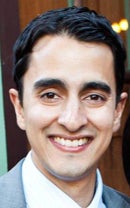
Asmin Tulpule is a pediatric oncologist and physician scientist at the University of California, San Francisco. Asmin completed his graduate and medical training at Harvard Medical School. His graduate work in George Daley’s lab demonstrated how the availability of human pluripotent stem cells enabled insights into the genesis and pathophysiology of the bone marrow failure syndromes Fanconi anemia and Shwachman-Diamond syndrome. He completed Pediatric Residency and Pediatric Hematology/Oncology fellowship at UCSF as part of the Molecular Medicine Program. After a post-doctoral fellowship in Trever Bivona’s lab, he started his own laboratory through the UCSF Physician-Scientist Scholar Program. One part of his lab focuses on DNA repair and trying to understand how oncogenes regulate DNA damage response networks to create tumor-specific vulnerabilities, laying the foundation for rational development of new targeted therapies for pediatric cancers. The other part of his lab is focused on understanding how the subcellular localization of oncogenic kinase fusion proteins impacts oncogenic signaling.
October 4th 2019:
Melissa Simon, M.D.
Northwestern University
“Achieving Cancer Health Equity through Implementation.”
Sponsors: Dr Lucile Adams-Campbell, Dr Marc Schwartz

Melissa Simon, MD MPH is the George H. Gardner Professor of Clinical Gynecology, Vice Chair of Clinical Research in the Department of Obstetrics and Gynecology at Northwestern University Feinberg School of Medicine, the Founder and Director of the Center for Health Equity Transformation and the Chicago Cancer Health Equity Collaborative, a Northwestern Medicine physician, and co-program leader for cancer control and survivorship at the Robert H. Lurie Comprehensive Cancer Center. She leads a diverse portfolio of research and directly impacts local, state, and national level thought and policy regarding inclusion and health equity. Melissa supports a large group of mentees that span from high school-aged students through junior faculty and created the first health care workforce development Massive Open Online Course (MOOC), “Career 911: Your Future Job in Medicine and Healthcare.” She has been recognized with numerous leadership and mentoring awards including the recent Whitehouse and NSF recognition with the Presidential Award in Excellence in Science Mathematics and Engineering Mentorship (PAESMEM) and the American Public Health Association’s Excellence Award for her research integrating Public Health and Medicine. She was appointed a Presidential Leadership Scholar through the Clinton, Bush and Johnson Foundations. She is a member of the United States Preventive Services Task Force (USPSTF), the National Academy of Medicine Roundtable on the Promotion of Health Equity and the NAM Leadership Consortium Innovation Collaborative on Care, Culture and Decision-Making. Raised in Detroit, Michigan, she completed her bachelor’s degree at the University of Chicago, her medical degree at Rush Medical College, her residency at Yale University, and her fellowship in family planning at Northwestern University.
September 20th 2019:
Jonathan Powell, M.D., Ph.D.
Johns Hopkins
“Targeting Metabolism to Enhance Cancer Immunotherapy.”
Sponsor: Dr Michael Atkins
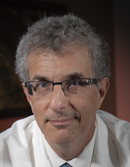
Jonathan Powell is The Bloomberg~Kimmel Professor in Cancer Immunotherapy, an Associate Director of the Bloomberg-Kimmel Institute of Cancer Immunotherapy and Professor of Oncology and Pharmacology at Johns Hopkins University School of Medicine. He received his AB from Dartmouth College and his M.D. Ph.D. from Emory University School of Medicine. His Post-graduate clinical training included the Osler Internal Medicine Residency Program at Johns Hopkins and Fellowship training in Hematology-Oncology at The Brigham and Women’s Hospital in Boston and NHLBI at the NIH. While at the NIH Dr. Powell was a post-doctoral fellow in the Laboratory of Dr. Ronald Schwartz. He joined the faculty of Johns Hopkins in 2001. Dr. Powell’s lab is interested in studying the cellular, biochemical and molecular mechanisms surrounding T cell activation, differentiation and tolerance. In elucidating fundamental insight into how the immune system is controlled, the lab has been investigating the role of mTOR and metabolism in immunology. This work established the principle that differential mTOR activation and subsequent metabolic pathway activation define T cell fate decisions. Overall, these studies have provided important insight into devising novel regimens for immunotherapy for cancer, bone marrow transplantation, autoimmune & inflammatory diseases.
September 13th 2019:
James Gulley, M.D., Ph.D.
NCI
“Immunotherapy for Prostate Cancer: Mission Impossible or Possible Path Forward.”
Sponsor: Dr Michael Atkins

Dr. James Gulley is an internationally recognized expert in immunotherapy for cancer. He graduated from Loma Linda University in California with a PhD in microbiology in 1994 and an MD in 1995. As part of this eight-year MD/PhD Medical Scientist Training Program, he completed a dissertation on tumor immunology. He completed his residency in Internal Medicine at Emory University in 1998, followed by a Medical Oncology fellowship at the National Cancer Institute (NCI).
Dr. Gulley serves within the Center for Cancer Research (CCR) of the National Cancer Institute as Chief of the Genitourinary Malignancies Branch (GMB), the Director of the Medical Oncology Service (CCR), and also Head of the Immunotherapy Section within the GMB. He has been instrumental in the clinical development a number of therapeutic cancer vaccines. In addition, he serves as the coordinating Principle Investigator (PI) of several international trials of immunotherapies, one of which led to FDA approval of avelumab (Bavencio), now approved for Merkel Cell carcinoma, bladder cancer and renal cancer. He leads a number of combination immunotherapy studies.
Dr. Gulley has received numerous awards including the Presidential Early Career Award for Scientists and Engineers (PECASE), the highest award bestowed by the US government on outstanding scientists early in their careers. Dr. Gulley serves on many national and NIH boards and committees. He has been an investigator on more than 120 clinical trials, authored more than 250 scientific papers or chapters, serves on a number of editorial boards of scientific journals and has made hundreds of presentations at national / international meetings.
May 3rd 2019:
Brian Rini, M.D.
Cleveland Clinic
“The biology of remission in metastatic renal carcinoma.”
Sponsor: Dr Michael Atkins
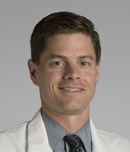
Brian I. Rini, MD is a Professor of Medicine at the Cleveland Clinic Lerner College of Medicine of Case Western Reserve University in Cleveland, Ohio. A staff member of the Department of Solid Tumor Oncology of the Taussig Cancer Institute, Dr. Rini is the Leader of the Genitourinary Malignancies Program.
Dr. Rini earned his medical degree at the Ohio State University College of Medicine in Columbus, Ohio. After completing a residency program in internal medicine at University of Chicago Hospitals in Illinois, Dr. Rini was awarded a fellowship in hematology and oncology at the University of Chicago. Dr. Rini was an Assistant Professor at the University of California San Francisco before moving to Cleveland Clinic.
At Cleveland Clinic, Dr. Rini’s primary research has been in renal cell carcinoma (RCC), with special focus on antiangiogenic therapy and immunotherapy. Dr. Rini’s research has been published in peer-reviewed journals that include the New England Journal of Medicine, Journal of the National Cancer Institute, Journal of Clinical Oncology, Lancet and the Journal of the American Medical Association.
Certified in Medical Oncology by the American Board of Internal Medicine, Dr. Rini is active in numerous professional organizations including ASCO, the Society for Immunotherapy of Cancer (SITC) and is Chair of the Oncologic Drugs Advisory Committee (ODAC).
April 26th 2019:
Minetta Liu, M.D.
Mayo Clinic
“Development and Translation of Circulating Biomarkers in Oncology.”
Sponsors: Drs Claudine Isaacs and Robert Clarke

Minetta C. Liu, MD, is a breast medical oncologist and translational researcher at the Mayo Clinic in Rochester, MN, where she holds dual appointments in the Department of Oncology and the Department of Laboratory Medicine and Pathology. Her primary research focus is on the efficient advancement of novel therapeutics and the development of reliable predictors of systemic treatment response. As such, she leads several research trials with both clinical and correlative laboratory endpoints. She holds the academic rank of Professor of Oncology from the Mayo Clinic College of Medicine.
Dr. Liu is Chair of Research for the Department of Oncology, a member of the Mayo Clinic Research Committee, Institutional Principal Investigator for the Translational Breast Cancer Research Consortium, Associate Medical Director for the Department of Development, and Medical Director for the Office of Specialty Contracts and Collaborations. She also serves on the Breast Committee for the Alliance and leads the Circulating Biomarker Working Group for the NIH Translational Research Program. As an internationally recognized expert in the field of circulating biomarker research, Dr. Liu directs a laboratory focused on expanding the clinical applications and advancing related technologies. She is dedicated to improving patient outcomes through access to novel therapeutic agents and molecular diagnostic tools.
April 12th 2019:
Judy E. Garber, M.D.
Dana-Farber Cancer Institute
“Updates in Cancer Genetics.”
Sponsor: Dr Claudine Isaacs
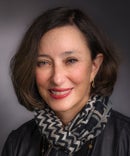
Dr. Garber is the Susan F. Smith Chair and Chief of the Division of Cancer Genetics and Prevention at Dana-Farber Cancer Institute and a Professor of Medicine at Harvard Medical School. She conducts research in clinical cancer genetics, with a special focus in the genetics of breast cancer. She has played a major role in the development of national guidelines in cancer genetics. Dr. Garber is also a leader in research into the characteristics and treatment of triple negative or basal-like breast cancer, the most common form in women with BRCA1 mutations and an expert in Li-Fraumeni Syndrome. Her translational research focuses on the evaluation of novel agents targeting DNA repair defects in breast cancer, including PARP inhibitors for treatment and prevention of breast cancer and other BRCA-associated cancers.
Dr. Garber is a past president of the American Association for Cancer Research (AACR). She serves on the National Cancer Advisory Board of the National Cancer Institute and was elected into the National Academy of Medicine in 2013. She also serves as the Co-Scientific Director of the Breast Cancer Research Foundation and past chair of the Breast Cancer Research Foundation Scientific Advisory Board. She is an ASCO Statesman and a Fellow of the AACR Academy.
April 5th, 2019:
Marc Lippman, M.D.
Lombardi Comprehensive Cancer Center
Breast Cancer Program
“RAGE and its ligands: A pathway which leads from the environment to breast cancer progression.”
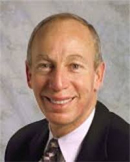
Marc E. Lippman, M.D., MACP FRCP is a Professor of Oncology at Georgetown University. Before that he was the Kathleen and Stanley Glaser Professor of Medicine at the University of Miami Leonard M. Miller School of Medicine, and was Chairman of the Department of Medicine from May 2007 to May 2012. He was also deputy director of the Sylvester Comprehensive Cancer Center. Previously Dr. Lippman was the John G. Searle Professor and Chair of Internal Medicine at the University of Michigan, Ann Arbor, Michigan. From 1988 through 2000 Dr. Lippman was Professor of Medicine and Pharmacology, and Chair, Department of Oncology at Georgetown University in Washington, D.C., and served as Director of the Lombardi Cancer Center at Georgetown University Medical Center. From 1978 through 1990 he was Clinical Professor of Medicine and Pharmacology, Uniformed Services, University of the Health Sciences. Dr. Lippman served as Head of the Medical Breast Cancer Section, Medicine Branch, at the National Institute of Health.
Dr. Lippman completed a Fellowship in Endocrinology at Yale Medical School in New Haven, CT from 1973-1974. In addition, he was Clinical Associate at the National Cancer Institute from 1970-1971 and Clinical Associate at the Laboratory of Biochemistry of the National Cancer Institute of the National Institute of Health. From 1970 to 1988 he served as an Officer and Medical Director in the United States Public Health Service. Dr. Lippman completed his residency on the Osler Medical Service, John Hopkins Hospital, in Baltimore, Maryland from 1968-1970.
A native of New York, Dr. Lippman received his Bachelor’s Degree from Cornell University, Magna Cum Laude, and medical school degree at Yale Medical School in New Haven, CT where he was elected to AOA.
Dr. Lippman is known for his research in breast cancer. He has received numerous awards including: Meritorius Service Medal, USPHS in 1987; Clinical Investigator Award, American Federation for Clinical Research in 1985; D.R. Edwards Lecture and Medal, Tenovus Institute, Wales 1985; Transatlantic Medal and Lecture, British Endocrine Societies, 1989; the Tiffany Award of Distinction, Komen Foundation in 1989; the Astwood Award, Endocrine Society, 1991; the Bernard Fisher Award and Lectureship, University of Pittsburgh in 1991. He also has been the recipient of the First William P. McGuire Memorial Lecture, San Antonio, TX in 1992, and the Howard University Outstanding Achievement Award in 1993. He also received the First American Cancer Society Lectureship and Prize and the AACR Rosenthal Award of the AACR in April 1994, and the Brinker Award for Basic Science of the Komen Foundation in 1994.
His research has been devoted to a better understanding of breast cancer his entire life. He has contributed to studies ranging clinical trials for every stage of breast cancer to basic biology. Most recently he has been exploring the biological links between systemic health issues such as depression, obesity, diabetes and inflammation and occurrence and recurrence of breast cancer; issues which are particularly relevant to many underserved minorities.
Dr. Lippman is a member of the Association of American Physicians, the American Society for Clinical Investigation, the American Association for Cancer Research, and the American Society of Clinical Oncology. He has recently received the honor of becoming a Master of the American College of Physician and was elected Fellow of the Royal College of Physicians of England.
March 29th 2019:
Glenn Merlino, Ph.D.
NCI
“Modeling the Initiation, Progression, and Treatment of Human Melanoma in the Mouse.”
Sponsor: Dr Michael Atkins
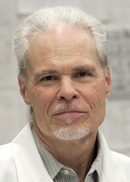
The overarching goal of Dr Merlino’s research program is to elucidate the complex molecular/genetic programs governing melanoma genesis, progression and therapeutic response. His approach is centered on building and employing genetically engineered mouse models of cutaneous malignant melanoma, a highly aggressive disease often resistant to conventional therapy. Specifically, his aim is to uncover mechanisms associated with UV-mediated induction of melanoma and its progression to the metastatic state, and to determine how advanced melanomas survive and develop resistance to pathway-targeted and immune-based therapies in order to devise improved strategies to prevent their recurrence. Dr Merlino’s research career includes contributions in the areas of receptor tyrosine kinase signaling, oncogenic transformation, transcriptional regulation, cell cycle regulation, drug resistance and genomic instability. As a postdoctoral fellow under NCI’s Dr. Ira Pastan, Dr Merlino was the first to report the amplification/rearrangement of the EGFR proto-oncogene in human cancer, and as a young independent investigator was among the first to show that growth factors could function in vivo as oncogenes using transgenic mouse models. With long time George Washington University collaborators Drs. Frances Noonan and Ed DeFabo his group also developed the first human-like mouse melanoma model, and provided the first experimental evidence supporting the notion that childhood sunburn is a critical melanoma risk factor. In summary, a career’s worth of training and a superb research environment have provided an extraordinary opportunity to pursue experimental goals that may afford novel mechanistic insights into the genesis and progression of melanoma, and improve the care of patients who suffer from it.
March 22nd 2019:
The Rennert Memorial Lecture
David Malkin, M.D.
University of Toronto
“Li-Fraumeni Syndrome: Is Early Cancer Detection and Prevention Possible?”
Sponsor: The Ian Peter Endowed Lecture, Dr. Jeffrey Toretsky

Dr. Malkin is currently a clinician-scientist and pediatric oncologist in the Division of Hematology/Oncology, Director of the Cancer Genetics program and Associate Chief of Research (Clinical) in the Research Institute at The Hospital for Sick Children, and a Professor in the Departments of Pediatrics and Medical Biophysics, University of Toronto. As a Senior Scientist in the Genetics and Genomic Biology Program in the SickKids Research Institute, his research program is primarily focused on genetic mechanisms of childhood cancer susceptibility, and the genetic basis of childhood sarcomas. His research team was the first to demonstrate that highly variable regions of DNA, termed copy number variations, are found in excess in the blood of some people, both children and adults, at very high risk of developing cancer, and may represent the earliest genetic changes that ultimately lead to development of cancer. Dr. Malkin has published widely in the fields of cancer genetics and sarcoma biology and has a long-standing interest in developing guidelines for the clinical application of molecular genetic testing to the setting of childhood cancer susceptibility. He is a Board Member of several national and international cancer and research agencies, and serves on numerous national and international research grant agency panels. He is also Medical Director of Camp Oochigeas – a recreational camp for children with cancer in Ontario.
March 15th 2019:
Cigall Kadoch, Ph.D.
Dana-Farber Cancer Institute
“Structure and Function of Mammalian SWI/SNF Chromatin Remodeling Complexes in Human Cancer.”
Sponsor: Dr Jeffrey Toretsky
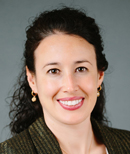
Cigall Kadoch, Ph.D. is an Assistant Professor of Pediatric Oncology at the Dana-Farber Cancer Institute, Affiliate Faculty of Biological Chemistry and Molecular Biology at Harvard Medical School, and Institute Member and Epigenomics Program Co-Director at the Broad Institute of MIT and Harvard.
She established her independent laboratory in 2014, at age 28, one of the youngest scientists ever appointed to the Harvard Medical School faculty, immediately following completion of her Ph.D. studies in Cancer Biology at Stanford University working with developmental biologist Gerald Crabtree. She has quickly become a leading expert in chromatin and gene regulation and is internationally recognized for her groundbreaking studies in these areas. Specifically, her laboratory studies the structure and function of chromatin remodeling complexes such as the mammalian SWI/SNF (or BAF) complex, with emphasis on defining the mechanisms underlying cancer-specific perturbations. Of note, the recent surge in exome- and genome-wide sequencing efforts has unmasked the major, previously unappreciated contribution of these regulators to malignancy: indeed, the genes encoding subunits of mammalian SWI/SNF complexes are mutated in over 25% of human cancers.
In addition to receiving numerous prestigious awards and research grants to support her academic laboratory at Harvard, including the NIH Director’s New Innovator Award, the Pew Scholar Award, and the American Cancer Society Research Scholar Award, among many others, she was named to the Forbes 2014 30 Under 30 list, MIT Technology Review 35 Innovators Under 35, Popular Science Brilliant 10 of 2016 and most recently, Business Insider’s Top 30 Young Leaders in Biopharma.
March 1st 2019:
Robert Sobol, Ph.D.
University of South Alabama
“Advancing base excision repair mechanistic insight to reveal new targets in cancer treatment”
Sponsor: Dr Rabin Roy
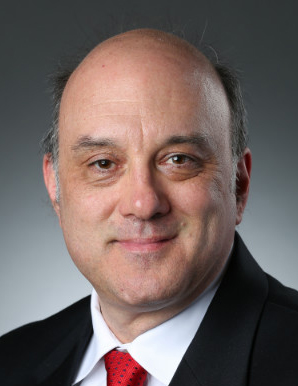
Dr. Sobol is a Professor in the Departments of Oncologic Sciences and Pharmacology at the University of South Alabama (USA) and is the Chief of the Molecular & Metabolic Oncology Program at the USA / Mitchel Cancer Institute. In addition, Dr. Sobol is the Director of the Gene Expression, Engineering and Discovery (GEED) lab, a core facility for the development of lentiviral vectors for gene expression (cDNA, shRNA), gene editing (CRISPR) and gene discovery. Research in the Sobol lab focuses on the mechanism of base excision repair, PARP and NAD+ metabolism in human cells and the convergent role of these enzymes and pathways in response to chemotherapy. A major goal in the lab is to use biochemical, genetic and imaging modalities to study the protein complexes of the base excision repair pathway that respond to DNA damage induced by chemotherapy and how this pathway affects the regulation of cellular metabolism via ADPribosylation signaling and alterations in NAD+ metabolism. The Sobol lab has extensive experience in the field of DNA Damage & Repair, poly(ADP-ribose) signaling and NAD+ metabolism, the genetic manipulation of cells in culture, genetic and epigenetic analysis of tumor cells, development and phenotypic characterization of transgenic cells, RNA interference, virus production and viral transduction of human cells, molecular cloning of mouse and human cDNAs, DNA damage and repair assays, cell culture, cell cytotoxicity assays and PCR so as to effectively conduct and participate in these studies. Major techniques used in the Sobol lab involves the analysis of cellular response to stress, with an emphasis on cell death and the DNA damage response, the manipulation of cells in culture using lentivirus for cDNA expression, RNA interference (shRNA) or gene Knock-out & Knock-in (CRISPR) and the development of stable, isogenic cell lines. Further, the lab focuses on the genetic and epigenetic analysis of cells and tissue in response to DNA damage (chemotherapy) and DNA repair inhibition or defects.
February 22nd 2019:
David Tuveson, M.D., Ph.D.
Cold Spring Harbor
“Pancreatic Biology and Medicine.”
Sponsor: Dr Anton Wellstein

David Tuveson completed chemistry at M.I.T., an MD-PhD at Johns Hopkins, medical residency at Brigham and Women’s Hospital and a medical oncology fellowship at Dana-Farber/Harvard. While training, Dr. Tuveson co-developed KIT inhibitors with George Demetri for gastrointestinal stromal tumors, and Kras-dependent mouse cancer models with Tyler Jacks. At the University of Pennsylvania his lab generated the first mouse models of ductal pancreatic cancer, and at the University of Cambridge they identified new therapies. At Cold Spring Harbor Laboratory they developed organoid models of pancreatic cancer with Hans Clevers, enabling basic discoveries and clinical findings including signatures of “common responders” to chemotherapy. Dr. Tuveson is the Chief Scientist of the Lustgarten Foundation for pancreatic cancer research, Cancer Center Director and Roy J. Zuckerberg Professor at CSHL, and serves on the BSA of the NCI, the SAC of SU2C and the BoD of AACR. Awards include the Rita Allen, Waldenstrom and Hamdan.
February 8th 2019:
Wendy Demark-Wahnefried, Ph.D.
University of Alabama at Birmingham
“Weight Management and Cancer Prevention and Control.”
Sponsor: Dr Marc Schwartz
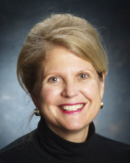
Wendy Demark-Wahnefried, PhD, RD is Professor and Webb Endowed Chair of Nutrition Sciences at the University of Alabama at Birmingham. Her research ranges from determining mechanisms of action of nutrition-based therapies that are implemented presurgery to developing and testing interventions that are scalable and which improve diet, physical activity and functional status among cancer survivors in broad geographic regions. To date, this research has been supported by 12 NIH grants and has resulted in close to 300 peer-reviewed publications. Dr. Demark-Wahnefried has been recognized as a Komen Professor of Survivorship and an American Cancer Society Clinical Research Professor. She has served on several committees, including the National Cancer Policy Forum of the National Academy of Sciences and the guidelines panels of the American Cancer Society, the World Cancer Research Fund, the American College of Sports Medicine, and the American Society of Clinical Oncology.
February 1st, 2019:
Marta Catalfamo, Ph.D.
Lombardi Comprehensive Cancer Center
Molecular Oncology Program
“Immunopathogenesis of HIV infection.”

Dr Catalfamo trained as immunologist with a strong interest in human diseases, and her research has been focused on understanding the mechanisms driving immune activation in HIV infection, the main player in the immunopathogenesis of the disease. Her work has delineated clear differences in the activation pathways of CD4 and CD8 T cell pools in patients with HIV infection (Catalfamo et al. 2008). Recently, her group developed a murine model of immunopathogenesis of HIV infection and identified the molecular pathways linking interactions between IL-7 and Type I IFNs, cytokines associated with CD4 T cell depletion and HIV replication respectively (Le Saout et al, 2014, Le Saout 2017). These studies led to the novel observation that there is an increased proportion of CD8 T cells from HIV infected patients that express the thrombin receptor (PAR1). Thrombin in a PAR1 dependent fashion enhanced two important characteristics of CD8 T cells necessary to perform effector function, chemokinesis and cytokine secretion (Hurley 2013, Green SA, 2015). This novel observation linking coagulation and inflammation and T cells has important implications in immune surveillance, inflammation and tissue repair. She has extensive experience in translational science from working with HIV infected patients to develop experimental protocols in SIV infection to test new immunotherapies. This experience, combined with her expertise in T cell biology, has provided a unique set of skills for the development and translation of new immunotherapeutic approaches to treat HIV infection.
January 25th, 2019:
Dejana Braithwaite, Ph.D.
Lombardi Comprehensive Cancer Center
Cancer Prevention & Control Program
“Cancer Screening in the Elderly in the Era of Precision Medicine.”
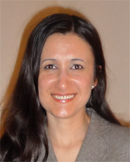
Dejana Braithwaite, PhD, FRS (Med), is an Associate Professor of Oncology at Georgetown University Medical Center. Her research into the impact of comorbid conditions on cancer screening and outcomes serves as a model for improving clinical decision-making. Dr. Braithwaite has advised Cancer Research UK and the American Cancer Society, among others. Dr. Braithwaite received her PhD in Epidemiology from Cambridge University, her postdoctoral training in cancer epidemiology at the University of California, San Francisco, and was elected into the Royal Society of Medicine (UK) for her accomplishments in the field of cancer screening and epidemiology.
January 11th, 2019:
Tom Misteli, Ph.D.
NIH
“Deep Imaging of the Human Genome.”
Sponsor: Dr. Louis Weiner
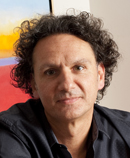
Tom Misteli is an NIH Distinguished Investigator and the Director of the Center for Cancer Research at the National Cancer Institute, NIH. He is an internationally renowned cell biologist who pioneered the use of imaging approaches to study genomes and gene expression in living cells. His laboratory’s interest is to uncover the fundamental principles of 3D genome organization and function and to apply this knowledge to the development of novel diagnostic and therapeutic strategies for cancer and aging. He obtained his PHD from the University of London, UK and performed post-doctoral training at the Cold Spring Harbor Laboratory. For his work he has received numerous awards including the Herman Beerman Award, the Wilhelm Bernhard Medal, the Gold Medal of the Charles University, the Flemming Award, the Gian-Tondury Prize, the NIH Director’s Award, and an NIH Merit Award. He acts as an advisor for numerous national and international agencies and serves on several editorial boards including Cell, Science and PLoS Biology. He is the Editor-in-Chief of Current Opinion in Cell Biology.
December 14th, 2018:
Rafael Meza, Ph.D.
University of Michigan
“Lung cancer screening in the US: where are we and where should we go from here? Lessons from simulation modeling studies.”
Sponsors: Dr. David Levy and Dr. Kenneth Tercyak
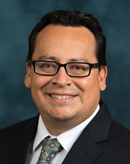
Dr. Meza is associate professor in the Department of Epidemiology at the University of Michigan School of Public Health and co-leader of the Cancer Epidemiology and Prevention Program at the University of Michigan Rogel Cancer Center. He is also Honorary Professor at Mexico’s National Institute of Public Health (INSP).
Dr. Meza’s research interests lie at the interface of epidemiology, biostatistics and biomathematics. In particular, his research focuses on cancer risk assessment and on the applications of mathematical modeling and decision theory in cancer epidemiology and prevention and public health policy. Dr. Meza is Coordinating Principal Investigator of the Cancer Intervention and Surveillance Modeling Network (CISNET) lung group, and Principal Investigator, with Dr. David Levy, of the UM/Georgetown Center for the Assessment of the Public Health Impact of Tobacco Regulations.
December 7th, 2018:
Jennifer Wargo, M.D.
MD Anderson
“Novel insights into response to cancer therapy vis translational research.”
Sponsor: Dr Michael Atkins
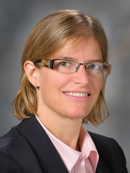
Dr. Wargo’s career commitment is to advance the understanding and treatment of disease through science. After completing her medical degree, she entered surgical residency training at the Massachusetts General Hospital/Harvard Medical School where she became interested in the biology and treatment of cancer. During her training, she completed two fellowships in surgical oncology and immunotherapy for cancer (with Dr. Toni Ribas and Dr. Steve Rosenberg). Dr. Wargo was recruited to the Division of Surgical Oncology at the Massachusetts General Hospital in July 2008, and ran an active research laboratory focusing on the interface between oncogenic mutations and anti-tumor immunity. There, she made the critical observation that targeting oncogenic mutations could make tumors more immunogenic, providing the rationale for combining targeted therapy and immunotherapy in the treatment of cancer. In September 2013, Dr. Wargo was recruited by University of Texas MD Anderson Cancer Center to help lead the Melanoma Moon Shot program. She is currently an Associate Professor of Surgical Oncology and Genomic Medicine, and has continued her critical research to better understand responses to therapy and to develop novel strategies to combat resistance. This includes her groundbreaking recent work elucidating the role of the gut microbiome in shaping responses to immunotherapy in patients with melanoma – with a manuscript describing this work published in Science.
Dr. Wargo has contributed significantly to the world literature with her impactful research on melanoma tumorigenesis / immunotherapy for cancer and the gut microbiome having published over 140 peer-reviewed manuscripts and extensive grant funding (including R01 funding). She is also the recipient of numerous awards, including the Rising STARS and Regents Health Scholars Award, Outstanding Young Investigator Award, Stand up to Cancer / AACR Innovative Research Award, Society for Melanoma Research Outstanding Investigator Award, Best Boss Award, among others. She is recognized internationally as a leader in cancer research, and is leading innovative efforts globally.
November 16th, 2018:
Anirban Maitra, M.B.B.S.
MD Anderson
“Emerging targets in the pancreatic cancer genome.”
Sponsor: Dr. Anton Wellstein
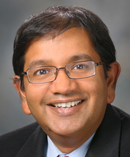
Dr. Anirban Maitra is Professor of Pathology and Translational Molecular Pathology, Sheikh Khalifa Bin Zayed Al Nahyan Distinguished University Chair, and Scientific Director of the Sheikh Ahmed Center for Pancreatic Cancer Research at the University of Texas MD Anderson Cancer Center in Houston, Texas. He is an expert in pancreatic cancer, a disease that is the most lethal of all solid cancers and where he has made seminal contributions in understanding the molecular alterations that underlie cancer initiation and progression. His laboratory has made important strides in the application of liquid biopsy for longitudinal monitoring of pancreatic cancer patients, in particular, demonstrating the value of circulating exosomes in therapeutic stratification and monitoring for disease recurrence.
November 9th, 2018:
Susan Vadaparampil, Ph.D.
Moffitt Cancer Center
“The Road to Equity in Genetic Counseling and Testing in Breast Cancer: Moving from Observation to Intervention.”
Sponsors: Dr Kristi Graves

Dr. Susan Vadaparampil received Bachelor’s and Master’s degrees in Health Science Education from the University of Florida, an M.P.H. in Epidemiology from Johns Hopkins University and a Ph.D. in Health Behavior from Indiana University. She then completed a postdoctoral fellowship in Cancer Prevention at the National Cancer Institute. In 2003, she joined the faculty of Moffitt Cancer Center where she is currently a Senior Member and Vice Chair of the Health Outcomes and Behavior Program in the Division of Population Sciences. She is also Professor in the Department of Oncologic Sciences at the University of South Florida College of Medicine. She currently serves as the Associate Director for Moffitt Cancer Center’s Behavioral Oncology Post Doctoral Training Program. Over the past 15 years, Dr. Vadaparampil has developed a research program applying behavioral science, epidemiology, health services, and clinical perspectives to improve utilization of cancer prevention and control innovations across the cancer continuum. Her work has been influenced by transdisciplinary collaboration, focused on health disparities, and contributed to both the scientific literature and clinical practice. She has been funded since 2006 through research grants from organizations such as the National Institutes of Health and the American Cancer Society. Dr. Vadaparampil has published over 200 scientific manuscripts. She recently completed her term as chair of the American Cancer Society’s Cancer Control and Prevention Research Peer Review Committee and is a member of the Florida Biomedical Research Advisory Council. Dr. Vadaparampil also partners with several community organizations dedicated to reducing the burden of cancer.
November 2nd, 2018:
Jason Butler, Ph.D.
Hackensack University Medical Center
“Targeting endothelial niches to treat age-related hematopoietic dysfunction.”
Sponsor: Dr. Jeffery Toretsky

Dr. Jason Butler obtained his B.S. in Zoology from the University of Florida in 2001 and continued his graduate education at UF where he completed his Ph.D. in 2006 studying stem cell biology. Dr. Butler completed his postdoctoral fellowship in stem cell and vascular biology at Weill Cornell Medical College in the laboratory of Shahin Rafii. Since 2011, Dr. Butler has been an independent investigator at the Ansary Stem Cell Institute at Weill Cornell and recently became an Associate Scientist at Hackensack University Medical Center (HUMC) and is a founding member of the newly developed Center of Discovery and Innovation located on the previous Hoffman-LaRoche research campus in Nutley, NJ. In addition to being part of the research faculty at HUMC, Dr. Butler is a full member of both the John Theurer Cancer Center and the Georgetown Lombardi Comprehensive Cancer Center. The Butler laboratory is dedicated to understanding the role of bone marrow endothelial cells (BMECs) in establishing unique instructive vascular niche cells that produce the correct milieu and stoichiometry of paracrine factors to direct organ regeneration, in particular within the BM microenvironment and in the context of hematopoietic aging and regeneration. The Butler laboratory is developing novel therapeutic applications and justification for the transplantation of BMECs to enhance the regeneration of the BM microenvironment. The Butler laboratory has set forth the notion that reconstitution of hematopoiesis along with an increase in the stability and integrity of newly formed vessels allows for an inductive mechanism to promote tissue repair and multi-organ regeneration. The laboratory’s research goals aim to have a significant and positive impact on decreasing the morbidity and mortality associated with life threatening pancytopenia that is associated with hematopoietic dysfunction.
October 19th, 2018:
Robert B. Dickson Memorial Lecture
Claudine Isaacs, M.D.
Georgetown University Medical Center
“Advances in the management of hereditary breast cancer.”
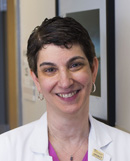
Dr. Claudine Isaacs is Professor of Medicine and Oncology and Co-Director of the Breast Cancer Program at the Lombardi Comprehensive Cancer Center at Georgetown University, Washington, D.C., USA. She is also Medical Director of the Jess and Mildred Fisher Center for Hereditary Cancer and Clinical Genomics Research. She received her medical degree and internal medicine residency training at McGill University, in Montreal Canada. She completed fellowship training in the Division of Hematology and Oncology at McGill University and a Fellowship in Breast Medical Oncology in the Division of Hematology and Oncology at Georgetown University. She then joined the faculty in the Department of Medicine and Oncology at Georgetown University.
She has served as the PI of a number of clinical trials in early-stage and metastatic breast cancer, and as PI or co-investigator on a number of peer reviewed grants including those examining the role of novel screening or prevention measures in high-risk women. She has authored over 200 peer-reviewed publications and edited two textbooks. She has a long history of mentoring junior faculty and fellows and recently received the Estelle Ramey Mentorship Award. She has served on a number of committees, including the Cancer Education Committee at the American Society of Clinical Oncology (ASCO), the ASCO Scientific Program Committee, the Breast Oncology Local Diseases Task Force of the Breast Steering Committee of the National Cancer Institute, and most recently the ASCO Breast Cancer Advisory Group to Clinical Practice Guidelines Committee.
October 12th, 2018:
Douglas Yee, M.D.
University of Minnesota
“Did We Learn Anything By Targeting The IGF Receptor In Breast Cancer?”
Sponsors: Dr Lou Weiner and Dr Michael Johnson
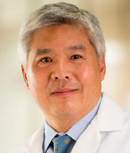
Dr. Yee is director of the Masonic Cancer Center, University of Minnesota. A professor in the Departments of Medicine and Pharmacology, Dr. Yee holds the John H. Kersey Chair in Cancer Research. He is internationally known for his laboratory research on the growth regulation of tumors by the insulin-like growth factors and the clinical translation of these findings. Dr. Yee’s curriculum vitae includes well over 230 publications. He also maintains an active clinical practice in breast medical oncology at the Breast Center, University of Minnesota Medical Center.
Dr. Yee graduated from the University of Michigan in Ann Arbor, earned his medical degree from the University of Chicago, and completed his residency in internal medicine at the University of North Carolina in Chapel Hill and completed his fellowship in medical oncology at the National Cancer Institute in Bethesda, MD. Before coming to the University of Minnesota, he held faculty positions in the Lombardi Cancer Center at Georgetown University in Washington, D.C., and at the University of Texas Health Science Center in San Antonio.
October 5th, 2018:
Andrea Bild, Ph.D.
City of Hope
“Single cell phenotype evolution in breast cancer during treatment.”
Sponsor: Dr Claudine Isaacs

Dr Bild’s research program focuses on cancer, and uses genomic and pharmacological studies to interrogate and treat cancer. As a member of NCI’s Cancer Systems Biology Consortium, the Center of HoPE (Heterogeneity of Phenotypic Evolution) is developing a suite of systems-based methodologies to understand how genomic diversity, clonal evolution, and phenotypic change interact in the progression toward chemoresistant breast and ovarian cancer. Their studies show that selective pressures from therapy and the tumor microenvironment can propel subclones from a patient’s tumor along an evolutionary trajectory that leads to resistance. In particular, they use single cell RNA and whole genome DNA sequencing to identify tumor subclones and their phenotype as tumor cells acquire resistance to chemotherapy. They also develop dynamical systems models to identify points of therapeutic vulnerability that they will test in clinical trials aimed at blocking evolution to a resistant state. By integrating broad disciplines centered on translational sciences, and ensuring that they include multiple ethnicities in our research, they promote innovative scientific exploration and enable scientists to tether clinically impactful results to the enhancement of an individual patient’s care.
September 21st, 2018:
Paula Cupertino, Ph.D.
Hackensack University Medical Center
“Population Health Interventions using Technology to Address Tobacco-Related Disparities”
Sponsor: Dr. Kenneth Tercyak
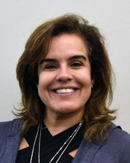
Dr. Cupertino is the Associate Director of the Cancer Prevention and Control Program and the Director of the Latino Cancer Disparities Center at The John Theurer Cancer Center, part of Hackensack University Medical Center. Moreover, she is the Director of Community Educational Experiences at Hackensack Meridian School of Medicine at Seton Hall University. She is also the founder of JUNTOS Center for Advancing Latino Health (http://juntosks.org), part of the Preventive Medicine and Public Health Department at the University of Kansas Medical Center. As a social and behavioral scientist, her research has included studies related to cancer prevention, including smoking cessation and access to cessation treatments among underserved and understudied populations; health disparities; immigrant health; and e-Health initiatives. She has expertise in the development and implementation of research projects that incorporate cultural appropriateness and principles of community-based participatory research. Originally from Brazil, her cancer prevention research has expanded to Mexico, Brazil, Costa Rica, Guatemala, and the United States.
Over the past 15 years, she has developed a National Institutes of Health (NIH)-funded career in health disparities research. This began with a post-doctoral National Cancer Institute (NCI) diversity research supplement, that led to receipt of a NCI K-01 minority research career development grant, and most recently culminated in site leadership on a National Institute on Minority Health and Health Disparities (NIMHD)-funded R24 project designed to implement the “Health for All Model” in the Kansas City Latino community. She is currently implementing a NHI R01 randomized clinical trial assessing a text message-based smoking cessation program for Latinos in the United States.
September 14th, 2018:
Ethan Dmitrovsky, M.D.
Frederick National Lab for Cancer Research
“Eradicating Aneuploid Cancers by Engaging Anaphase Catastrophe.”
Sponsors: Dr Louis Weiner
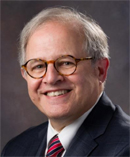
Ethan Dmitrovsky, M.D., became Laboratory Director of the Frederick National Laboratory for Cancer Research and President of Leidos Biomedical Research in 2017. This National Laboratory combats AIDS, cancer, infectious diseases and emerging health challenges. He oversees this national resource that serves the public’s health. Examples of this include finding ways to target the RAS oncogene (an unmet medical need) and producing vaccines and leading clinical trials to combat Ebola, Zika and other deadly diseases. He previously served as provost and executive vice president as well as the Olga Keith and Harry Carothers Weiss Distinguished University Chair and American Cancer Society Professor at The University of Texas MD Anderson Cancer Center. Before joining MD Anderson, he chaired the Pharmacology and Toxicology Department and was Interim Dean at the Geisel School of Medicine at Dartmouth. He also served as chair of the Board of Scientific Counselors for Clinical Sciences and Epidemiology for the National Cancer Institute.
At MD Anderson, Dr. Dmitrovsky oversaw robust undergraduate and graduate programs and more than 4,000 clinical trials. He also served as Principal Investigator of their National Institutes of Health-funded Cancer Center Core Grant, MD Anderson’s largest federal grant. In addition, Dr. Dmitrovsky fostered collaborations with 33 sister institutions in 23 countries, including the launching of a pain medicine initiative for cancer patients in Ethiopia, a country of 90 million with few pain specialists. He created a Provost Protégé Program for faculty members of diverse backgrounds, broadened the reach of the Women Faculty Office to add Minority Faculty Inclusion to its mission, and implemented innovative programs to support the training and scholarship of faculty, research nurses, students and fellows. His team also implemented in 100,000 computers a tobacco prevention and cessation program for the Houston Independent school system that will reduce the burden of cancer, lung and heart diseases in at-risk students and staff. His trailblazing translational research established successful all-trans-retinoic acid differentiation therapy for acute promyelocytic leukemia that became FDA approved. His laboratory developed and patented the genetic test widely used to diagnose this leukemia and monitor treatment response. He recently uncovered a way to eradicate aneuploid cancers, a hallmark of cancer. This opened a novel area of cancer pharmacology. For these discoveries, he received an American Cancer Society Professorship and the 2016 American Society of Clinical Oncology and American Cancer Society Award.
Dr. Dmitrovsky graduated magna cum laude in Biochemical Sciences from Harvard University and received his medical degree from Cornell University. He completed his residency in internal medicine at New York Hospital-Memorial Sloan-Kettering Cancer Center and oncology fellowship at the National Cancer Institute. He is a physician-scientist and oncologist who directs a laboratory focused on molecular pharmacology and has been continuously funded by the National Institutes of Health throughout his career. Dr. Dmitrovsky is a member of the American Society for Clinical Investigation (ASCI), the Association of American Physicians (AAP) and a fellow of the American Association for the Advancement of Science (AAAS).
September 7th, 2018:
Goutham Narla, M.D., Ph.D.
University of Michigan
“Allosteric regulation of PP2A: lessons from cancer mutants and small molecules.”
Sponsors: Dr Chris Albanese
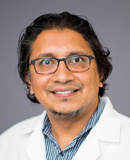
Goutham Narla, M.D., Ph.D., is an Associate Professor of Medicine with Tenure, and the Division Chief of Genetic Medicine at the University of Michigan. His laboratory is focused on the identification and characterization of the key negative regulators, tumor suppressor proteins, of cancer development and progression. In addition, his laboratory is focused on developing small molecule based therapies to these underlying drivers of tumorigenesis and chemotherapy resistance. His accolades as a principal investigator include the Howard Hughes Medical Institute Physician-Scientist Early Career Award, and the Irma T. Hirschl / Monique Weill-Caulier Trust Scholar Award. He has over 65 publications in journals including Nature Genetics, Science, Science Translational Medicine, Proceedings of the National Academy of Sciences and the Journal of Clinical Investigation. Dr. Narla has authored 11 patents. He is one of the scientific co-founders of RAPPTA therapeutics and serves as the chief scientific officer of the company. These novel small-molecule tumor suppressor gene activators represent the first example of drugs that directly bind and activate tumor suppressor genes for cancer treatment and provide the mechanistic and translational framework/foundation to develop entire classes of drugs directed at the key negative regulators of oncogenic signaling, an area that to date has not been the focus of major drug development efforts. He is a practicing high risk cancer geneticist who sees over 400 high risk cancer patients a year. He has been recently inducted into the American Society of Clinical Investigation (ASCI) and has worked with the past president Vivian Cheung and Melanie Daub from the Howard Hughes Medical Institute to organize the food and science evening at the annual ASCI meeting. He is the founder and president of the Young Scientist Foundation (www.ysf.org) which supports high school students to perform biomedical research in laboratories throughout the country. This work resulted in a recent NIH R25 grant to support continuing efforts and this program.
June 8th, 2018:
Rennert Memorial Lectureship in Pediatric Oncology
Kimberly Stegmaier, M.D.
Dana-Farber Cancer Institute
“Identification of Pediatric Cancer Therapeutic Targets with Chemical and Functional Genomic Screening”
Location: W. Proctor Harvey Clinical Teaching Amphitheater

Kimberly Stegmaier, an Associate Professor of Pediatrics at Harvard Medical School and the Ted Williams Chair at Dana-Farber Cancer Institute (DFCI), has advanced the application of genomics to drug and protein target discovery for pediatric cancers. She is the Vice Chair for Pediatric Oncology Research and Co-director of the Pediatric Hematologic Malignancy Program at the Dana-Farber Cancer Institute and Boston Children’s Hospital. Dr. Stegmaier is also an Institute Member of the Broad Institute of Harvard and MIT.
The Stegmaier laboratory develops and integrates chemical and functional genomic approaches to identify new protein targets and small-molecule modulators of malignancy with an eye toward clinical translation. The laboratory has focused on pediatric malignancies notable for the aberrancy of differentiation and/or oncogenic activation of transcription factors: the acute leukemias, neuroblastoma, and Ewing sarcoma. Multiple clinical trials have resulted from her laboratory’s research. Dr. Stegmaier has won numerous awards for her work, including the SPR Young Investigator Award, the Sir William Osler Young Investigator Award from the Interurban Clinical Club, a SU2C Innovative Research Grant, the 2016 E. Mead Johnson Award for Research in Pediatrics, an NCI Outstanding Investigator Award and the 2017 St. Baldrick’s Foundation Robert J. Arceci Innovation Award.
Dr. Stegmaier was elected to the Society for Pediatric Research in 2007, the American Society for Clinical Investigation in 2009, and the Association of American Physicians in 2017. She is a strong advocate for pediatric research, serving as a Council Member with the Society for Pediatric Research from 2013-2016 and now as the Chair Elect for the AACR Pediatric Cancer Working Group. She was awarded the A. Clifford Barger Excellence in Mentoring Award from Harvard Medical School for her commitment to training the next generation of pediatric cancer researchers.
Dr. Stegmaier received her undergraduate degree from Duke University, medical degree from Harvard Medical School, and trained in Pediatrics and Pediatric Hematology/Oncology at Boston Children’s Hospital and the Dana-Farber Cancer Institute.
May 11th, 2018:
Patrick Grohar, Ph.D.
Van Andel Institute
” A Bench to Bedside Approach Targeting the EWS-FLI1 Transcription Factor for Ewing Sarcoma.”
Sponsor: Dr. Jeffery Toretsky
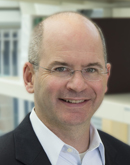
Dr. Patrick Grohar completed his Ph.D. in chemistry in the laboratory of Dr. Christine Chow. He subsequently received an M.D at Wayne State University; graduating with distinction in biomedical research. He then completed a pediatric residency at Johns Hopkins University in the accelerated research track. Dr. Grohar did his fellowship training in pediatric hematology-oncology in the joint program at the National Cancer Institute and Johns Hopkins, serving as chief fellow in his final year. He worked in the lab of the renowned sarcoma expert, Lee Helman, both as a resident and as a fellow. He was subsequently as assistant professor at Vanderbilt University before joining the faculty of the Van Andel Institute as an associate professor in July 2015. He has a clinical appointment at Helen De Vos Children’s Hospital and an academic appointment in the Department of Pediatrics at Michigan State University. Dr. Grohar’s research focuses on methods to block the activity of the EWS-FLI1 transcription factor for Ewing sarcoma. This work has been recognized with multiple grant awards including a St. Baldrick’s research award, a career development award from the Sarcoma Alliance for Research through Collaboration (SARC), a Hyundai Hope on Wheels Award, an Alex’s Lemonade Stand Reach Award, the Turner-Hazinski Award and an R01 from the National Cancer Institute. He serves as an ad hoc reviewer for multiple scientific journals and for the Alex’s Lemonade Foundation. He has lectured extensively on his research in the United States and Europe. Dr. Grohar is a member of the bone tumor steering committee of the Children’s Oncology Group (COG), vice-chair of the Ewing sarcoma biology committee of the Children’s Oncology Group and co-chair of the combined sarcoma biology group.
May 4th, 2018:
Olivier Loudig, Ph.D.
Hackensack University Medical Center
” MicroRNA expression deregulation during breast cancer development.”
Sponsors: Dr. Claudine Isaacs and Dr Robert Clarke

Dr. Olivier Loudig is currently an Associate Scientist at the Hackensack University Medical Center. He earned his Master of Science degree from the Louis Pasteur University in Strasbourg, France in 1997, working at the Institut de Genetique et Biologie Moleculaire et Cellulaire (IGBMC) under the mentorship of Dr. Pierre Chambon. He then received a Ph.D. in Biochemistry at Queen’s University, Ontario, Canada in 2003, working with Dr. Martin Petkovich on the retinoic acid inducible cytochrome p450 responsible for degradation of retinoic acid, for which he described the self-regulatory loop governing the expression of this enzyme. In 2004, he moved to New York City for a post-doctoral fellowship at the Albert Einstein College of Medicine, where he established molecular assays and technologies to analyze highly degraded archived formalin-fixed paraffin-embedded RNA. In 2006, Dr. Loudig entered the rank of faculty at the Albert Einstein College of Medicine and became an Assistant Professor in the Departments of Epidemiology and Pathology in 2008. The laboratory of Dr. Loudig has established large-scale retrospective studies using archived benign breast tissue and non-invasive breast lesions to identify molecular markers, and in particular microRNA expression deregulation, associated with the risk of breast cancer development. Dr. Loudig recently moved his laboratory to Hackensack University Medical Center where he is now studying circulating biomarkers and working closely with clinicians to improve detection and follow-up of breast cancer patients.
April 27th, 2018:
Steven Metallo, Ph.D.
Georgetown University
Department of Chemistry
“Direct targeting of c-Myc: understanding specificity and promiscuity of small-molecule binding to intrinsically disordered protein targets.”

Steven Metallo is an Associate Professor in the Georgetown University Department of Chemistry and a founding member of the Georgetown University Institute for Soft Matter Synthesis and Metrology (ISMSM). He obtained his Ph.D. in chemistry from Yale University (with Alanna Schepartz) where he studied protein-DNA interactions. He then conducted postdoctoral research at Harvard University where he studied multivalency and surface chemistry with George M. Whitesides. Currently his work focuses on disordered proteins, in particular the c-Myc protein, and on understanding the binding of small molecules to disordered protein regions.
April 20th, 2018:
Gray Pearson, Ph.D.
Lombardi Comprehensive Cancer Center
Breast Cancer Program
“Understanding cooperative interactions between tumor cells.”

Understanding how intratumor phenotypic heterogeneity promotes disease progression is essential to improve patient care. Dr Pearson’s research group focuses on the cooperative relationships between distinct tumor subpopulations, which are a critical yet poorly understood property of heterogeneity within tumors. A substantial barrier impeding our understanding of collaborative tumor cell interactions has been the lack of techniques for defining how discrete tumor cell variants interact during tumor development. He has addressed this challenge by developing methods for sophisticated live-imaging and functional interrogation of tumor population dynamics in organotypic culture systems and primary tumor models. With this approach, he uncovered a new symbiotic relationship between tumor subpopulations that promotes a transition from benign to malignant growth by inducing the collective invasion of cohesive groups of cells. This democratization of invasive behavior through subpopulation cooperation eliminates a bottleneck in tumor evolution, thus unleashing the metastatic potential of a more diverse tumor cell population. Extensive phenotypic variability within the invasive tumor cell community may negatively impact patient outcome by accelerating the progression to metastatic disease. Indeed, his functional dissection of this new form of tumor cell cooperation has revealed fresh approaches for improving the accuracy of patient diagnosis and uncovered previously unrecognized therapeutic targets with associated sensitivity signatures. His future objectives are to (i) continue defining the composition and function of signaling pathways that promote cooperative collective invasion; (ii) investigate how cancer hallmarks can be shared by tumor cells in synergistic relationships; and (iii) determine how population diversity influences tumor responses to conventional therapeutics and emerging approaches that harness the power of the immune system.
April 13th, 2018:
Ian Davis, M.D., Ph.D.
University of North Carolina at Chapel Hill
“Chromatin Accessibility as a Strategy to Explore Human Cancer.”
Sponsor: Dr. Jeffrey Toretsky

Ian Davis is the G. Denman Hammond Associate Professor for Childhood Cancer in the Departments of Pediatrics and Genetics at the University of North Carolina at Chapel Hill. Dr. Davis earned a B.A. in biochemistry, cell and molecular biology from Northwestern University, a Ph.D. in genetics from the University of Illinois at Chicago (with Lester Lau) and an MD from Northwestern University Medical School. He then served as a resident and chief resident in medicine at Boston Children’s Hospital followed by subspecialty training in pediatric hematology/oncology at Dana-Farber Cancer Institute and Boston Children’s Hospital. While a postdoctoral fellow with David Fisher at Dana-Farber, he started studying transcriptional deregulation in translocation-associated sarcomas. In 2006, he was recruited to the University of North Carolina where he is currently affiliated with the Lineberger Comprehensive Cancer Center and the Program in Chromatin and Epigenetics. He was a Rita Allen fellow and received a Martin D. Abeloff Scholar Award from the V Foundation for Cancer Research. His lab applies genomic and computational approaches to study the epigenetic consequences of genetic alterations in Ewing sarcoma and renal cell carcinoma.
April 6th, 2018:
Charles Fuchs, M.D.
Yale School of Medicine
“Big Data Approaches to Advance Colorectal Cancer Prevention, Treatment and Biology.”
Sponsor: Dr. Michael Atkins
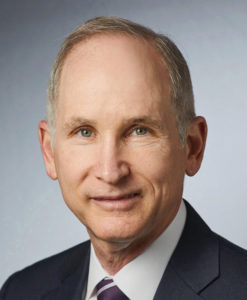
Dr. Fuchs is the Yale Cancer Center Director and Physician-in-Chief at Smilow Cancer Hospital at Yale New Haven. An internationally recognized expert in gastrointestinal cancers and cancer epidemiology, Dr. Fuchs was most recently a Professor of Medicine at Harvard Medical School and Chief of the Gastrointestinal Oncology Division and the Robert T. and Judith B. Hale Chair in Pancreatic Cancer at Dana-Farber Cancer Institute.
Dr. Fuchs received his medical degree from Harvard Medical School in 1986. He completed his medical residency at Brigham and Women’s Hospital, where he also served as chief medical resident, and completed his medical oncology fellowship at Dana-Farber Cancer Institute. In 1994, he received his M.P.H. from Harvard School of Public Health. He has written over 550 scientific publications and, most recently, served as a member of the National Cancer Institute Blue Ribbon Panel Working Group.
March 23rd, 2018:
Catherine Wu, M.D.
Dana-Farber
“Developing Personalized Neoantigen Targeting Cancer Vaccines.”
Sponsor: Dr. Michael Atkins

J. Catherine J. Wu, MD is a Professor of Medicine at the Dana-Farber Cancer Institute, Boston. She received her M.D. from Stanford University School of Medicine and completed her clinical training in Internal Medicine and Hematology-Oncology at the Brigham and Women’s Hospital and Dana-Farber Cancer Institute in Boston, MA. She joined the staff at the Dana-Farber Cancer Institute in 2000. At DFCI, she has initiated an integrated program of research and clinical activities that focuses on dissecting the underlying mechanisms of pathobiology of chronic lymphocytic leukemia (CLL), including the understanding of clonal heterogeneity and kinetics in this disease. She has been Principal Investigator of several center-initiated clinical trials of cancer vaccination. A major priority of her studies is the identification of tumor-specific antigens that would allow effective tumor targeting without collateral toxicity. She has been using exome and transcriptome sequencing technologies to identify unique mutated leukemia antigens that arise from individual-specific genetic alterations within a tumor and that could be potentially targeted immunologically, thus paving the way for developing personalized tumor vaccines across malignancies, which she is testing in melanoma, glioblastoma, renal cell carcinoma and indolent lymphomas.
March 16th, 2018:
David Sabatini, M.D., Ph.D.
Whitehead Institute
“Regulation of Growth by the mTOR Pathway.”
Sponsor: Dr. Michael Atkins
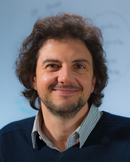
David Sabatini is a Member of the Whitehead Institute for Biomedical Research, and a Professor of Biology at the Massachusetts Institute of Technology. He is also an Investigator of the Howard Hughes Medical Institute, a Senior Associate Member at the Broad Institute and a member of the Koch Institute for Integrative Cancer Research. David and his lab study the basic mechanisms that regulate cell growth. A major focus of the lab is the Target of Rapamycin (TOR) pathway, a major regulator of growth in many eukaryotic species. This has resulted in the identification of many components of the pathway and to an understanding of their cellular and organismal functions, most of which have implications for diseases such as cancer and diabetes. David is also interested in the role of metabolism in cancer and in the mechanisms that control the effects of dietary restriction on tumorigenesis. Additionally, his lab has developed new technologies that facilitate the analysis of gene function in mammalian cells. David received his B.S. from Brown University magna cum laude and his M.D./Ph.D. from Johns Hopkins University in 1997. David was appointed a Whitehead Fellow later that year. He became a Member of the Whitehead Institute and Assistant Professor of Biology at the Massachusetts Institute of Technology in 2002, and received tenure in 2012. David has received a number of awards, some of which are the 2014 NAS Award in Molecular Biology, the 2017 Lurie Prize in Biomedical Sciences, and the 2017 Dickson Prize in Medicine. He was elected to the National Academy of Sciences in 2016.
March 9th, 2018:
Torsten Nielsen, M.D., Ph.D.
University of British Columbia
“Translating Expression Profiles into Biology, Diagnosis, and Treatment for Synovial Sarcoma and Breast Cancer.”
Sponsor: Dr. Aykut Uren

Dr. Torsten Nielsen is a clinician-scientist pathologist based at Vancouver General Hospital and the BC Cancer Agency, working to translate molecular research findings into clinical care for cancer. Born and raised in North Vancouver, he trained at several institutions in North American and Europe before starting his own laboratory and clinical practice at the University of British Columbia (UBC) in 2003. Nielsen was involved in some of the world’s first genome-wide studies of musculoskeletal tumors (sarcomas), work which has led to the development of several new diagnostic tests, clinical trials of targeted therapies, and breakthroughs in understanding the biology of fusion gene sarcomas affecting young adults. He has also worked to translate the molecular profiles of breast cancer into practical clinical tests that may help women avoid ineffective treatments by more carefully targeting their therapies to the molecular subtype of their tumor. Nielsen is a member of clinical trial groups in Canada and the USA, and is also helping train a new generation of clinician-scientists in his capacity as associate director of the UBC MD/PhD Program.
February 23rd, 2018:
Raghu Kalluri, M.D., Ph.D.
MD Anderson
“Strategies to Exploit the Biology of Exosomes for Diagnosis and Treatment of Cancer.”
Sponsor: Dr. Michael Atkins
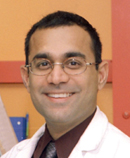
Raghu Kalluri was born in St. Louis, Missouri. He received his B.S. in Chemistry and Genetics, then earned his Ph.D. in Biochemistry and Molecular Biology from the University of Kansas Medical Center, and then received his M.D. degree from Brown University Medical School. Dr. Kalluri was a postdoctoral fellow and a research associate at the University of Pennsylvania Medical School and performed research in areas of immunology and organ fibrosis. In 1997, Dr. Kalluri moved to Harvard Medical School as an Assistant Professor of Medicine and as a faculty based in the Department of Medicine at the Beth Israel Deaconess Medical Center. In 2000, he was named Associate Professor and the Director of the Center for Matrix Biology. In 2006, this program became the Division of Matrix Biology and Dr. Kalluri was appointed the Chief of the Division and promoted to Professor of Medicine at Harvard Medical School. He held appointments in the Department of Biological Chemistry and Molecular Pharmacology at HMS, Harvard MIT Division of Health Sciences and Technology, Harvard Stem Cell Institute and was a research fellow of the HMS Peabody Society. In 2012, Dr. Kalluri moved to The University of Texas MD Anderson Cancer Center as the Chairman and Professor of the Department of Cancer Biology and the Director of the Metastasis Research Center. Dr. Kalluri currently holds the RE Bob Smith Distinguished Chair for Cancer Biology and previously held the Olla S. Stribling Distinguished Chair in Cancer Research and the Rebecca and Joseph Brown Endowed Chair at MD Anderson Cancer Center. In 2015 Dr. Kalluri received the Jacob Henle Medal from the Georg-August University in Germany to honor his contribution to medical research. He is the recipient of several mentorship and teaching awards from the Beth Israel Deaconess Medical Center and Harvard Medical School. He is also the recipient of research excellence awards for his work on basement membranes and extracellular matrix as related to fibrosis and cancer progression. He is the fellow of American Society of Clinical Investigation and the American Association for the Advancement of Science (AAAS). Dr. Kalluri has published over 287 peerreviewed manuscripts. Dr. Kalluri has trained 73 postdoctoral fellows, 11 graduate students, and 56 undergraduate students, and fifty-one of his trainees hold academic positions around the world. Dr. Kalluri teaches 1st year core courses for graduate students and medical students. He serves on science and health advisory panels in the USA and European Union and on the editorial boards of several academic journals representing biology and medicine. His laboratory is broadly interested in the study of cell/tissue microenvironment and its impact on cancer progression and metastasis, and tissue injury and repair.
February 9th, 2018:
Omar Abdel-Wahab, M.D.
Memorial Sloan Kettering
“Understanding and Targeting Spliceosomal Gene Mutations in Cancer.”
Sponsor: Dr. Jeffrey Toretsky
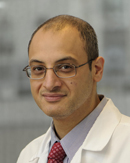
Omar Abdel-Wahab is an Associate Member in the Human Oncology and Pathogenesis Program (HOPP) and an Attending Physician on the Leukemia Service in the Department of Medicine at Memorial Sloan Kettering Cancer Center. Dr. Abdel-Wahab’s research focuses on the role of disordered transcriptional regulators in the pathogenesis of hematopoietic malignancies. This includes mutations in epigenetic modifiers in leukemia pathogenesis including mutations in Polycomb-group proteins (EZH2, ASXL1, ASXL2, and BAP1) as well as mutations in genes encoding spliceosomal proteins that are commonly mutated in leukemia. We have generated substantial reagents to study the role of alterations in splicing in cancer, including several murine models of mutations in RNA splicing factors. We utilize these models to for transcriptomic, epigenomic, functional, and preclinical therapeutic studies. Finally, we are also interested in hematological malignancies driven by MAP kinase pathway alterations.
January 26th, 2018:
J. Robert Hogg, M.D., Ph.D.
NIH
“A Series of Unfortunate Events: The Perils and Promise of Protecting the Transcriptome.”
Sponsor: Dr. Jeffrey Toretsky
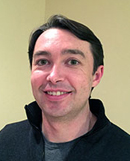
J. Robert Hogg graduated from Haverford College in 2000 with a B.S. in biology and earned a Ph.D. from the Department of Molecular and Cell Biology at the University of California, Berkeley in 2006. His thesis research at UC Berkeley focused on the composition and function of ribonucleoprotein complexes containing noncoding RNAs. He pursued postdoctoral research at Columbia University, where he studied mechanisms of mRNA biogenesis and quality control. He joined the NHLBI in 2012 as an Earl Stadtman tenure-track Investigator..
January 19th, 2018:
Graham Warren, M.D., Ph.D.
Medical University of South Carolina
“Addressing tobacco use in cancer patients: biologic, clinical, behavioral, and administrative considerations.”
Sponsor: Dr. Kathryn Taylor/CPC

Dr. Warren is a Professor of Radiation Oncology and Vice Chairman for Research in the Department of Radiation Oncology at the Medical University of South Carolina. His primary work involves evaluating the biologic effects of tobacco and tobacco related products on therapeutic response in cancer cells, evaluating the clinical effects of tobacco and tobacco cessation on cancer treatment outcomes, developing systems approaches to addressing tobacco use in clinical cancer care, and working to address cost and policy related issues about tobacco in cancer patients. He has helped found or develop several institutional or statewide programs to address tobacco use in cancer patients and has worked as a Chair or Member of several committees within ASCO, IASLC, AACR, SRNT, Alliance, and NCI as related to cancer care and research.
January 12th, 2018:
Ganesh Raj, M.D., Ph.D.
UT southwestern
“Targeting the Interactome of Nuclear Receptors in Breast and Prostate Cancer.”
Sponsor: Dr. Rebecca Riggins
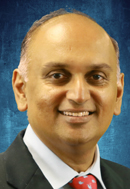
Dr. Raj, M.D., Ph.D. is a Professor of Urology and Pharmacology at UT Southwestern Medical Center. He is a funded cancer investigator with an active clinical practice. He is an experienced and highly regarded prostate cancer surgeon with significant experience in robotic and minimally invasive approaches. His basic science research laboratory efforts are largely focused on translational strategies against the nuclear hormonal receptors. At UT Southwestern, Dr. Raj pioneered and developed a primary human tumor explant culture approach to test the efficacy of new drugs using ex vivo culture of human prostate and breast tumors. His laboratory has recently developed several active peptidomimetic compounds targeting the interactome between nuclear receptors and their coregulators.
December 8th, 2017:
Natasha Caplen, Ph.D.
NCI
“Defusing a Fusion Oncogene.”
Sponsor: Dr. Jeffrey Toretsky

Dr. Caplen earned her Ph.D. from the University of London, UK, for studies on the genetics of type I diabetes and its complications. Her postdoctoral training began at Imperial College, where she focused on the development of gene therapy approaches for cystic fibrosis (CF). There she conducted some of the first pre-clinical and clinical studies of cationic lipid-mediated gene therapy for CF. Her collaborative studies established, in a mouse model of CF and individuals with CF, that delivery of the CFTRcDNA into airway cells alters critical aspects of the electrophysiological defects characteristic of CF cells. While continuing her postdoctoral training at the NIH’s National Human Genome Research Institute (NHGRI), she developed an interest in the then newly identified gene-silencing mechanism, RNA interference (RNAi) and was a co-discoverer of RNAi in mammalian cells. Dr. Caplen then went on to pioneer approaches for exploiting the RNAi mechanism to investigate cancer biology and treatment.
Dr. Caplen applies the perturbations induced by nucleic acid-based technologies to interrogate specific aspects of the genetic, transcriptional, and cell-signaling alterations observed in cancer cells. Her current studies are focused on the functional genetic analysis of cancers driven by fusion oncogenes, particularly the pediatric bone and soft tissue tumor Ewing sarcoma (ES). The initiating genetic event in ES is a chromosomal translocation that fuses the 5’ end of the EWSR1 gene to 3’ end of either the FLI1 (~85% of cases) or ERG (~10% of cases) genes. FLI1 and ERG are members of the ETS family of transcription factors. Dr. Caplen is using functional genetic approaches to discover proteins required for the expression of EWS-ETS fusion oncoproteins. Her seminar will describe recent work showing the splicing of the fusion transcript is a potentially targetable vulnerability in ES and new studies investigating the post-translational modification of EWS-ETS fusion oncoproteins.
November 17th, 2017:
Gloria Petersen, Ph.D.
Mayo Clinic
“Recent Advances in Risk Stratification and Early Detection of Pancreatic Cancer.”
Sponsor: Dr. Christopher Loffredo
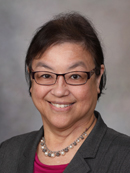
Gloria M. Petersen, Ph.D. is Professor of Epidemiology and holds the Purvis and Roberta Tabor Professorship at Mayo Clinic. She is Deputy Director for Population Sciences in the Mayo Clinic Cancer Center, and is a Founding Fellow of the American College of Medical Genetics and Genomics. Before joining the Department of Health Sciences Research at Mayo Clinic, with joint appointments in Medicine and Medical Genetics, she had faculty appointments at UCLA School of Medicine and Johns Hopkins University School of Public Health. She has had many trainees, and is co-PI of the Mayo Cancer Genetic Epidemiology Training Program. She serves on the Board of Scientific Counselors for the NHGRI and NCI’s Clinical and Translational Research Advisory Committee. She studies the genetic epidemiology of pancreatic cancer, improving risk stratification, and early detection. She is the Contact MPI of the Mayo Clinic Specialized Program of Research Excellence (SPORE) in Pancreatic Cancer, and the recently completed bioethics-focused Genomic Incidental Findings Disclosure (GIFD). She leads a major research effort on early detection of pancreatic cancer at Mayo Clinic, supported by new research grants. She is a key member of the leadership teams of the PanScan, PACGENE, and PanC4 consortia.
November 10th, 2017:
Claudia Palena, Ph.D.
NCI
“Tumor plasticity in the context of immunotherapies against metastatic diseases.”
Sponsors: Drs. Louis Weiner
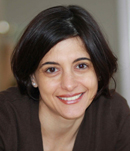
Dr. Claudia Palena is an Investigator and the Head of the Immunoregulation Group in the Laboratory of Tumor Immunology and Biology, National Cancer Institute, NIH, Bethesda. Dr. Palena received her Ph.D. degree in Biochemistry from the National University of Rosario, Rosario, Argentina, in 2000, and subsequently completed a Postdoctoral Fellowship in the Laboratory of Tumor Immunology and Biology, NCI. Dr. Palena has made significant contributions to the field of tumor immunology and cancer immunotherapy, including the identification and characterization of novel tumor-associated antigens, and the use of costimulation for optimal activation of human T-cell responses to various tumor antigens. Her current research is focused on the development of novel immunotherapeutic approaches aimed at targeting critical events in tumor progression with the ultimate goal of designing vaccine platforms and combinatorial therapies for the prevention and/or treatment of metastases in human cancer. In particular, Dr. Palena has characterized the role of the transcription factor Brachyury as a driver of the phenomenon of mesenchymalization and therapeutic resistance in human carcinomas, and is currently investigating the use of cancer vaccines approaches to target Brachyury in a range of human tumors.
November 3rd, 2017:
Gideon Dreyfuss, Ph.D.
University of Pennsylvania
“Telescripting: Overarching Gene Expression Control and Cancer Cell Phenotype.”
Sponsors: Drs. Jeffrey Toretsky, Rebecca Riggins
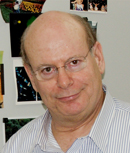
Gideon Dreyfuss received a BSc in chemistry and physics (Hebrew University, 1973) MSc in biochemistry (Tel Aviv University, 1975), and PhD in biological chemistry (Harvard University, 1978). He was a Helen Hay Whitney postdoctoral fellow at MIT. He joined the department of Biochemistry, Molecular Biology and Cell Biology at Northwestern University in 1981, becoming Professor in 1987. He is the Isaac Norris Professor of Biochemistry & Biophysics at the University of Pennsylvania School of Medicine where he has been a Howard Hughes Medical Institute Investigator since 1990. Dreyfuss is a Member of the National Academy of Sciences, the National Academy of Medicine, and the European Academy of Sciences, and a Fellow of the American Academy of Arts and Sciences and of the American Association for the Advancement of Science. Dreyfuss’ research is focused on RNA-binding proteins, RNA-protein complexes (RNPs), and the SMN complex, key gene expression regulators in eukaryotes linked to many diseases.
October 27th, 2017:
Robert B. Dickson Memorial Lecture
Sandra M. Swain, MD, FACP, FASCO
Georgetown University Medical Center
“Treatment of patients with HER2 positive advanced breast cancer.”

Sandra M. Swain, MD, FACP, FASCO is a Professor of Medicine and the Associate Dean for Research Development at the Georgetown University Medical Center (GUMC) in Washington, DC. She is also an Adjunct Professor of Medicine at the Uniformed Services University of the Health Sciences. In her primary role as Associate Dean for Research Development, Swain works closely with industry and community partners to improve patients’ access to cutting-edge treatments and technologies by expanding medical research opportunities both at GUMC and across the MedStar Health system.
Swain graduated with a Bachelor of Arts (B.A.) in Chemistry from the University of North Carolina in 1975 and earned her Doctor of Medicine (M.D.) from the University of Florida in Gainesville in 1980. She completed a residency in Internal Medicine at Vanderbilt University in 1983 followed by a fellowship in Medical Oncology at the National Institutes of Health, National Cancer Institute in 1986. She served at the National Institutes of Health as the Deputy Branch Chief for the Medicine Branch of the Center for Cancer Research at the NCI as a tenured Principal Investigator. Next at the NIH, she became the Head of the Breast Cancer Section, and Chief of the Cancer Therapeutics Branch. From 2007-2016 she served as the Medical Director of the Washington Cancer Institute at MedStar Washington Hospital Center in Washington, DC.
Swain’s research interests include translational research and clinical trials focused on metastatic and inflammatory breast cancer, adjuvant therapy for breast cancer, cardiotoxicity, and health care disparities. Her research has received funding from the National Institutes of Health, Susan G. Komen Foundation, Breast Cancer Research Foundation, and the Avon Foundation. She has published over 270 articles and is internationally recognized as a leader in the field breast cancer research and treatment. Moreover, Swain has received numerous awards and recognitions for her work, including the Susan G. Komen Award of Distinction for Community Service in 2012. She is also a recipient of the National Institutes of Health Merit Award, as well as a two-time recipient of the National Cancer Institute Mentor of Merit Award. In 2012, she received the Claude Jacquillat Award for Clinical Cancer Research and in 2016, the 3rd Aleksandr Savchuk Prize, Aleksandr Savchuk Foundation. The Washington Business Journal honored Swain with its prestigious Women Who Mean Business award in 2016.
Swain was a member of the American Society of Clinical Oncology (ASCO) Board of directors and served as President from 2013-14. She is currently a member and treasurer of the Conquer Cancer Foundation Board of Directors of ASCO. She sits on the Executive Committee of the Lombardi Comprehensive Cancer Center at GUMC. She has actively contributed to the National Surgical Adjuvant Breast and Bowel Project for over 30 years, as Vice-Chair of the Breast Committee and a Principal Investigator of adjuvant trials for breast cancer. She currently is an active member of the NRG Breast Committee. She is a Fellow of the American College of Physicians and ASCO. She is a member of both the American Association of Cancer Research and the American Medical Association.
October 20th, 2017:
Samir Khleif, M.D.
Georgetown University
“Rational Combination of Immunotherapy, It is science, not logic.”
Sponsor: Dr. Michael Atkins
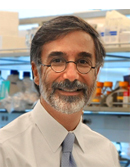
Dr. Samir Khleif is a world renowned oncologist who was until recently Professor of Medicine, Medical College of Georgia where he was also Cancer Center Director of the State of Georgia Cancer Center until 2016. From 2002 to 2006, he served as the Director General and Chief Executive Officer of the King Hussein Cancer Center in Amman, expanding and strengthening the clinical operations and building that institution into a National Comprehensive Cancer Center of Excellence. He has more than 25 years of experience in the medical oncology, tumor immunology and immunotherapy fields. Dr. Khleif served Chief of the Cancer Vaccine Section and Senior Investigator at the National Cancer Institute (NCI). He also served as a Special Assistant to the Commissioner of the Food and Drug Administration (FDA) from 2006 to 2009, where he led the FDA Critical Path for Oncology designed to restructure the oncology drug development process. He is also a recognized basic and translational scientist and a medical oncologist. Dr. Khleif’s research group focuses on the development of novel immune therapies and cancer vaccines and rational designs for combination immune therapy, based on understanding the molecular mechanisms of the interaction between cancer and the immune system (including cancer-induced immune suppression). He recently moved his laboratory to Georgetown University.
October 18th, 2017:
Special Seminar- W
Lars Juhl Jensen, Ph.D.
Novo Nordisk Foundation Center for Protein Research
University of Copenhagen, Denmark
“Cellular network biology: Large-scale integration and visualization”
Sponsors: Drs. Kalliopi Tsafou and Jeffrey Toretsky
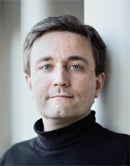
Dr. Jensen has developed a suite of tools which cover protein–protein (http://string-db.org) and protein–chemical (http://stitch-db.org) associations, subcellular localization (http://compartments.jensenlab.org), tissue expression (http://tissues.jensenlab.org), and disease associations (http://diseases.jensenlab.org). These tools all share a highly efficient and versatile, open-source text-mining pipeline.
October 13th, 2016:
Joanna Kitlinska, Ph.D.
Lombardi Comprehensive Cancer Center
Molecular Oncology Program
“Neuropeptide Y (NPY) as a hypoxia-driven metastatic factor – potential links with bone and perineural invasion.”
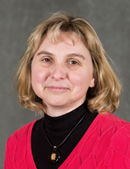
Dr. Kitlinska received a PhD in Medical Biology from the Medical Academy in Lublin Poland in 1991, where she became Assistant Professor in the department of Medical Genetics in 1995. She came to the US in 1997 and to Georgetown in 2000, where she is Associate Professor in the Department of Biochemistry and Molecular & Cell Biology. Her laboratory focuses on role of a sympathetic neurotransmitter, neuropeptide Y (NPY) in tumor biology. NPY is normally released from the activated sympathetic neurons, e.g. during stress. However, the tumors with neuronal features, such as two pediatric malignancies, neuroblastoma and Ewing’s sarcoma, may also synthesize and release this peptide. She has found that NPY is not only a marker of neuronal differentiation of these tumors, but also an active regulator of their growth and vascularization. Currently, she is exploring the role of NPY in metastases of these tumors, as well as assessing NPY and its receptors as targets in their therapy. Since NPY is highly up-regulated during chronic stress, the findings on its important role in regulation of tumor growth and dissemination have triggered interest in the impact of stress on cancer progression and development. At present, she is investigating the effect of prenatal stress on development of neuroblastoma – a childhood tumor arising due to defects in sympathetic neuron differentiation.
October 6th, 2017:
Jacqueline Jeruss, MD, Ph.D.
University of Michigan
“Translating Breast Cancer Research into Clinical Practice.”
Sponsor: Dr. Claudine Isaacs
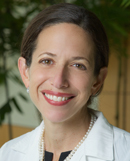
Dr. Jeruss is an Associate Professor of Surgery and the Director of the University of Michigan Breast Care Center and Breast Surgical Fellowship, and she is Co-Director of the Surgical Oncology T32 Training Program. She also holds appointments in the Departments of Pathology and Biomedical Engineering at the University of Michigan. Dr. Jeruss’s clinical practice is focused on the care of patients at high risk for the development of breast cancer and patients with benign and malignant breast disease.
Dr. Jeruss received her undergraduate degree in neuroscience and history from Brandeis University and her medical degree from the University of Vermont. Dr. Jeruss completed her General Surgery residency training at Northwestern University Medical School and holds a PhD from Northwestern, having done her dissertation in the field of breast cancer biology. She completed her fellowship in Breast Surgical Oncology at M.D. Anderson Cancer Center in 2006, and returned to Northwestern as Associate Professor of Surgery in the Division of Breast Surgery before joining the University of Michigan faculty.
Dr. Jeruss is board certified in General Surgery and is a member of several professional societies. She currently has active roles with the American College of Surgeons, American Society of Clinical Oncology, and the National Institute of Health. Through her basic and clinical research program, Dr. Jeruss has been involved in the training of high school students, undergraduates, graduate students at the PhD and postdoctoral levels, medical students, and residents. She has published numerous manuscripts and book chapters, and has also received many awards for teaching and research.
Dr. Jeruss’s clinical and basic research interests are focused on novel therapeutics for aggressive breast cancer subtypes, new approaches to manage cancer metastasis, incorporation of fertility preservation into the care of young patients with cancer, and surgical ethics. Her research efforts, to date, have yielded new insights into the mechanisms associated with breast cancer cell cycle deregulation, implementation of bioengineered scaffolds to forestall breast cancer metastasis, and the basic and clinical translation of fertility preservation for young patients with cancer.
Her research program is funded by the National Institute of Health and several foundations including the Society of Surgical Oncology and A Sister’s Hope. She was the recipient of the Society of Surgical Oncology Clinical Investigator Award in Breast Cancer Research that supported the preclinical work for a study directed toward the treatment of patients with hormone receptor negative breast cancer.
September 29th, 2016:
Giuseppe Giaccone, M.D.
Lombardi Comprehensive Cancer Center
Experimental Therapeutics Program
“Tumors of the Thymus.”

Giuseppe Giaccone, M.D., Ph.D. is an internationally recognized expert in the field of lung cancer and developmental therapeutics. Dr. Giaccone received his M.D. cum laude from the University of Torino Medical School in 1980, followed by training in clinical oncology and internal medicine, which he completed at the University of Torino in 1988. He spent the next two years in the NCI’s Medical Oncology Branch under the direction of Dr. John Minna. Following his training at the NCI, Dr. Giaccone received his Ph.D. from the Vrije University Medical Center in Amsterdam, The Netherlands. He served as a senior medical oncologist at the Medical Center from 1990 to 2000, when he was appointed Professor of Medical Oncology. Dr. Giaccone became Head of the Center’s Department of Medical Oncology in 2003.
He played a major role in the European Organization for Research and Treatment of Cancer (EORTC), serving as a member of the EORTC’s Lung Cancer Cooperative Group since 1982 and as its Chair from 1993 to 2000. During his leadership of this Group, Dr. Giaccone led several major clinical studies focusing on lung cancer and mesothelioma.
Dr. Giaccone was appointed Chief of the Medical Oncology Branch of the Center for Cancer Research of the National Cancer Institute in April 2007. During his presence at NCI Dr. Giaccone helped restructure the intramural medical oncology and clinical trial organization. He developed cutting edge clinical, basic and translational research in the field of thoracic malignancies.
In January 2013 he joined the Lombardi Comprehensive Cancer Center at Georgetown University, Washington DC as the Associate Director for Clinical Research and the Director of Clinical Research for the MedStar Health Cancer Network’s Washington Region. His research activity is mainly focused on the study of the biology of lung cancer and thymic tumors, and treatment of these tumor types. He has recently made some seminal discoveries that have disclosed new ways to treat lung cancer and to diagnose thymic tumors. These discoveries have been published in very high impact scientific journals. Dr. Giaccone has published more than 500 peer-reviewed papers and contributed to more than 30 book chapters.
September 22nd, 2017:
Janice Mehnert, Ph.D.
Rutgers
“Apoptosis in Melanoma: Re-focusing the lens.”
Sponsors: Drs. Michael Atkins, Geoffrey Gibney
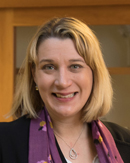
Janice M. Mehnert, M.D. is the Director of the Developmental Therapeutics Unit at Rutgers Cancer Institute of New Jersey and a member of the Melanoma and Soft Tissue Oncology Program. She is also an Associate Professor of Medicine at Rutgers Robert Wood Johnson Medical School. Her clinical research focuses on novel therapies for all types of tumors, especially melanoma and sarcoma, and involves the development of both targeted and immunotherapies. At a national level, she is part of the Melanoma Committee of the Eastern Cooperative Oncology Group-American College of Radiology Imaging Network, where she works with other investigators to develop clinical trials for patients with melanoma, and a member of the American Society Clinical Oncology Education Committee for Melanoma and Skin Cancers. Her broad clinical research experience spans industry-sponsored, investigator-initiated and cooperative group studies. Dr. Mehnert is the author or co-author of multiple peer reviewed articles and book chapters and has been awarded numerous peer reviewed national and private foundation grants to support her work. She has published in such prestigious authorities as Cancer Discovery, Journal of Clinical Oncology and Clinical Cancer Research, serving on the editorial board of the latter.
Dr. Mehnert completed her MD degree in 2001 at Rutgers Robert Wood Johnson Medical School. She completed her residency training in internal medicine at The Mount Sinai Hospital, New York followed by a fellowship in medical oncology and hematology at The Yale Cancer Center. She began her career at Rutgers Cancer Institute of New Jersey/Rutgers Robert Wood Johnson Medical School in 2007.
September 15th, 2017:
Cathy Bradley, Ph.D.
University of Colorado
“Cancer and Employment Opportunities for Work.”
Sponsor: Dr. Ken Tercyak

Cathy Bradley, Ph.D. is the Associate Director of Population Health Sciences at the University of Colorado Anschutz Medical Campus Cancer Center. She holds the Grohne Chair in Cancer Prevention and Control research. Dr. Bradley is an internationally recognized expert in health outcomes research and health economics. Her expertise is in labor market outcomes of cancer survivors, health policy, and health services research. She pioneered methods to estimate disparities in cancer diagnosis, treatment, and outcomes.
Prior to joining CU, she was the founding Chair of the Department of Healthcare Policy and Research, Virginia Commonwealth University School of Medicine. She has been an NIH funded Principal Investigator since 1998 and has received funding from the American Cancer Society, The Commonwealth Fund, and various state and international agencies.
September 8th, 2017:
Benjamin Izar, M.D., Ph.D.
Beth Israel Deaconess Medical Center
“Dissecting Cancer Ecosystems and Drug Resistance Using Single-cell Technologies.”
Sponsor: Dr. Michael Atkins

Dr. Izar is a physician-scientist at Dana-Farber Cancer Institute and the Broad Institute of MIT and Harvard. He has a clinical appointment as Medical Oncologist in the Melanoma Disease Center and member of the Center for Cancer Precision Medicine at DFCI. Dr. Izar’s research focusses on understanding tumor heterogeneity and drug resistance to MAPK-pathway inhibitors (MAPKi) and immune checkpoint inhibitors (ICI) in metastatic melanoma. He pioneered the implementation of single-cell RNA-sequencing and highly-multiplexed imaging in patients with melanoma and other cancers. He is leading efforts integrating genome-scale overexpression/CRISPR-Cas9 knockout perturbations and single-cell profiling in patient-derived models to systematically dissect mechanisms of ICI resistance.
May 12th, 2017:
Kai Wucherpfennig, M.D., Ph.D.
Dana-Farber
“Discovery of novel targets for cancer immunotherapy.”
Sponsor: Dr. Michael Atkins

Kai W. Wucherpfennig, MD, PhD is Chair of the Department of Cancer Immunology and Virology at Dana-Farber Cancer Institute, Professor of Neurology in the Department of Neurology at Brigham and Women’s Hospital, and Professor of Microbiology and Immunobiology at Harvard Medical School. His research focuses on basic T cell biology as well as the role of T cells in tumor immunity and autoimmunity. His lab currently focuses on negative regulatory mechanisms that impair the function of cytotoxic T cells in tumors, and he is applying these insights to the design of adoptive T cell therapies.
Dr. Wucherpfennig has served in a number of leadership roles in cancer immunology DFCI and the Dana-Farber/Harvard Cancer Center (DH/HCC). He has been a co-leader of the Cancer Immunology Program of DF/HCC since 2004, and since October 2015 he serves as chair of the Department of Cancer Immunology and Virology. He also initiated a Center for Cancer Immunotherapy Research which fosters collaborative research between basic scientists and clinical investigators focused on novel approaches to cancer immunotherapy.
He has been elected as a member of the American Society for Clinical Investigation (2006), the Henry Kunkel Society at Rockefeller University (2007) and as Fellow of the American Society for the Advancement of Science (2009). Dr. Wucherpfennig received a MD and PhD degree from the University of Göttingen in Germany, and did his postdoctoral training at the Brigham & Women’s Hospital (Drs. Howard Weiner and David Hafler) and at Harvard College (Dr. Jack Strominger).He has been a faculty member at Dana-Farber since 1995.
May 5th, 2017:
Benjamin Tycko, M.D., Ph.D.
Columbia University
“Gentic-Epigenetic Interactions in Human health and Disease.”
Sponsor: Dr. Louis Weiner and Dr Michael Atkins
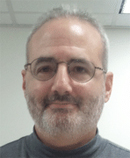
Dr. Tycko received his M.D. and Ph.D. degrees from New York University Medical School in 1984, and then did residency and post-doctoral training in pathology and molecular genetics at Stanford University. Following a brief instructorship at Brigham and Women’s Hospital, in 1991 he joined the Pathology Department, Institute for Cancer Genetics, and Taub Institute, at Columbia University Medical Center, where he is currently a Professor of Pathology & Cell Biology. Dr. Tycko has a long-standing research program on genetics and epigenetics in human development and disease. Recent work by his group has involved genome-wide and locus-specific profiling of CpG methylation, both net and allele-specific, for disease gene discovery and pathway analysis in Down syndrome and Alzheimer’s disease, autoimmune disorders, and cancer susceptibility. In addition, his laboratory is pursuing preclinical studies of epigenetic therapies, using mouse models of pancreatic cancer.
April 28th, 2017:
Goncalo Abecasis, Ph.D.
University of Michigan
“Sequencing & Analysis of 10,000’s of Human Genomes: Lessons, Challenges, and Opportunities.”
Sponsor: Dr. Subha Madhavan

Gonçalo Abecasis, Felix E. Moore Collegiate Professor of Biostatistics and chair of the Department of Biostatistics, U-M School of Public Health, is a leader in genetic analysis of complex human traits. His team has developed statistical methods, computational algorithms and software that facilitate quick, accurate analysis of genetic studies of human disease. His studies enable a better understanding of human genetic variation and its role in disease biology. Abecasis has made important contributions to understanding conditions as diverse as heart disease, diabetes, psoriasis, macular degeneration. Ongoing projects include the sequencing and analysis of >50,000 deep human genomes – an unprecedented amount of data. Abecasis leads the University’s Biostatistics department, which is training a new generation of scientists and making contributions to the statistical and computational machinery for the analysis of diverse types of biomedical data – including not only genomic data but also electronic health records, registry data and health surveys, a variety of imaging data types, and environmental exposures, among others.
April 21st, 2017:
Michael Rosen, Ph.D.
U.T. Southwestern
“Physical Mechanisms of cell Organization on Micron Length Scales.”
Sponsor: Dr. Jeffrey Toretsky
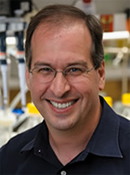
Dr. Rosen is the Chair of the Department of Biophysics at UT Southwestern and an Investigator of the Howard Hughes Medical Institute. Prior to moving to UT Southwestern in 2001 he was a member of the Cellular Biochemistry and Biophysics Program at the Memorial Sloan-Kettering Cancer Center in New York City. He received undergraduate degrees in chemistry and in chemical engineering from the University of Michigan in 1987, and then spent a year in Alan Battersby’s lab in the Department of Chemistry at the University of Cambridge as a Winston Churchill Foundation Scholar. He received his Ph.D. in chemistry from Harvard University in 1993 under the direction of Stuart Schreiber, where he studied the structure and function of the FK506 binding protein, FKBP12. He was a Damon Runyon-Walter Winchell post-doctoral fellow in the laboratories of Tony Pawson and Lewis Kay at the University of Toronto, where he studied regulation of the signaling adaptor protein, Crk, and developed methods of selective methyl group labeling of proteins for NMR spectroscopy. The Rosen lab website can be found at: www.utsouthwestern.edu/labs/rosen/”
April 7th, 2017:
Wei Zheng, M.D., Ph.D.
Vanderbilt
“Use of big data and cohorts to uncover causes of cancers.”
Sponsor: CPC program
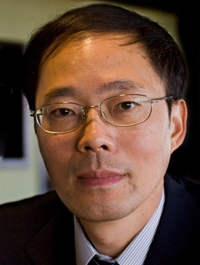
Professor Wei Zheng is the Director of the Vanderbilt Epidemiology Center. His research, funded continually by NIH for the past 20 years, focuses on the evaluation of lifestyle factors and biomarkers for cancer risk and survival. Having authored or co-authored more than 850 scientific publications, he is known for his work on molecular, genetic, and nutritional epidemiology of cancer, particularly breast and colorectal cancers. He is one of the most highly cited researchers and has been named in “The World’s Most Influential Scientific Minds” by Thomson Reuters since 2015. Dr. Zheng has directed more than 20 large-scale, population-based studies, including several international consortia. In 2008 and 2009, he initiated two genetic research consortia for breast and colorectal cancers in Asians – currently including nearly 200,000 cases and controls from more than 40 studies – which have identified over 30 novel susceptibility loci/variants. He directed the first project in the Asia Cohort Consortium to harmonize data from 1.1 million subjects and quantified the association of BMI with total and cause-specific mortality. Dr. Zheng has served as a senior editor and an editorial board member for multiple epidemiology and cancer journals. He is the primary mentor for more than three dozen junior investigators. In 2009, Dr. Zheng received an NCI MERIT award. Before joining the Vanderbilt faculty in 2000 as a full Professor, he worked at the National Cancer Institute, University of Minnesota, and University of South Carolina. Dr. Zheng received his doctoral degree in epidemiology in 1992 from Johns Hopkins University.
March 31st, 2017:
Anthony Capobianco, Ph.D.
University of Miami
“Nic, NACK and Other Odds and Ends; Exploiting Notch Mechanism For Novel Cancer Therapeutic.”
Sponsor: Dr. Akut Uren
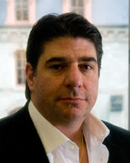
Dr. Tony J. Capobianco is a professor and the Director of Molecular Oncology at Dewitt Daughtry Family Department of Surgery, University of Miami Miller School of Medicine and the Sylvester Comprehensive Cancer Center, Miami, FL. He completed his undergraduate education at Purdue University and obtained his PhD degree from Boston University. Following a postdoctoral fellowship at UCSF in Dr. Michael Bishop’s laboratory, Dr. Capobianco started his academic career at University of Cincinnati. Before joining his current position at University of Miami, he also worked at Wistar Institute, in Philadelphia, PA. His research focuses on understanding the role of Notch signaling in cancer and its potential role as a therapeutic target. Dr. Capobianco is the founder of StemSynergy Therapeutics, which aims to develop drugs targeting Notch, Wnt, and Hg pathways in cancer.
March 24th, 2017:
Udayan Guha, M.D., Ph.D.
NCI
“Integrated proteogenomics analyses to study tumor heterogeneity and how it influences targeted treatment response.”
Sponsor: Dr. Beppe Giaccone
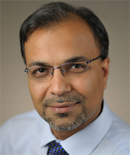
Dr. Udayan Guha is an Investigator in the Thoracic and Gastrointestinal Oncology Branch and head of the Cancer Signaling Networks Section in the Center for Cancer Research at the NCI Intramural Program. Apart from his clinical training in Hematology and Oncology at the Memorial Sloan-Kettering Cancer Center, NY, he received basic science training during his graduate studies and postdoctoral training with Dr. Harold Varmus at MSKCC. Upon initiation of his own group at the NCI Intramural Program, Dr. Guha has established a state-of-the-art proteomics facility for basic, translational and clinical studies. His group specializes in quantitative proteomics, particularly for posttranslational modifications, such as phosphorylation. Apart from his studies in lung cancer and targeted therapy, he has collaborated with several intramural and extramural investigators whom he has assisted with his expertise and infrastructure in mass spectrometry-based proteomics. Dr. Guha is the Principal Investigator of several clinical protocols in Thoracic Oncology at the NIH Clinical Center. One treatment protocol is currently evaluating the role of local ablative therapy (LAT) and osimertinib re-challenge in EGFR mutated lung adenocarcinoma. He is also the PI of a rapid/warm autopsy protocol for Thoracic malignancies to interrogate tumor heterogeneity.
March 17th, 2017:
Fisher Center Visiting Professorship Lecture
Elena Stoffel, M.D.
University of Michigan
“Germline Implications of Tumor Testing – A New Paradigm in Precision Oncology.”
Sponsor: Beth Peshkin
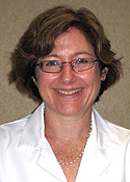
Dr. Stoffel is Assistant Professor of Internal Medicine at the University of Michigan. She earned her MD at Harvard Medical School, her Master’s in Public Health at the Harvard School of Public Health, and completed her training in Internal Medicine and Gastroenterology at Brigham and Women’s Hospital in Boston. After many years in Boston at Brigham and Women’s Hospital and Dana-Farber Cancer Institute, Dr. Stoffel moved to the University of Michigan in 2011 and became Director of the Cancer Genetics Clinic. Dr. Stoffel’s clinical and research interests focus on cancer risk stratification and early detection and prevention of gastrointestinal cancers. She was awarded a NIH/HCI K07 Career Development Award in Cancer Prevention and Control for her work examining the effect of genetic and behavioral factors on risk for colorectal cancer. Dr. Stoffel serves on the ASCO Committee for Cancer Genetics and is a past President of the Collaborative Group of the Americas on Inherited Colorectal Cancer (CGA-ICC). She is involved with international collaborative studies in genetic epidemiology and cancer chemoprevention and is a co-Investigator in the University of Michigan’s MiOncoseq Precision Oncology Initiative, funded through the NCI/NHGRI Clinical Sequencing in Exploratory Research (CSER) consortium.
March 10th, 2017:
Patricia Steeg, M.D.
NCI
“Brain Metastases of Breast Cancer.”
Sponsor: Dr. Aykut Uren

Dr. Steeg is Deputy Chief of the Women’s Malignancies Branch at NCI. She discovered the first metastasis suppressor gene, Nm23. Nm23 and other metastasis suppressors prevent the formation of metastases, with no effect on primary tumor size. Her recent studies focus on breast cancer metastatic dormancy, showing that an antagonist to the Lysophosphatidic acid receptor 1 (LPA1) emulates a metastasis suppressor gene by reducing experimental liver and lung metastases and inducing dormancy in models of triple-negative breast cancer. Dr. Steeg also investigates brain metastases of breast cancer. Her studies identify molecular events controlling brain colonization, investigate the pharmacology of the blood-tumor barrier, and determine the radiation sensitivity of brain lesions.
March 3rd, 2017:
Naiyer Rizvi, M.D.
Columbia University
“Genetics of Response to Immunotherapy in Lung Cancer.”
Sponsor: Dr. Michael Atkins

Dr. Rizvi is the Professor of Medicine in the Department of Medicine and the Director of Thoracic Oncology and Co-Director of Cancer Immunotherapy Program for the Division of Hematology and Oncology at Columbia University Medical Center. He also holds the Price Chair in Clinical Translational Research. He is an internationally recognized leader in the treatment of lung cancer and immunotherapy drug development. Prior to joining Columbia University Medical Center, his clinical research at Memorial Sloan Kettering Cancer played a significant role in the FDA approval path of a new class of immunotherapies, called immune checkpoint inhibitors, for melanoma and lung cancer. His research focus is studying mechanisms of sensitivity and resistance to immunotherapy. Through genetic testing of tumors, he has been able to improve the understanding of why immune checkpoint inhibitors work in certain patients. This work has been partially supported by Stand Up To Cancer — Cancer Research Institute Immunology funding. In his research, he also is studying why certain cancers do not respond to immune checkpoint inhibitors, so we can find better ways to harness the immune system to attack cancer cells. He oversees phase 1 immunotherapy research in solid tumors at Columbia University Medical Center and is conducting key clinical studies of novel immunotherapy drugs and immunotherapy combinations to help more patients in the fight against cancer.
February 24th, 2017:
Steven Sherman, M.D.
MD Anderson
“Therapies for Advanced Thyroid Cancer.”
Sponsor: Dr. Michael Atkins

Dr. Sherman received his undergraduate degree from Harvard College in Cambridge, Massachusetts and his medical degree from Johns Hopkins School of Medicine in Baltimore, Maryland. After completing his internship, residency and fellowship in Endocrinology and Metabolism at Johns Hopkins Hospital, he served as Assistant Professor. He has been at the M.D. Anderson Cancer Center since 1993, and has headed the endocrine department there since 2000. He was appointed as Professor in 2005, and he has served as Associate Vice-Provost for Clinical Research at MD Anderson since 2014. In addition to authoring more than 100 journal articles and book chapters on thyroid disease and his service on the editorial board for two medical journals, he has been a guest editor for the Journal of the National Comprehensive Cancer Network as well as Seminars in Surgical Oncology. He has served as the Chair of the Thyroid Cancer Guidelines Panel for the National Comprehensive Cancer Network, as a member of multiple American Thyroid Association thyroid cancer guidelines task forces, and as Chairman of the International Thyroid Oncology Group for four years. He has also been a speaker nationally and internationally at numerous seminars and symposia, and has been the program co-chair of several international symposia dedicated to thyroid carcinoma.
February 17th, 2017:
Christine Rini, Ph.D.
John Theurer Cancer Center
“Behavioral Intervention for SCT Survivors.”
Sponsor: Dr. Ken Tercyak

Dr. Christine Rini is a social/health psychologist who completed doctoral training at the University of California at Los Angeles and postdoctoral training in cancer prevention and control at the Icahn School of Medicine in New York, NY. Her research investigates psychosocial factors that affect people’s adjustment to health-related challenges, with an emphasis on those involving cancer prevention and control. Her major interests include: (1) Interpersonal influences, such as those involving the effectiveness of enacted social support, peer support, and significant others’ influences on behavior change and health decision making; (2) Individual differences that influence how people respond to health challenges; (3) Patient decision making and post-decision adjustment in the context genomic sequencing; and (4) Development of behavioral and psychosocial interventions, including those using technology (eHealth). Her interventions have included web-based pain coping skills training to help people manage persistent pain and web-based decision support to help people make difficult health decisions. She has also developed an intervention that uses expressive writing as a basis for helping cancer survivors share their treatment experience, advice, and encouragement with peers through a written peer support narrative. This intervention, called Expressive Helping, has been shown to reduce physical and psychological symptoms after hematopoietic stem cell transplant.
February 10th, 2017:
David Spetzler, Ph.D.
Caris Life Sciences
“Molecular Profiling and Precision Oncology”
Sponsor: Dr. John Marshall
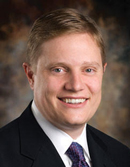
Dr. Spetzler joined Caris Life Sciences® in August of 2009, and currently provides executive guidance for the company’s tumor profiling business, Caris Molecular Intelligence®, and direct leadership of the Research and Development division. His executive and scientific oversight of the R&D team is focused on the development of clinical assays to aid in the creation of precision medicine strategies for individual cancer patients, as well as noninvasive technologies to identify and predict early stage cancer. His work is focused on the development of the ADAPT Biotargeting System™, a groundbreaking and proprietary method of profiling molecular complexes in their native form in a highly multiplexed format. The innovative technology is the result of the convergence of Caris’ deep expertise in Next-Generation Sequencing, exosome biology, bioinformatics and broad-based molecular profiling.
Prior to his position at Caris, Dr. Spetzler was a member of the research faculty at Arizona State University where he developed multiplexed nanotechnologies for single molecule detection of nucleic acid and protein targets. He also developed novel methods of using DNA to create biological computers to solve NP-complete optimization problems, and built a novel optical detection system capable of measuring single molecule protein conformational changes with microsecond time resolution. He has published numerous research articles, and is an author on more than twenty patents.
February 3rd, 2017:
Andre Goy, M.D.
John Theyrer Cancer Center
“Mantle Cell Lymphoma – A Changing Paradigm?”
Sponsor: Dr. Louis Weiner

Andre Goy, M.D., is an internationally renowned clinician and researcher in the field of lymphoma. He is the Chairman and Executive Director of John Theurer Cancer Center at HackensackUMC where he also leads the Lymphoma Program. Dr. Goy is also the Executive Director of Oncology for Hackensack Meridian Health Network.
Dr. Goy trained and worked at the three largest cancer programs in the world, Memorial Sloan Kettering Cancer Center, MD Anderson Cancer Center in Houston, TX, and The University Hospital System as well as Gustave Roussy and Pasteur Institutes in Paris.
Dr. Goy’s research interest includes drug development in lymphoma as well as identification of biomarkers predictive of outcomes in patients with lymphoma. He has focused his interest particularly in mantle cell lymphoma where he was the lead investigator for two of the three new agents: Lenalidomide (Revlimid), and Bortezomib (Velcade) as well as co-investigator for the recent development of Ibrutinib (Imbruvica). After moving to HUMC Dr. Goy initiated the tissue repository for the entire cancer program. He has also been actively involved in cell therapy including bone marrow transplantation and immunotherapy through CAR-T cells and check-point inhibitors across the board in lymphomas and chronic lymphocytic leukemia. He has published extensively and serves as reviewer for many key journals in the field of hematology and oncology research. He serves on the Scientific Advisory Board of the Lymphoma Research Foundation as well as the NCI study group on lymphoma. Dr. Goy is a Professor of Medicine at Georgetown University in D.C.
Dr. Goy is a co-founder of COTA, a cloud based analytics platform which can help stratify patients in oncology and beyond to optimize treatment decisions and outcomes. This is not only key to rationale approach of value based health care but also to implement precision medicine.
Dr. Goy has participated in the World Economic Forum Think Tank on the Future of Health Care since 2014, and currently serves as co-chair of the WEF Council on the Future of Health and Health Care.
January 27th, 2017:
Richard White, M.D., Ph.D.
Memorial Sloan Kettering
“Zebrafish models of melanoma heterogeneity and metastasis”
Sponsor: Dr. Michael Atkins
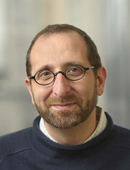
Richard White is a physician scientist at Memorial Sloan Kettering Cancer Center. His laboratory uses the zebrafish for modeling cancer, with a particular emphasis on melanoma biology. Because of its optical transparency and ease of genetic manipulation, the zebrafish is an ideal platform for unbiased discovery of factors that promote metastasis in vivo. His talk will discuss recent findings on the role of novel microenvironmental cell types in promoting melanoma progression.
January 13th, 2017:
Kathryn Schmitz, Ph.D.
Penn State Cancer Institute
“Implementing exercise as standard of care after breast cancer”
Sponsors: Dr. Chris Loffredo & Dr. Marc Schwartz

Kathryn Schmitz, PhD, MPH, FACSM, is a Professor of Public Health Sciences and Associate Director of Population Sciences at the Pennsylvania State University’s College of Medicine. She is an exercise interventionist who has led multiple trials, including a large randomized controlled trial, titled the Physical Activity and Lympehdema Trial (PAL), to assess the safety of upper body exercise among 295 breast cancer survivors with and without lymphedema. She has conducted dissemination research in translating the PAL intervention to become more broadly disseminable. The program, now called Strength After Breast Cancer, has been delivered to over 1,000 breast cancer survivors. An online educational training program which prepares exercise professionals and physical therapists to administer the program has been requested by and provided to over 200 outpatient rehabilitation specialists across the country.
Dr. Schmitz has published over 180 peer reviewed scientific papers (scopus h-index of 44) and has had continuous National Institutes of Health funding for her research since 2001, including three R01s, two R21s and a TREC (Transdisciplinary Research on Energetics and Cancer) Center. She has also received research support from the Robert Wood Johnson Foundation, Susan G. Komen for the Cure, and the Agency for Health Care Research and Quality. She has served on the expert panel for the YMCA/Lance Armstrong Foundation Cancer Survivorship Collaborative, wrote the cancer survivorship section of the recently published U.S. Department of Health and Human Services report of the Physical Activity Guidelines Advisory Committee, and served on the ad hoc committee that developed the American College of Sports Medicine (ACSM) Cancer Exercise Trainer certification. She is the lead author of the ACSM Roundtable on Exercise for Cancer Survivors, which published guidance for exercise testing and prescription for cancer survivors in July 2010.
December 16th, 2016:
Catherine Bollard, M.D.
Children’s National Health System
“Virus-specific T cell Therapies : Broadening Applicability”
Sponsor: Dr Michael Atkins
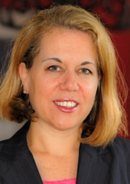
Catherine Bollard received her medical degree at the University of Otago in Dunedin, New Zealand. She is Board certified both in Pediatrics and Hematology. She worked both in New Zealand and London, England before moving to Baylor College of Medicine (BCM) in 2000 where she was Professor of Pediatrics, Medicine and Immunology and the Director of the Texas Children’s Cancer and Hematology Center Pediatric Lymphoma Program. In August 2013, she moved to Children’s National and The George Washington University School of Medicine and Health Sciences in Washington, DC. She is currently Chief, Division of Allergy and Immunology, Professor of Pediatrics and of Microbiology, Immunology and Tropical Medicine and Director of the Program for Cell Enhancement and Technologies for Immunotherapy (CETI). She is a member of the American Society for Clinical Investigation (ASCI) and is President of the International Society for Cellular Therapy (ISCT). She is on the Board of Directors of the Foundation for the Accreditation of Cellular Therapy (FACT) and Chairs the Non Hodgkins Lymphoma committee of the Children’s Oncology Group. She is an Associate Editor for the journals Blood and Cytotherapy and is a member of the NCI Clinical Oncology Study Section and is a member of the Cellular, Tissues and Gene Therapies Advisory Committee for the Food and Drug Administration (FDA). Her bench and translational research focuses on improving outcomes for patients after hematopoietic stem cell transplantation as well as the development of novel cell therapies for viral diseases and hematologic malignancies.
December 9th, 2016:
Alexander Bishop, Ph.D.
University of Texas San Antonio
“Damage induced BRCA1 dynamics in Ewing sarcoma, dysfunction and therapeuticpotential”
Sponsor: Dr Jeffrey Toretsky
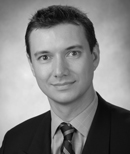
Alex Bishop attained his DPhil in Oxford University working on meiotic recombination in yeast. He went on to the Harvard School of Public Health and then Harvard Medical School for two postdoctoral fellowships. The first position was with Robert Schiestl to look at homologous recombination in vivo using mouse models for p53 and ATM. His second postdoctoral position was with Phil Leder where he conducted RNAi screens in Drosophila cells to identify genes and pathways involved in damage survival. In 2005 he set up his own lab in the Greehey Children’s Cancer Research Institute, a part of the University of Texas Health at San Antonio. His work has continued to examine mechanisms of damage survival and DNA repair using cell based and mouse models, initially applied to breast and ovarian cancer as well as DNA repair syndromes. In the last few years he has applied the knowledge gained from those studies to try to begin to understand Ewing sarcoma, why it is often sensitive to a variety of DNA damaging chemotherapeutics and how it may acquire resistance.
November 18th, 2016:
American Cancer Society Mini-Symposium

Symposium Speakers:
Rebecca Cowens-Alvarado, MPH, Vice President South Atlantic Division Health Systems, American Cancer Society
Sonia de Assis, PhD, Georgetown Lombardi Comprehensive Cancer Center
Patrick Lombardi, PhD, Johns Hopkins University
Filipa Lynce, MD, Georgetown Lombardi Comprehensive Cancer Center
Lisa A. Taneyhill, PhD, University of Maryland, College Park
Chaitra Ujjani, MD, Georgetown Lombardi Comprehensive Cancer Center
Lunch to follow
More information here.
November 11th, 2016:
Anna Riegel, Ph.D.
Lombardi Comprehensive Cancer Center
Breast Cancer Program
“Do Nuclear co-regulators drive malignant progression of breast cancer? ”
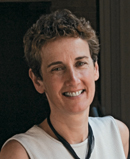
Dr Riegel’s research is focused on the role and regulation of nuclear receptor coactivators in cancer progression. The long-term goal of her research is to understand the signals that enhance tumor cell / stromal interactions with a focus on breast cancer and ultimately to determine ways that this cross talk could be interrupted therapeutically. Her laboratory was the first to report the potentiation by the coactivator oncogene AIB1 of the oncogene HER2 and also the activity of a variant isoform of AIB1 in breast cancer. These studies utilized xeno and allograft models, transgenic and conditional knockout mouse models of breast cancer as well as 3D models of cancer progression. Recent work has examined the role of coactivators in maintenance of cancer stem cells and is focused on determining how stem cell cross talk with components of the tumor stroma influences breast cancer progression.
November 4th, 2016:
John Bushweller, Ph.D.
University of Virginia
“Drugging “Undruggable” Transcription Factor Drivers in Cancer “
Sponsor: Dr Aykut Uren
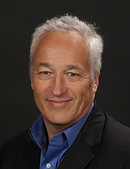
Dr Bushweller received a B.A. in chemistry in 1984 from Dartmouth College where he was one course short of a minor in Classics… He then did a Ph.D. in chemistry with Paul Bartlett at the University of California, Berkeley (1990). After postdoctoral research on NMR based structural biology with Nobel laureate Kurt Wuthrich at ETH-Zurich, he became Assistant Professor in the Department of Chemistry at Dartmouth College. In 1998 he moved to the University of Virginia in the Depts. of Molecular Physiology and Chemistry where he is currently Professor, and Program Leader for Chemical and Structural Biology in the University of Virginia Cancer Center.
October 28th, 2016:
Robert B. Dickson Memorial Lecture
Robert Clarke, Ph.D., D.Sc.
Lombardi Comprehensive Cancer Center
“Resistance to Endocrine Therapy in Breast Cancer: A Systems Biology Approach”

Dr. Robert Clarke is an internationally recognized leader in breast cancer research. Currently, he is Dean for Research, Director of the Biomedical Graduate Research Organization, and co-Program Leader of the Breast Program at Georgetown University Medical Center. He obtained his Ph.D. and D.Sc. from the Queen’s University of Belfast in Northern Ireland and completed his postdoctoral training as a Breast Cancer Study Group Fellow at the Medicine Branch of the National Cancer Institute, NIH. He joined Georgetown University in 1989, where he served as Secretary/Treasurer of the Georgetown University Faculty Senate from 2004-2007. Dr. Clarke was cited among the 100 most frequently published breast cancer researchers of the 20th Century at the 23rd San Antonio Breast Cancer Symposium. He is an elected Fellow of the Royal Society of Chemistry, a Fellow of the Royal Society of Medicine, and a Fellow of the Royal Society of Biology, each in the U.K. He has served as chair of several peer-review study sections for NIH, most recently for BMCT (Basic Mechanisms of Cancer Therapy).
Dr. Clarke has also served as chair for several Department of Defense Breast Cancer Research Program study sections. He is a Senior Editor for the journal Cancer Research, an Associate Editor for the journal Endocrine-Related Cancer, and serves on the editorial boards of over a dozen other international peer review journals. Dr. Clarke completed a two year term as the elected National Cancer Institute-SigmaXi Distinguished Lecturer in 2014.
October 21st, 2016:
Loren Walensky, M.D., Ph.D.
Dana-Farber Cancer Institute
“Noncanonical Strategies for Therapeutic Targeting of Apoptotic Regulators in Cancer”
Sponsor: Dr Jeffery Toretsky
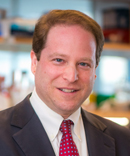
Loren Walensky, MD, PhD, is a Principal Investigator and Attending Physician in the Department of Pediatric Oncology at the Dana-Farber Cancer Institute, Associate Professor of Pediatrics at Harvard Medical School, and Director of the Harvard/MIT MD-PhD Program. He received his B.A. in Chemistry from Princeton University, his MD-PhD degrees from the Johns Hopkins University School of Medicine, was a resident at the Boston Combined Residency Program in Pediatrics, and completed Pediatric Hematology/Oncology fellowship training at the Dana-Farber Cancer Institute/Boston Children’s Hospital. Dr. Walensky’s research focuses on the chemical biology of deregulated cell death and transcriptional pathways, with the goal of developing and translating a new generation of therapies to overcome treatment-resistance in human cancers.
October 7th, 2016:
Albert Fornace, M.D. & Amrita Cheema, Ph.D.
Lombardi Comprehensive Cancer Center
“Metabolomic Applications in Oncology”
Molecular Oncology Program
Dr. Fornace, who holds the Molecular Cancer Research Chair at LCCC, was previously Director of the John B. Little for the Radiation Sciences and Environmental Health at Harvard, and earlier led the Gene Response Section at NCI. He is a highly cited researcher in stress-signaling mechanisms and characterization of pathways involved in tumor suppression, cell cycle control, and radiation injury. His group has pioneered the use of omics approaches including metabolomics for oncogenic and genotoxic stress signaling, and he now directs the Waters Center of Innovation at GUMC. He leads the metabolomics component of the Center For High-Throughput Minimally-Invasive Radiation Biodosimetry, a multi-institutional U19 program. He also leads a NIH-supported project focusing on development of human metabolomic biomarkers for assessment of radiation responses in patients and animal models.
Dr Amrita Cheema serves as a Professor in the Departments of Oncology, and Biochemistry, Molecular and Cellular Biology at Georgetown University. She also co-directs the Waters Center of Innovation for Metabolomics at the Georgetown University Medical Center. Research in her laboratory is focused on molecular phenotyping studies for identification and verification of predictive, diagnostic and prognostic biomarkers of radiation exposure as well as anticipatory biomarkers of response to therapeutic interventions in cancer.
September 30th, 2016:
Christopher Vakoc, M.D., Ph.D.
Cold Spring Harbor
“Chromatin Regulators as Cancer Dependencies”
Sponsor: Dr Jeffrey Toretsky
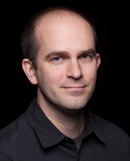
After graduating with a degree in biochemistry from Penn State University, Chris earned Ph.D. (2005) and M.D. (2007) degrees from the University of Pennsylvania. His dissertation research was performed in the laboratory of Gerd Blobel, where he studied basic mechanisms of long-range enhancer function, hematopoietic transcription factors, and histone lysine methylation. In 2008, Chris accepted a position as a Cold Spring Harbor Laboratory Fellow and during this time, he initiated research into how chromatin modifications support the pathogenesis of leukemia. A key focus of this work has been to use functional genomics approaches to reveal unique chromatin regulator dependencies in cancer cells. This has led to the identification of several chromatin regulator pathways that are essential to maintain the leukemia cell state, which includes the discovery of BRD4 as a therapeutic target in acute myeloid leukemia. This work has also revealed novel mechanisms of transcriptional regulation, such as identifying a role for MLL as a mitotic bookmark and a role for TRIM33 in enhancer decommissioning.
September 23rd, 2016:
Darren Mays, Ph.D., MPH
Lombardi Comprehensive Cancer Center
“Public health communication research in the tobacco regulatory science era”
Cancer Prevention & Control Program

Darren Mays, PhD, MPH, is an Assistant Professor of Oncology at Georgetown University Medical Center and Member of the Cancer Prevention and Control Program at the Lombardi Comprehensive Cancer Center. Dr. Mays’s research focuses on behavioral cancer prevention among adolescents and young adults with specific interests in tobacco prevention and control. As a public health scientist, his research seeks to develop and examine the effects of public health communications, behavioral intervention programs, and policy/regulation to prevent and reduce tobacco use in youth and young adult populations. His research has a strong focus on tobacco regulatory science, conducting studies designed to guide federal regulation of tobacco products with specific interests in public education about the risks of tobacco use and tobacco product packaging and warning labels.
September 16th, 2016:
Michael Ittmann, M.D.
Baylor College of Medicine
“A novel oncogenic axis in African-American prostate cancer”
Sponsor: Dr Aykut Uren

Michael Ittmann MD PhD holds the William D. Tigertt Chair of Pathology at the Baylor College of Medicine in Houston, Texas. He is a Board certified pathologist with expertise in genitourinary pathology and is Chief of Pathology and Laboratory Medicine at the Michael E. DeBakey VA Medical Center. He has carried out a funded research program in prostate cancer signal transduction and molecular genetics over the last 23 years. The major focus of his research has been on the role of FGFs and their receptors in prostate cancer; the TMPRSS2/ERG fusion gene, mouse models of prostate cancer and the tumor microenvironment, resulting in 198 scientific publications. He also directs the Human Tissue and Pathology Core of the Dan L. Duncan Cancer Center at Baylor College of Medicine.
September 9th, 2016:
Leisha A. Emens, M.D., Ph.D.
Johns Hoplins
“Harnessing the Immune System to Treat Breast Cancer”
Sponsor: Dr Claudine Isaacs
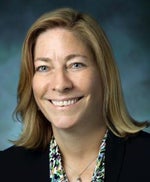
Leisha A. Emens, M.D., Ph.D., is an Associate Professor of Oncology at the Kimmel Cancer Center at Johns Hopkins. She is a medical oncologist who specializes in breast cancer care, and is a member of both the cancer immunology and the breast/ovarian cancer research programs. Her research is focused on developing innovative immune-based therapies that combine cancer vaccines, immune checkpoint inhibitors, and other immune modulators with standard and novel treatments for breast cancer and ovarian cancer. She developed a cytokine-secreting breast cancer vaccine for testing in clinical trials. Using a preclinical murine breast cancer model of antigen-specific tolerance, she develops rational combinatorial immunotherapy strategies to overcome immune tolerance and translates the most promising immunotherapy regimens to the clinic. Dr. Emens is on the editorial boards of Cancer Research, and the Journal for the Immunotherapy of Cancer. She is immediate past chair of the Stakeholder’s Council of the Society for the Immunotherapy of Cancer, and is a former member of the FDA Advisory Committee on Cellular, Tissue, and Gene Therapies. She is an active member of ASCO, AACR, and SITC.
May 13th, 2016:
Meenhard Herlyn, D.M.V., D.Sc.
Wistar Institute
“Understanding the biology of melanoma to develop new strategies for therapy”
Sponsors: Dr Michael Atkins and Dr Anton Wellstein
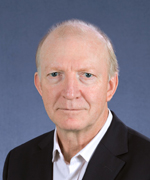
Dr. Meenhard Herlyn is Caspar Wistar Professor for Melanoma Research and Director of the Melanoma Research Center at The Wistar Institute in Philadelphia and Founding President of the Society for Melanoma Research. He has been a cancer researcher since arriving at Wistar in 1976 and has worked in melanoma research since 1977. Current major efforts include the ability to model the microenvironment of normal and diseased human tissue through 3-D artificial skin, providing his laboratory with a unique insight into cancer research. His laboratory also seeks to further define the various signaling pathways that work in cancer cells in order to discover new opportunities to inhibit cancer growth through targeted therapeutics. Since therapy is increasingly guided by the genetic aberrations in tumors, Dr. Herlyn and colleagues are developing combinations of compounds that take into account the genetic signature of tumors, with the specific goal of individualized cancer therapy. Another major effort of his laboratory is the study of therapy resistance and tumor dormancy. Tumor cells can become dormant in primary tumors or at any time after metastatic dissemination and can persist in the dormant state for many years, allowing tumors to resist treatment. Dr. Herlyn’s working hypothesis is that defined tumor subpopulations are central to dormancy and drug resistance due to their slow turnover and their non-responsiveness to growth signals. His efforts seek to define how tumor cells escape dormancy for growth, invasion, and metastasis, and how to best develop strategies for therapy.
May 6th, 2016:
George A Calin, M.D., Ph.D.
MD Anderson
“About Chomsky, patterns, non-coding RNAs and cancer patients”
Sponsors: Dr. Anna Riegel and Dr Anton Wellstein
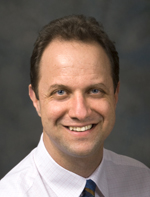
George Adrian Calin received both his M.D. and Ph.D. degrees at Carol Davila University of Medicine in Bucharest, Romania. After working cytogenetics as undergraduate student with Dr. Dragos Stefanescu in Bucharest, he completed a cancer genomics training in Dr. Massimo Negrini’s laboratory at University of Ferrara, Italy. In 2000 he became a postdoctoral fellow at Kimmel Cancer Center in Philadelphia, PA, in Dr. Carlo Croce’s laboratory. He is presently a Professor in Experimental Therapeutics at MDACC and studies the roles of microRNAs and other non-coding RNAs in cancer initiation and progression, as well as the mechanisms of cancer predisposition and explores new RNA therapeutic options for cancer patients.
April 29th, 2016:
Eileen White, Ph.D.
Rutgers Cancer Institute
“Role of autophagy in metabolism and cancer”
Sponsor: Dr Aykut Uren
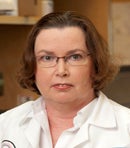
Dr. Eileen White received her Bachelor of Science degree from Rensselaer Polytechnic Institute followed by a Ph.D. in Biology from SUNY Stony Brook. She went on to be a Damon Runyon Postdoctoral fellow in the laboratory of Dr. Bruce Stillman and then to a Staff Investigator position at Cold Spring Harbor Laboratory. There she discovered that one of the oncogenes of the DNA tumor virus adenovirus encoded an inhibitor of programmed cell death or apoptosis (E1B 19K) that this gene was a viral homologue of the human BCL-2 oncogene. She went on to establish that oncogene activation that deregulates cell growth also activates apoptosis, and that coordinate inhibition of apoptosis is an important function that promotes cancer. These findings revealed roles for the p53 tumor suppressor in activating apoptosis and suppressing cancer and for the Bcl-2-related anti-apoptotic proteins blocking apoptosis and promoting cancer.
Dr. White continued her work defining the role and mechanisms of apoptosis regulation in cancer at Rutgers University where she is currently the Deputy Director and Associate Director for Basic Science at the Rutgers Cancer Institute of New Jersey, an NCI-designated Comprehensive Cancer Center. She is also a Distinguished Professor of Molecular Biology and Biochemistry. Dr. White has served on the Board of Scientific Counselors of the National Cancer Institute and other review panels for the National Institutes of Health. She is the recipient of numerous awards including a MERIT award from the National Cancer Institute, the Red Smith award from the Damon Runyon Cancer Research Foundation, a Howard Hughes Medical Institute Investigatorship, an Achievement Award from the International Cell Death Society, a Career Award for the European Cell Death Organization, and is an elected Fellow of the American Society of Microbiology (ASM) and the American Association for the Advancement of Science (AAAS). Dr. White has also served as a member of the Board of Directors of the American Association for Cancer Research (AACR), the Scientific Review Boards for the Starr Cancer Consortium, the Damon Runyon Cancer Research Foundation, and the Cancer Prevention Research Institute of Texas (CPRIT). She is on the External Advisory Boards of the Yale, Case, and MGH Comprehensive Cancer Centers. Editorial Board memberships have included Genes & Development, Cancer Discovery, the Journal of Cell Biology, Oncogene, Cancer Prevention Research, Molecular Cancer Research, Autophagy and Cell Death and Disease. Dr. White is currently serving on the Board of Scientific Advisors for the National Cancer Institute. Current research of the White Laboratory at the Rutgers Cancer Institute of New Jersey is focused on determining the role of the catabolic process of autophagy in protein and organelle homeostasis, and how this recycling of cellular components sustains cancer metabolism and tumorigenesis.
April 22nd, 2016:
Thomas F. DeLaney, M.D.
Massachusetts General
“The Integration of Proton Radiation Therapy in Clinical Practice”
Sponsors: Dr. Michael Atkins
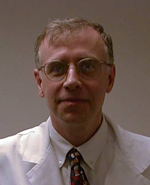
Dr. DeLaney received his undergraduate degree from Harvard College and MD degree from Harvard Medical School in Boston, completed a surgical internship at the Yale-New Haven Hospital, and did his residency training in Radiation Oncology at the Massachusetts General Hospital. He was a senior investigator in the Radiation Oncology Branch at the U.S. National Cancer Institute in Bethesda MD from 1986-1992 and then the Chief of Radiation Oncology at the Boston University Medical Center from 1992-2000. Since 2001, he has been the Chief of the Sarcoma Radiation Oncology Service, the Co-Director of the Connective Tissue Oncology Center, and the Medical Director of the Francis H. Burr Proton Therapy Center at the Massachusetts General Hospital. He is the Andres Soriano Professor of Radiation Oncology at the Harvard Medical School. Dr. DeLaney has been actively involved in clinical trials evaluating treatments for patients with bone and soft tissue tumors. He is a member of the Sarcoma Working Group and head of the Proton Clinical Trials Group of the Radiation Therapy Oncology Group (now NRG Oncology). He is currently the Principal Investigator of a multi-institutional, National Cancer Institute funded U19 Grant, “Improving the Clinical Effectiveness and Understanding of the Biophysical Basis of Proton Beam Therapy”. He has published over 200 peer-reviewed papers, book chapters, and reviews. He is the co-editor along with Hanne Kooy, Ph.D. of the book, “Proton and Charged Particle Radiotherapy” (Lippincott, 2007). Dr. DeLaney is an active member of the Connective Tissue Oncology Society and has served on its board. He is on several editorial boards including the Journal of Clinical Oncology and the Journal of Surgical Oncology, as well as the advisory boards for several research foundations including the Chordoma Foundation.
April 15th, 2016:
The Rennert Memorial Lecture
Heinrich Kovar, PhD
Medical University of Vienna
“The stress of turning malignant”
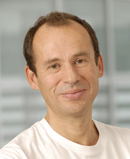
Heinrich Kovar is Professor of Molecular biology at the Medical University of Vienna and Scientific Director of the Children´s Cancer Research Institute, CCRI, hosting 12 research groups with more than 100 scientists. CCRI is closely affiliated to the St. Anna Kinderspital, with which it forms the largest pediatric oncological center in Austria. Heinrich Kovar´s field of expertise is in sarcoma research with a focus on Ewing sarcoma. Back in the nineties, he was the first to describe and characterize the defining immune histochemical marker for this disease, CD99, and was involved in the identification and characterization of the pathognomonic EWS-FLI1 gene fusion. Ever since, his lab has made a number of important contributions to a better understanding of the pathogenic mechanisms driving Ewing sarcoma, resulting in more than 100 publications. In his most recent research, he has turned to the study of tumor cell metabolism and epigenetics, and their potential role in cancer predisposition.
April 8th, 2016:
Lisa Hensk, M.D.
Brigham and Women’s
“Tuberous Sclerosis Complex: Lessons for Sporadic Malignancies with mTOR Hyperactivation”
Sponsors: Dr. Louis Weiner and Dr. Michael Atkins
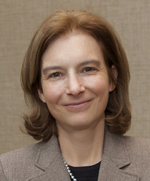
Dr. Elizabeth (Lisa) Petri Henske is the Director of the Center for LAM Research and Clinical Care at the Brigham and Women’s Hospital/Harvard Medical School in Boston. She is also a medical oncologist at the Dana-Farber Cancer Institute. She earned her undergraduate degree summa cum laude from Yale and her MD from Harvard. She completed her Residency and Fellowship at the Massachusetts General Hospital. The Henske Lab discovered that somatic TSC2 mutations cause LAM. Her laboratory focuses on the cellular and metabolic mechanisms of LAM. She is a Principal Investigator of the Sirolimus and Autophagy Inhibition in LAM (SAIL) trial.
April 1st, 2016:
Robert A. Gatenby, M.D..
DH. Lee Moffitt Cancer Center
“Evolutionary Dynamics in Cancer Biology and Treatment”
Sponsor: Dr Louis Weiner

Robert A. Gatenby, MD is the Chair of the Department of Radiology at H. Lee Moffitt Cancer Center and Co-Director of the Cancer Biology and Evolution Program. He joined Moffitt in 2008 from the University of Arizona where he was Professor, Department Radiology and Professor, Department of Applied Mathematics since 2000. He received a B.S.E. in Bioengineering and Mechanical Sciences from Princeton University and an M.D. from the University of Pennsylvania in 1977. He completed his residency in radiology at the University of Pennsylvania where he served as chief resident. Bob remains an active clinical radiologist specializing in body imaging. While working at the Fox Chase Cancer Center after residency, Bob perceived that cancer biology and oncology were awash in data but lacked coherent frameworks of understanding to organize this information and integrate new results. Since 1990, most of Bob’s research has focused on exploring mathematical methods to generate theoretical models for cancer biology and oncology. His current modeling interests include: 1. the tumor microenvironment and its role in tumor biology. 2. evolutionary dynamics in carcinogenesis, tumor progression and therapy. 3. information flow in living systems and its role in maintaining thermodynamic stability.
March 18th, 2016:
Matthias Gromeier, M.D..
Duke University
“Oncolytic Immunotherapy With Recombinant Poliovirus”
Sponsor: Dr Michael Atkins
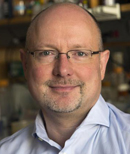
Matthias Gromeier, Assoc. Prof. of Neurosurgery/Molecular Genetics & Microbiology at Duke University, pioneered oncolytic immunotherapy based on a highly attenuated polio:rhinovirus hybrid, PVSRIPO. PVSRIPO pairs selective tumor cytotoxicity with targeting/infection of antigen-presenting cells. The result is a uniquely potent and auspicious combination of pro-inflammatory and immunogenic stimuli that may produce immune effector responses broadly directed against neoplasia. PVSRIPO is currently in clinical trials against recurrent glioblastoma. It has demonstrated very encouraging results, including complete clinical and radiographic remissions that -currently- extend to almost 4 years post-treatment in a universally lethal malignancy with dismal prognosis.
March 11th, 2016:
Tim F. Greten, M.D.
National Cancer Institiute
“Immunology and Immunotherapy of Hepatocellular Carcinoma”
Sponsor: Dr. Giusette Giaccone
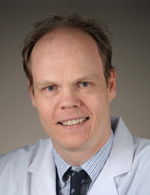
Dr. Greten is an expert in hepatobiliary cancers and liver immunology. His research is focused on better understanding of how non-immune based therapies effect tumor specific immune responses including suppressor mechanisms in patients with hepatobiliary cancers. He is currently studying novel immune based therapies combined with ablative therapies including radiofrequency ablation, transarterial chemoembolization and radiation for the treatment of patients with primary cancers of the liver and pancreas as well as patients with liver metastasis.
March 4th, 2016:
David Solit, M.D.
Memorial Sloan Kettering Cancer Center
“Defining the Actionable Genome”
Sponsor: Dr Michael Atkins
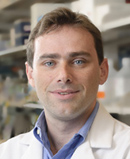
Dr Solit is a Medical Oncologist and a Laboratory Scientist. As a member of the Genitourinary Oncology Service, he specializes in treating cancers of the prostate, bladder, kidneys, testes, and other related cancers. He treats his patients with chemotherapy, targeted therapies, immunotherapy, or combinations of these drugs and works with other cancer experts including surgeons and radiation oncologists to develop an individual treatment plan for each patient. He is very involved in clinical trials, particularly trials of targeted drugs known as kinase inhibitors. These drugs block pathways inside cancer cells that cause the cells to grow or spread. One area of focus in Dr Solit’s research is studying patients who are known as extraordinary responders. These are people with difficult-to-treat cancers who are found to respond exceptionally well to a new drug, even though that drug does not work in most people with the same disease. His laboratory in the Human Oncology and Pathogenesis Program at Memorial Sloan-Kettering completed the first whole-genome analysis of a patient with bladder cancer. This patient had a complete and durable response to a novel targeted drug that was only effective in a small minority of patients. By performing this analysis, his lab were able to determine what was genetically unique about this patients’ tumor. Work is ongoing testing the same drug in other patients whose tumors have a similar genetic profile. Dr Solit is Director of the Center for Molecular Oncology at Memorial Sloan Kettering Cancer Center, where he leads a multidisciplinary team of clinicians, geneticists, bioinformaticians and laboratory scientists. The mission of the Center for Molecular Oncology is to integrate molecular and clinical information to develop therapies that are individualized to each patient’s cancer.
February 26th, 2016:
William F. Regine, M.D.
University of Maryland
“Proton Radiotherapy Clinical Trials:Challenges and Hope for the Future”
Sponsor: Dr Tony Dritschilo
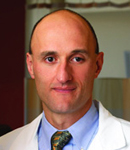
William F. Regine, M.D. is the Isadore and Fannie Schneider Foxman Chairman and Professor of Radiation Oncology at the University of Maryland, ranked top 5 in the country in published NIH rankings for research funding profile. Dr. Regine obtained his training at Thomas Jefferson University Hospital in Philadelphia where he also completed a Radiation Oncology Fellowship in Gastrointestinal and Head and Neck malignancies. Dr. Regine is considered a National and International expert in the area of GI and CNS malignancies, as well as in the use of Stereotactic Radiosurgery (SRS). His first faculty appointment was at St. Jude’s Children’s Cancer Research Hospital where as a Clinical Investigator he helped redefine new standards of care in children with rhabdomyosarcomas and in developing a pediatric SRS program. After 2 years at St. Jude he dedicated his career to clinical research in adult cancer patients. He has since served as Principal Investigator or Co-Principal Investigator in at least 4 national NCI sponsored cooperative group clinical trials (Radiation Therapy Oncology Group [RTOG] protocol 97-04,RTOG Protocol BR-0018, RTOG Protocol BR-0013, RTOG Protocol 08-48). He is a member of the GI and CNS Tumor steering committees for the RTOG and is the Chairman of the GI section of the National Oral Board examination for trainees in Radiation Oncology. Dr. Regine served as the Principal Investigator of RTOG 9704 study evaluating adjuvant therapy in patients with pancreatic cancer published in the Journal of the American Medical Association in 2008 and the Annals of Surgical Oncology 2011(Regine). This study defined a new standard of care for patients with pancreatic cancer. He has also been the Radiation Oncology Principal Investigator/Study Chairman for 2 Institutional clinical trials published in JAMA (Patchell) and the Lancet (Patchell) which defined new standards of care for patients with brain metastases and malignant spinal cord compression. He is co-Editor of “Principles and Practices of Stereotactic Radiosurgery”, the first comprehensive textbook of its kind. More recently, Dr. Regine published the benefits of advanced imaging and treatment delivery (Yovino-2012) techniques in pancreatic cancer which are the basis for the current accruing RTOG Protocol 0848 for which Dr. Regine is a Study Chairman. Dr. Regine is also co-inventor of the first of its kind treatment device completely dedicated to the stereotactic radiation treatment of early stage breast cancer known as the GammaPod.
February 19th, 2016:
David S. Perlin, Ph.D.
Rutgers
“Multidrug resistant fungal infections in cancer and other high risk patients”
Sponsor: Dr Louis Weiner
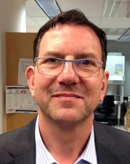
Dr. David S. Perlin, PhD is Executive Director of the New Jersey Medical School’s Public Health Research Institute (PHRI), a 74-year-old specialized center for global infectious diseases. He is also Director of the Rutgers Regional Biocontainment Laboratory (RBL), one of thirteen NIH-designated national centers for pathogen research, and a Professor of Microbiology, Biochemistry and Molecular Genetics. Dr. Perlin is a highly accomplished administrator and medical researcher. He helped establish PHRI as a leading translational research organization specializing in infectious diseases with an annual research budget of $25 million and a robust patent and licensing portfolio. He also established the RBL as a major national center for the study of high priority, high-threat infectious agents. Dr. Perlin’s research emphasizes studies to diagnose and overcome drug resistant fungal and bacterial infections in high-risk patients, and he is widely regarded as a global leader in the area of antifungal drug resistance and fungal molecular diagnostics. He has published more than 216 papers and book chapters and has co-authored two books; and his publications have been cited in more than 9400 publications. His laboratory is supported by multiple grants from the NIH, DoD, Pharma and biopharma sectors. The NIH has continuously funded him for 29 years, and he was most recently awarded a $26.7 million grant from the NIH to lead a Center of Excellence in Translational Research to discover novel antibiotics and against drug resistant bacterial infections. His group has developed specialized diagnostic products for hospitals, clinical labs and companion diagnostics for large Pharma. He serves on editorial boards for prominent scientific journals and is the inaugural Editor-In-Chief for the new open access Journal of Fungi. He also serves on the Board of Directors of the Aaron Diamond AIDS Research Center (ADARC), and Scientific/Medical Advisory Boards for the Clinical Laboratory Standards Institute (CLSI), Pharma and biotech companies, and PinnacleCare. He is a founding member of Leading International Fungal Education (LIFE) and an advisor to the new Global Action Fund for Fungal Infections (GAFFI). He is a principal consultant to the Bill and Melinda Gates Foundation for evaluating vaccine-suitable biosafety level 3 facilities. Dr. Perlin’s recent awards include being named a Fellow of the New York Academy of Sciences in 2005, a distinguished visiting Professor from the University of Manchester, UK in 2009 and the Foundation Lecturer at the 2015 meeting of the British Society for Medical Mycology. Dr. Perlin lectures on the global impact of infectious diseases and regularly comments in mainstream media outlets, such as the New York Times and NPR. He earned an AB degree from Brandeis University in 1976 and a Ph.D. from Cornell University in 1980. He pursued postdoctoral studies at the Yale University School of Medicine and the University of Rochester School of Medicine and Dentistry. Dr. Perlin joined PHRI in 1985; he was named Scientific Director in 1992, President in 2005, and Director of the new NJMS-UMDNJ (Rutgers) PHRI Center in 2006. He was appointed Professor of Microbiology, Biochemisty and Molecular Genetics in 2003 and Executive Director of PHRI and the Rutgers Regional Biocontainment Laboratory in 2010.
February 12th, 2016:
Jordan Winter, M.D.
Thomas Jefferson University
“Pancreatic cancer, are we on the right path?”
Sponsor: Dr. Chris Albanese
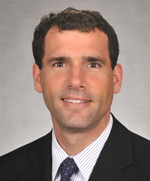
Jordan Winter is a pancreatic surgeon and scientist with clinical, translational, and basic research interests in the management of pancreatic cancer. He graduated as a chemistry major from Princeton University, and medical school from Weill Medical College of Cornell University. He then trained in General Surgery at Johns Hopkins, and perform3ed a Surgical Oncology Fellowship at Memorial Sloan-Kettering Cancer Center. During his residency, he spent an additional three years as a post-doctoral research fellow in pancreatic cancer biology and genetics with Scott Kern at Johns Hopkins University. He was hired as an Assistant Professor of Surgery at Thomas Jefferson University in 2011, and was promoted to the Associate level in 2014. His clinical practice and expertise is principally focused on the management of pancreatic and related cancers. He performs rougly40 pancreatic resections per year, while maintaining a funded research laboratory. Dr. Winter has been funded by the NIH and industry, as well as recipient of a 5 year research mentored scholar grant from the American Cancer Society. He also is the sub-site PI for the current international APACT adjuvant chemotherapy trial, where Thomas Jefferson is the leading accrual site in the United States. He manages the Thomas Jefferson pancreatic cancer clinical database. His basic science research focuses on chemotherapy resistance and understanding how pancreatic cancer cells are able to adapt to their harsh metabolic microenvironment. Dr. Winter is also a multidisciplinary group leader in the Kimmel Cancer Center for gastrointestinal cancer.
February 5th, 2016:
Michael D. Hogarty, M.D.
The University of Pennsylvania
“A novel mitochondrial mechanism of cancer therapy resistance”
Sponsor: Dr. Jeff Toretsky
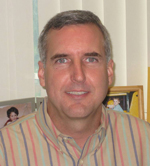
Dr. Hogarty received his BS in Biomedical Engineering from The Johns Hopkins University and his MD from the Columbia University College of Physicians and Surgeons. He did his Residency and Chief Residency in Pediatrics at the Children’s Memorial Hospital at Northwestern University, and his Fellowship in Pediatric Hematology/Oncology at The Children’s Hospital of Philadelphia. He is currently an Associate Professor of Pediatrics at the Perelman School of Medicine at the University of Pennsylvania and member of the Center for Childhood Cancer Research and Abramson Cancer Center at CHOP/Penn. Dr. Hogarty serves as Director of the MD/PhD Recruitment and Training Program, and the Director of Research for the Pediatric Hematology/Oncology Fellowship Program. He currently serves as Chair of the Neuroblastoma Biology Program within the Children’s Oncology Group, and is on the Executive Committee and Advisory Board for the Advances in Neuroblastoma Research Association. Dr. Hogarty’s initial research training was done in the laboratory of Dr. Garrett Brodeur studying MYCN deregulation in neuroblastoma. He currently runs an independent laboratory that (1) studies neuroblastoma therapy response and resistance (with a special interest in mitochondrial activities), and (2) develops experimental therapeutics that antagonize polyamine signaling in MYC-driven cancers.
January 29th, 2016:
Daniel F. Hayes, M.D.
The University of Michigan
“Circulating Tumor Cells and cell free DNA: Liquid Biopsies”
Sponsors: Dr. Claudine Isaacs and Robert Clarke

Dr. Daniel F. Hayes is the Clinical Director of the Breast Oncology Program at the University of Michigan Comprehensive Cancer Center, where he is the Stuart B. Padnos Professor of Breast Cancer Research. Dr. Hayes received bachelor’s, master’s and medical degrees from Indiana University, followed by a residency in internal medicine at the University of Texas Health Science Center/Parkland Memorial Hospital from 1979 to 1982. After a fellowship in medical oncology at Harvard’s Dana Farber Cancer Institute (DFCI) from 1982 to 1985, he remained on faculty and was the Medical Director of the Breast Evaluation Center at DFCI from 19912-1996. He subsequently became the Director of the Breast Cancer Program at Georgetown University’s Lombardi Cancer Center from 1996 to 2001, when he moved to the University of Michigan. Dr. Hayes’ research interests are in the field of experimental therapeutics and cancer biomarkers related to breast cancer. His work has been particularly focused on development and validation of cancer biomarker tests, such as HER-2, CA15-3, circulating tumor cells and pharmacogenomic markers that have prognostic and/or predictive value in the treatment of breast cancer. He has been instrumental in establishing international guidelines for the use of tumor biomarker tests, including criteria for their clinical utility.
Currently, he is chair of the SWOG Breast Cancer Translational Medicine Committee, and he is past chair of the Correlative Sciences Committee of the North American Breast Cancer Group. He was an inaugural member of the American Society of Clinical Oncology (ASCO) Tumor Marker Guidelines Committee, which he co-chaired for the last decade. Dr. Hayes served on the 2011 to 2014 American Society of Clinical Oncology (ASCO) Board of Directors, and in 2015 he was elected to serve a three-year term as President of ASCO. He is a Fellow of ASCO, and he serves on the Susan G. Komen for the Cure Scientific Advisory Council as a Komen Scholar. He is a member of the Association of American Physicians and of the American Clinical and Climatologic Association, and he was the inaugural recipient of the ASCO Gianni Bonadonna Award for research and mentoring in breast cancer.
January 15th, 2016:
Rachael Stolzenberg-Solomon, Ph.D.
NCI
“The Etiology of Pancreatic Cancer: Nutrition and Beyond”
Sponsors: Dr Chris Loffredo and Dr Marc Schwarts
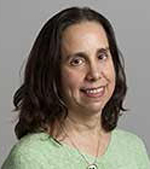
Dr. Stolzenberg-Solomon received a BS in Nutrition and Dietetics at the University of California, Davis in 1984, followed by a dietetic internship and M.Ed. in Health Science (Nutrition) Education at Vanderbilt University Medical Center and George Peabody School of Education, respectively. After this training she worked as a Registered Dietitian for 10 years. In 1994 she completed a M.P.H. with concentrations in Epidemiology and Nutrition at the Johns Hopkins School of Hygiene and Public Health while working full time. Dr. Stolzenberg-Solomon joined the NCI in 1996 as a predoctoral fellow in the Cancer Prevention Studies Branch in the in the former Division of Cancer Prevention and Control and later the Center for Cancer Research and subsequently earned a Ph.D. in Epidemiology from the Johns Hopkins School of Hygiene and Public Health in 1999. As a Cancer Prevention Fellow, she continued post-doctoral research in the Division of Cancer Prevention and DCEG. She became an investigator in the Nutritional Epidemiology Branch in December 2002 and achieved tenure in 2011. Dr. Stolzenberg-Solomon has won several awards in recognition of her contributions to cancer research, including the 2008 NIH Merit Award for sustained and innovative work in elucidating nutritional, genetic, infectious, and other determinants of pancreatic cancer. She is an active mentor, working with graduate students, as well as post-doctoral fellows. She serves on the editorial board of the American Journal of Epidemiology and Cancer Epidemiology, Biomarkers, and Prevention. Dr. Stolzenberg-Solomon also holds a position as an adjunct Associate Professor at the Yale University School of Public Health and is a fellow of the American College of Epidemiology.
December 18th, 2015:
David Salomon, Ph.D.
NCI
“Cripto-1: An Embryonic Stem Cell Gene that is Re-expressed in Multiple Types of Human Cancers and Represents a Novel Diagnostic and Therapeutic Target”
Sponsor: Dr Giuseppe Giaccone

Dr David Salomon received a BA in biology from Clarke University and a Ph.D. from the State University of New York. After postdoctoral work at the Roche Institute of Molecular Biology in New Jersey he moved to the National Institutes of Health in the Laboratory of Developmental Biology and Anomalies in NIDR. He moved to the NCI where he has held various positions and is currently the Chief, Tumor Growth Factor Section, Mouse Cancer Genetics Program, NCI Frederick. He is an expert on mammary gland biology and the role of growth factors in the regulation of normal and tumor associated processes. His recent work has focused in particular on Crypto-1, and Erb family ligand.
December 12th, 2015:
Timothy Rebbeck, Ph.D.
University of Pennsylvania
“BRCA1/2: A paradigm for precision medicine”
Sponsor: CPC Group
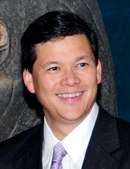
Dr. Rebbeck is Professor of Epidemiology at the Dana Farber Cancer Institute and the TH Chan School of Public Health. He leads molecular epidemiology studies of cancer etiology, outcomes, health disparities, and global health. His work has led to an understanding of the genetic and environmental causes of breast, prostate, skin, endometrial and ovarian cancers. He currently leads international cancer consortia that study risk and outcomes of 1) cancer in BRCA1/BRCA2 mutation carriers, and 2) prostate cancer in men of African descent in North America, the Caribbean, and Africa.
December 4th 2015:
Giulio Draetta, M.D., Ph.D.
The University of Texas MD Anderson Cancer Center.
“Targeting functional dependencies in pancreatic cancer”
Sponsor: Dr. Maria Laura Avantaggiati
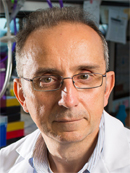
Giulio Draetta is a physician scientist with long standing experience in both academia and industry. Since his discovery of essential regulators of human cell division, he became interested in translating research into cures. He co-founded several biotechnology companies and led global research in large pharma, resulting in the identification of many Oncology clinical candidates and new drugs. His product development team at MD Anderson aims at increasing the probability of success in the clinic by better integration of academic and industrial science. Dr. Draetta spent nearly three decades in Oncology research and drug discovery in both academia and industry. In 2011, he embraced the opportunity to lead to lead the MD Anderson Cancer Center Institute for Applied Cancer Science as well as his own research laboratory. This combination allows an opportunity for truly transformative research, combining best practices from both academia and industry with the goal of rapidly translating basic discoveries into patient therapies. The group is interested in finding new approaches to treat some of the most elusive and devastating tumors, including PDAC and glioblastoma multiforme. Though a biochemist with expertise in the cell cycle and development pathways by training, Dr. Draetta’s group is now focusing on harnessing the power of various -omics analyses, and in particular the development of in vivo functional genomic screens, to inform on new therapeutic targets. The laboratory pursues new approaches to treat some of the most elusive and devastating tumors, including pancreatic ductal adenocarcinoma (PDAC), and glioblastoma multiform. They employ a variety of techniques, including harnessing the power of -omics analyses and conducting large-scale in vivo functional genomic screens to inform on new therapeutic targets. Their goal is to rapidly validate the clinical relevance of identified mechanisms and to translate our findings into clinical opportunities. We are particularly interested in studying the impact of deregulated tumor metabolism and epigenetics in treatment-resistant cancer cells.
November 13th 2015:
Lisa A. Carey, M.D.
The University of North Carolina.
“Trials and Tribulations of Neoadjuvant Systemic Therapy for Breast Cancer.”
Sponsor: Dr. Robert Clarke

Dr Carey, is the Richardson and Marilyn Jacobs Preyer Distinguished Professor in Breast Cancer Research in the UNC Department of Medicine, Division of Hematology-Oncology. Dr. Carey is the Division Chief of Hematology and Oncology, as well as the Physician-in-Chief of the North Carolina Cancer Hospital. She graduated from Wellesley College in 1984 with a B.A. in Biology and Art History. She received her M.D. from the Johns Hopkins University School of Medicine in 1990. She remained at Johns Hopkins for her residency in Internal Medicine followed by a fellowship in Medical Oncology and an advanced degree in Clinical Investigations. Dr. Carey joined the UNC faculty and Lineberger Comprehensive Cancer Center in 1998. At UNC-Lineberger, she is the Medical Director of the Breast Center, co-Leader of the Breast Cancer Research Program, and chairs the Oncology Protocol Review Committee. She became the Cancer Center’s Associate Director for Clinical Research in 2010.
Dr. Carey has a longstanding research interest in the clinical application of laboratory findings in breast cancer, with a particular interest in the clinical implications of different molecular subtypes of breast cancer. She designs and leads clinical trials of novel drugs and approaches, and is a close collaborator with several laboratory investigators and epidemiologists. Dr. Carey has served on the American Society of Clinical Oncology (ASCO) Scientific Program and Education Committees and as faculty for ASCO and AACR-CTRC San Antonio annual meetings for many years. She was named to the Cancer and Leukemia Group B (CALGB) Breast Core Committee in 2003. She was awarded a Doris Duke Clinician Scientist Award in 1999, a Career Development Award from the NCI in 2000, and was inducted into the Johns Hopkins Society of Scholars in 2008. In 2011 Dr. Carey was awarded the NCI Director’s Service Award.
October 30th, 2015:
Amato J. Giaccia, Ph.D.
Stanford University School of Medicine
“Eradicating Metastasis with Targeted Therapy and Immune Therapy”
Sponsor: Dr. Maria Laura Avantaggiati
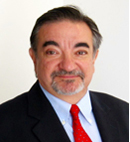
Dr. Giaccia is a Professor of Radiation Oncology, Associate Chair for Research & Director of the Division of Radiation & Cancer Biology in the Department of Radiation Oncology. He is also the Director of Basic Science at the Stanford Cancer Institute and heads the Radiation Biology Program in Stanford’s Cancer Center, and is Director of the Cancer Biology Interdisciplinary Graduate Program. He was awarded an American Cancer Society Junior Faculty Research Award and the Michael Fry Award from the Radiation Research Society for his outstanding contributions on understanding the molecular mechanisms of resistance promoted by the tumor microenvironment. Additionally, he was the recipient of the 2013 ASTRO Gold Medal. He co-authored the sixth & seventh editions of the textbook, “Radiation Biology for the Radiologist,” with Professor Eric Hall from Columbia. In addition, he is currently the “Jack, Lulu and Sam Willson Professor in Cancer Biology” in the Stanford University School of Medicine.
October 23rd, 2015:
Roger Abounader, M.D., Ph.D.
University of Virginia
“Identification and exploitation of master regulatory microRNAs in Glioblastoma”
Sponsor: Dr. Jeffrey Toretsky
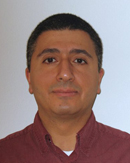
Dr Abounader received a B.S. in Biology from the American University of Beirut, Lebanon before moving to Germany where he received an M.D. and Ph.D. in Physiology from the University of Heidelberg. After postdoctoral studies in Neuroscience at McGill in Canada and Neuro-Oncology at Johns Hopkins, he joined the faculty at Hopkins in the Department of Neurology and became a member of the Cancer Center. In 2006 he moved to the University of Virginia, Charlottesville, where he remains as a Professor of Microbiology, Immunology and Cancer Biology, and is a member of the Cancer Center. Dr Abounader is a recognized expert in the molecular basis of the development of brain tumors and is conducting ongoing studies on the role of microRNA in brain tumor malignancies, the interactions between PTEN and p53 and their implications for prognosis and anti-tumor therapy, and the role of the VEGF-MET axis and other receptor tyrosine kinases in brain tumors.
October 9th, 2015:
The 8th annual Robert B. Dickson Memorial Lecture Nancy E. Davidson, M.D.
Director, University of Pittsburgh Cancer Institute and UPMC Cancer Centers
“Tackling Endocrine Resistance in Breast Cancer”

Nancy E. Davidson, M.D. is a world-renowned breast cancer researcher who serves as Hillman Professor of Medicine at the University of Pittsburgh, Director of the University of Pittsburgh Cancer Institute and UPMC Cancer Center. She is a distinguished Professor of Medicine and Associate Vice Chancellor for Cancer Research. She holds secondary appointments as Distinguished Professor of Pharmacology and Chemical Biology and Professor in the Clinical and Translational Science Institute. Dr. Davidson has published key findings on the role of hormones, particularly estrogen, on gene expression and cell growth in breast cancer. She has guided several important national clinical trials of potential new therapies, including chemo-endocrine therapy for premenopausal breast cancer. Her research has been supported by a portfolio of funding from the National Institutes of Health (NIH), Department of Defense, the Breast Cancer Research Foundation, and Susan Komen for the Cure. Dr. Davidson has coauthored over 300 articles in the top journals of her field, including the New England Journal of Medicine, Journal of the National Cancer Institute, and the Journal of Clinical Oncology. She has won several awards, including being elected to membership in the Association of American Physicians and the Institute of Medicine. She received the honor of being named a Thomson Reuters Highly Cited Researcher in 2014. A member of the scientific advisory board for many foundations and cancer centers, Davidson has served as an elected member of the boards of directors of the American Association of Cancer Research and the American Society of Clinical Oncology, the two largest organizations for cancer researchers and oncology professionals in the world. She was president of the American Society of Clinical Oncology from 2007-2008. She has recently been appointed as President Elect for the American Association of Cancer Research and will serve as President in April, 2016.
October 2nd, 2015:
Maureen E. Murphy, Ph.D.
The Wistar Institute
“An African specific polymorphism in p53 tumor suppressor impairs its tumor suppressor function”
Sponsors: Dr. Jeffrey Toretsky and Dr. Maria Laura Avantaggiati
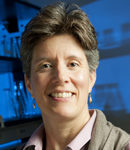
Maureen Murphy received her Ph.D. from the University of Pennsylvania School of Medicine in 1993, where she did her thesis work with Dr. Donna L. George, the discoverer of the MDM2 oncogene. Maureen then performed post-doctoral work at Princeton University working with Dr. Arnold J. Levine, the discoverer of the p53 tumor suppressor protein. At Princeton Maureen studied how p53 made the decision between inducing growth arrest versus programmed cell death, with funding by the Jane Coffin Childs Memorial Fund for Cancer Research. In 1998 Maureen obtained an Assistant Professor position at the Fox Chase Cancer Center, where she obtained tenure in 2003, and became a full Professor in 2011. In 2011 Maureen moved her laboratory to her current position at The Wistar Institute, where she is currently Professor and Program Leader of the Molecular and Cellular Oncogenesis program. At Wistar, Maureen gets to engage in her three passions: discovering ways to reduce the burden of human cancer, training the next generation of cancer researchers, and helping mentor the junior faculty at Wistar. In 2014, based upon her work on HSP70 and HSP70 inhibition for cancer therapy, Maureen was awarded a GlaxoSmithKline “Fast Track” award, which is an academic-industry collaboration designed to bring HSP70 inhibitors to the clinic. Her current work also focuses on coding region polymorphisms in the p53 tumor suppressor protein, with emphasis on how these variants contribute to cancer risk and the efficacy of cancer therapy.
September 25th 2015:
Benjamin G. Neel, M.D., Ph.D.
NYU Langone Medical Center
“Emergent Vulnerabilities in Breast Cancer”
Sponsor: Dr. Michael B. Atkins
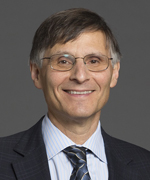
Dr Neel earned his Ph.D. in Viral Oncology from the Rockefeller University in 1982, under Bill, where his thesis work established that slowly transforming RNA tumor viruses cause cancer by insertional mutagenesis, leading to activation of the c-Myc gene. He received his M.D. degree from Cornell University Medical School in 1983, completed medical internship and residency training at the former Beth Israel Hospital (now Beth Israel Deaconess Medical Center) from 1983-85, and then pursued post-doctoral studies with Raymond L. Erikson at Harvard University from 1985-1988. In 1988, he was appointed Assistant Professor of Medicine at Harvard Medical School, and began his own research laboratory at Beth Israel Hospital. He rose through the ranks at HMS, becoming a Professor of Medicine in 1999, and also serving as Director of the Cancer Biology Program, from1994, and Deputy Director for Basic Research, Hematology-Oncology at Beth Israel-Deaconess Medical Center, beginning in 2003. In 2006, he was appointed to the William B. Castle Chair of Medicine at HMS. In 2007, he was appointed Director of Research at Princess Margaret Cancer Center in Toronto, Canada, and Senior Scientist and Canada Research Chair, Tier 1 in the Departments of Medical Biophysics and Biochemistry at the University of Toronto. On January 1, 2015, he became Director of the Isaac and Laurie Perlmutter Cancer Center and Professor of Medicine at NYU-Langone Medical Center. Neel’s research focuses on cellular signaling, with a particular interest in the biology and regulation of protein-tyrosine kinases and -phosphatases, the role of RAS/ERK pathway mutations in developmental disease and malignancy, and the biology of breast and ovarian cancer. He has authored >200 primary papers and >25 reviews, several in leading journals including Cell, Molecular Cell, Developmental Cell, Science, Nature, Nature Medicine and Nature Genetics. Neel is a member of the Board of Directors of the AACR and served as Program Chair for the 2012 Annual Meeting. He received a Junior Faculty Research Award from the ACS, was the inaugural recipient of the Gertrude Elion Award of the AACR, received the Premier of Ontario’s Summit Award (Ontario’s highest scientific honor) in 2009, and an NIH MERIT award. He has been a permanent member of two NIH study sections, and served on review panels for multiple foundations. He also was an Editor of MCB (2000-2010), and serves on the Editorial Boards of Cancer Cell, Molecular Cell, Journal of Experimental Medicine, Journal of Clinical Investigation and Cancer Discovery. He is a member of the SAB of Kolltan Pharmaceuticals, was a long time SAB member of Ceptyr, Inc., and is a co-founder and member of the SAB of Northern Biologics, which focuses on therapeutic antibodies for cancer and fibrosis.
September 18th 2015:
Vilhelm A. Bohr, M.D., Ph.D.
National Institutes on Aging, NIH, USA
“DNA repair defects and mitochondrial dysfunction in cancer and aging”
Sponsor: Dr. Aykut Üren

Dr. Bohr received his M.D. in 1978, Ph.D. in 1987, and D.Sc. in 1987 from the University of Copenhagen, Denmark. After training in neurology and infectious diseases at the University Hospital in Copenhagen, Dr. Bohr did a postdoctoral fellowship with Dr. Hans Klenow at the University of Copenhagen, Denmark. He then worked with Dr. Philip Hanawalt at Stanford University as a research scholar from 1982-1986. In 1986 he was appointed to the National Cancer Institute (NCI) as an investigator, becoming a tenured Senior Investigator in 1988. Dr. Bohr developed a research section in DNA repair at the National Cancer Institute, NIH. In 1992 he moved to the National to become Chief of the Laboratory of Molecular Genetics. His main contributions have been in the area of DNA repair. He has worked on many aspects of DNA damage and its processing in mammalian cells. He developed a widely used method for the analysis of DNA repair in individual genes and found that active genes are preferentially repaired. This observation was a major advance in the clarification of the tight interaction between DNA repair and transcription, a process termed transcription-coupled repair. In recent years numerous papers from his laboratory have focused on mechanisms of DNA damage processing, particularly on base excision repair. A main interest now is to elucidate how these processes change in relation to aging and to develop interventions.
September 11th, 2015:
Ronald B. Gartenhaus, M.D.
The University of Maryland
“MNKs Modulate Oncogenic Translation in Diffuse Large B-Cell Lymphoma”
Sponsor: Dr. Louis Weiner
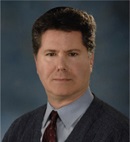
Ronald B. Gartenhaus, M.D. is a Tenured Professor of Medicine and Co-Leader, Program in Molecular & Structural Biology at the NCI-designated University of Maryland Marlene and Stewart Greenebaum Cancer Center. He also heads the Hematologic Malignancies Clinic at the University affiliated Baltimore VA Hospital. Dr. Gartenhaus has a longstanding interest in lymphoma biology dating back to the early 1990’s when he trained as a post-doc in the laboratory of Dr. Robert Gallo at the National Cancer Institute after completing a medical oncology fellowship at the MD Anderson Cancer Center. His laboratory was the first to identify and describe the MCT-1 oncogene. His current research focus is studying post-transcriptional/translational gene deregulation as well as oncogenic signaling cascades associated with lymphoma and how they can be exploited for targeted therapy. His research has been continually funded over the past 15 years through multiple NIH grants, VA Merit Review awards, as well as other national research foundations. Dr. Gartenhaus is a standing member of the NIH MONC study section and has participated as an ad hoc member of multiple NIH and VA reviews, including several NIH PO1 program project review panels. He has served on multiple editorial boards and is currently an Associate Editor for PLOS Genetic.
September 4th 2015:
Thomas F. Gajewski, M.D., Ph.D.
University of Chicago
“Molecular mechanisms of the T cell-inflamed tumor microenvironment: Implications for cancer immunotherapy”
Sponsor: Dr. Michael B. Atkins

Dr Gajewski received a B.A. in biology from the University of Chicago in 1984, where he also received his Ph.D. in 1989 and M.D. in 1991. He went on to do a Fellowship in Hematology/Oncology at Chicago and did post-doctoral work at the Ludwig Institute for Cancer Research in Brussels. He joined the faculty at the University of Chicago in 1997 where he is now Professor in the Department of Pathology and Medicine (Hematology/Oncology). He is an internationally recognized expert in tumor immunology and therapy, has published extensively in this area, and has received numerous awards for his clinical, research, and educational activities.
May 29th 2015:
Yves Pommier, M.D., Ph.D.
Developmental Therapeutics Branch, NCI, NIH
“Alterations of DNA Repair Genes and Their Predictive Value for Anticancer Drug Activity”
Sponsor: Dr. Giuseppe Giaccone
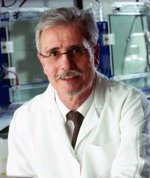
Dr. Pommier received his M.D. and Ph.D. degrees from the University of Paris, France, and has been at the NIH since 1981. Dr. Pommier is the chief of the Developmental Therapeutics Branch (formerly the Laboratory of Molecular Pharmacology), the co-chair of the Discovery Committee of the NCI Experimental Therapeutics Program and member of the Molecular Target steering committee at the Center for Cancer Research, NCI. Dr. Pommier is also honorary professor of the Shanghai Institute Materia Medica, Chinese Academy of Sciences and adjunct member of the NCI Developmental Therapeutics Program (NCI-DTP). Dr. Pommier has received an NIH Merit Award for his role in elucidating the function of topoisomerases as targets for anticancer drugs and Federal Technology Transfer awards for studies on HIV-1 integrase and DNA topoisomerase inhibitors. Dr. Pommier serves as senior editor for the therapeutics, targets, and chemical biology sections of Cancer Research. He also served as chair for the 2004-2005 Gordon conferences on the molecular therapeutics of cancer and organized the international conferences on retroviral integrase: molecular biology and pharmacology in 1995, 2001, 2008, 2011 and 2014. Dr. Pommier received the Paul Ehrlich Lecture Award from the Societe de Chimie Therapeutique in 2005. Dr. Pommier has authored more than 550 publications and holds over 20 patents for inhibitors of DNA topoisomerases, tyrosyl-DNA phosphodiesterase, checkpoint inhibitors and HIV-1 integrase inhibitors.
